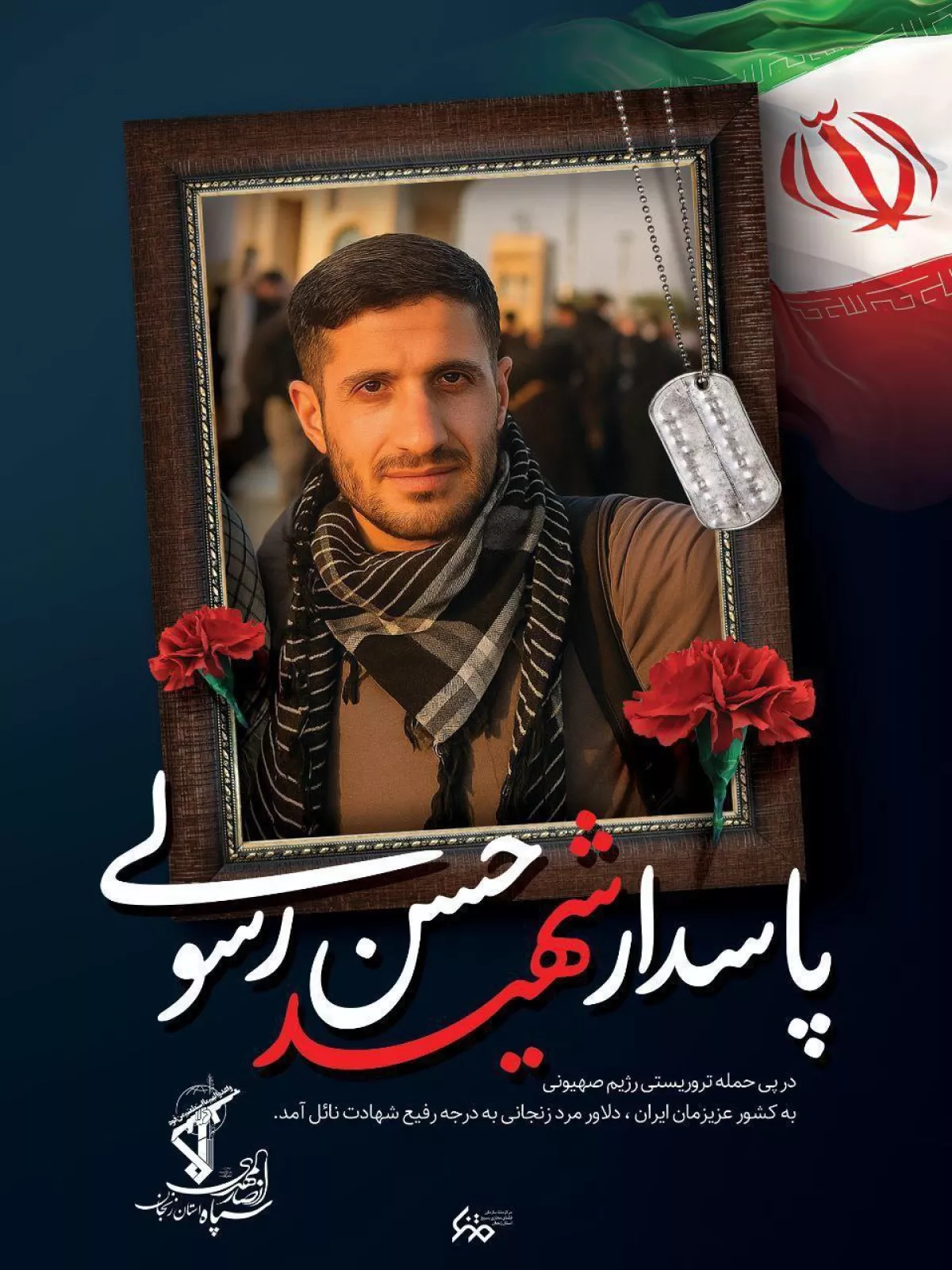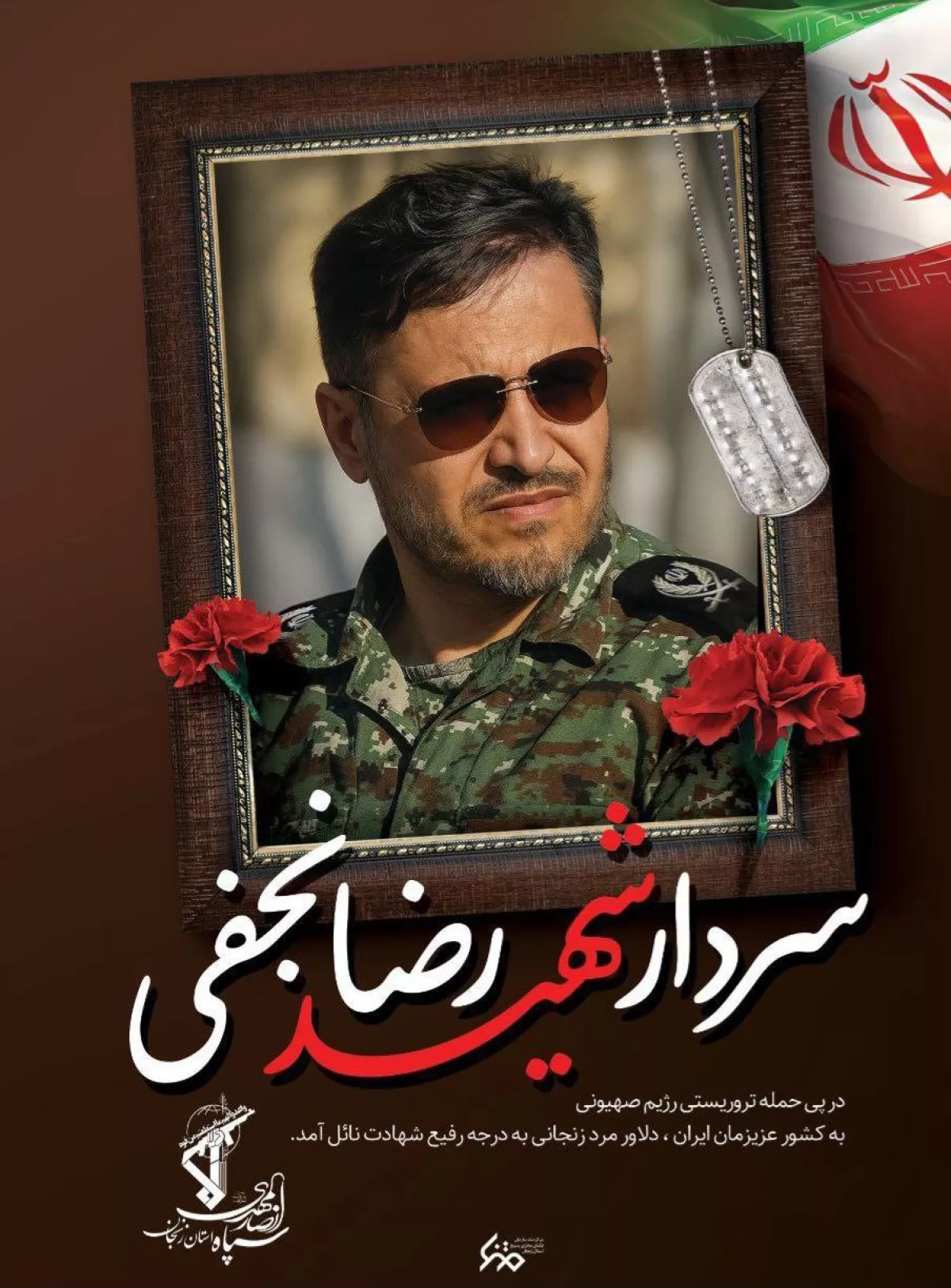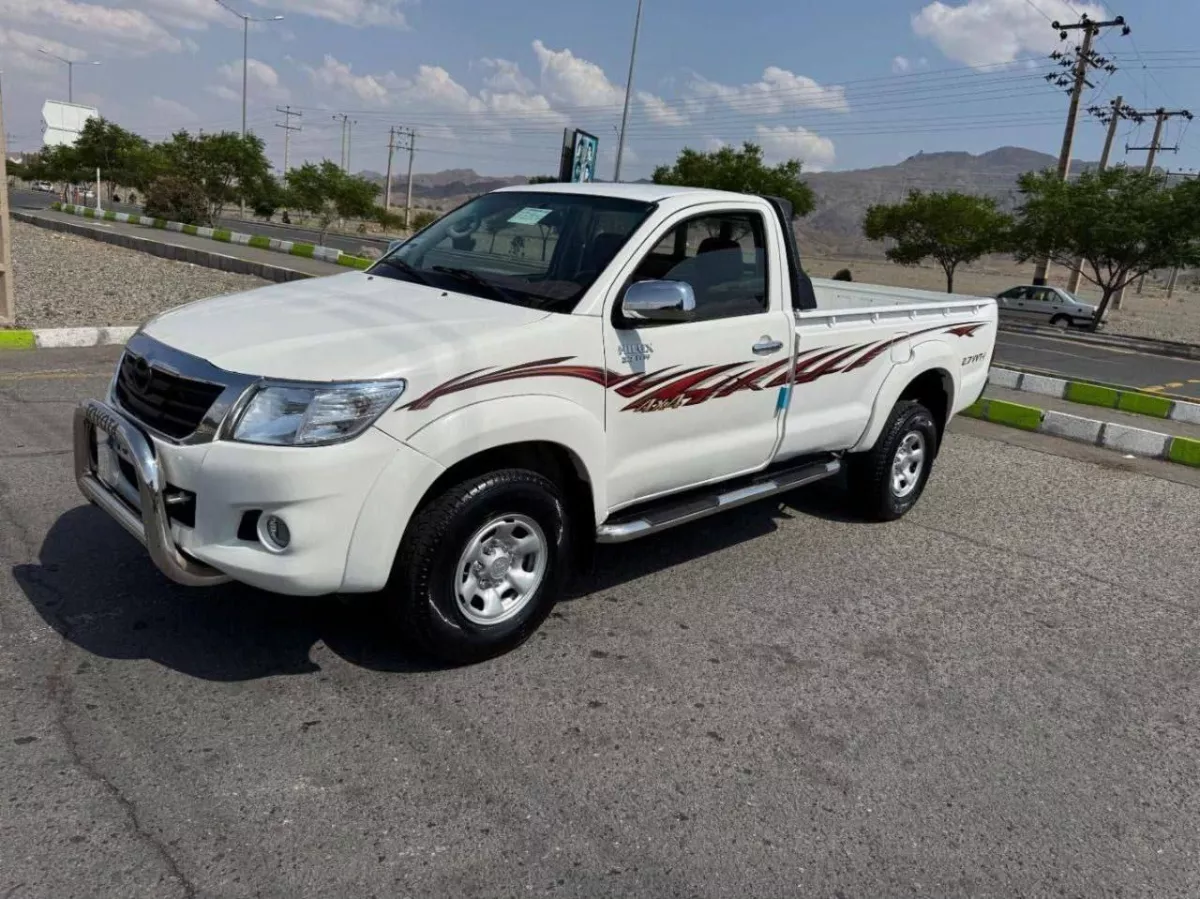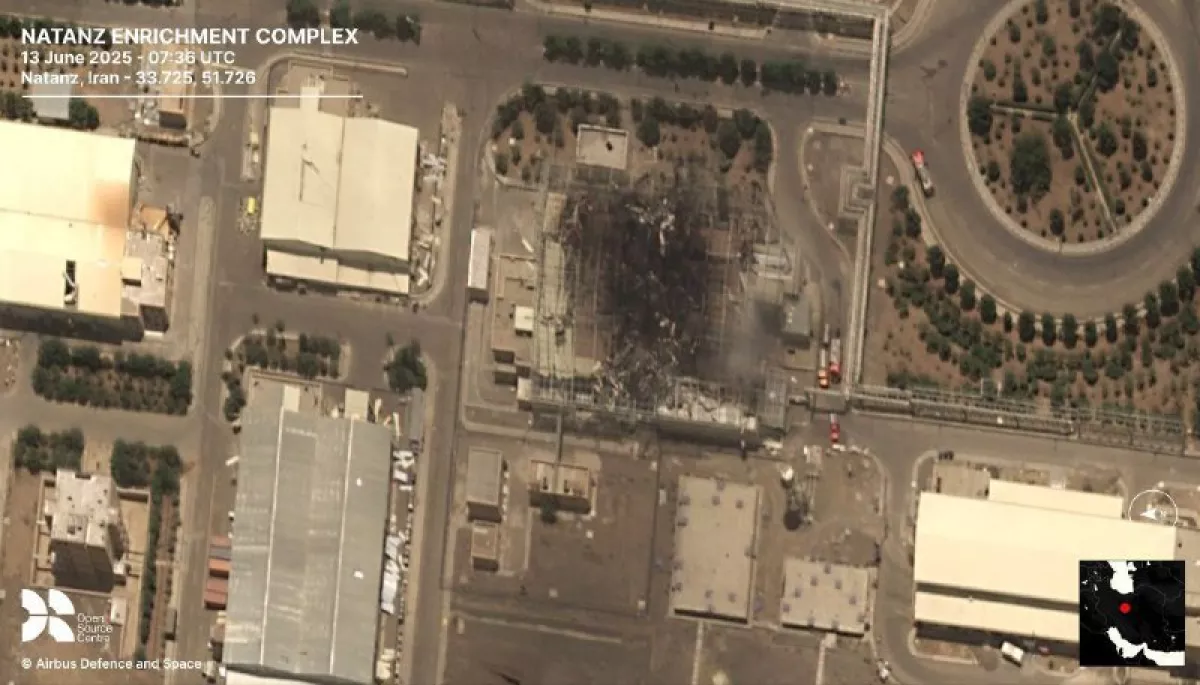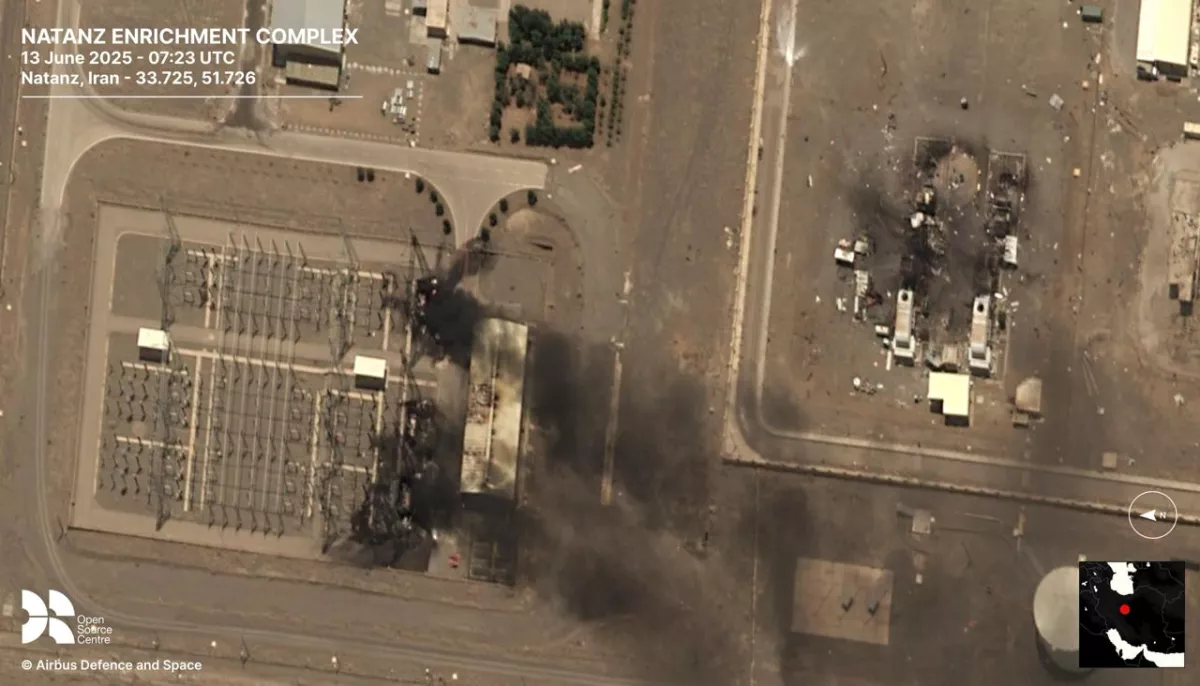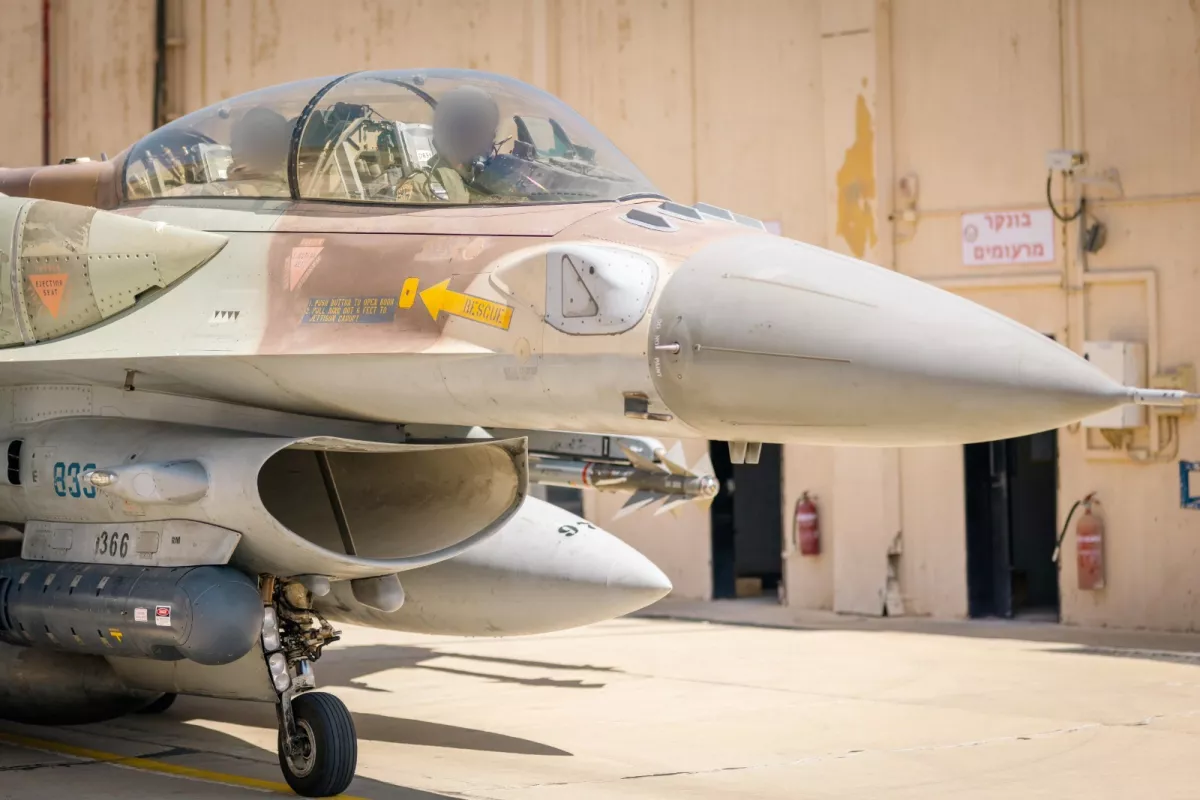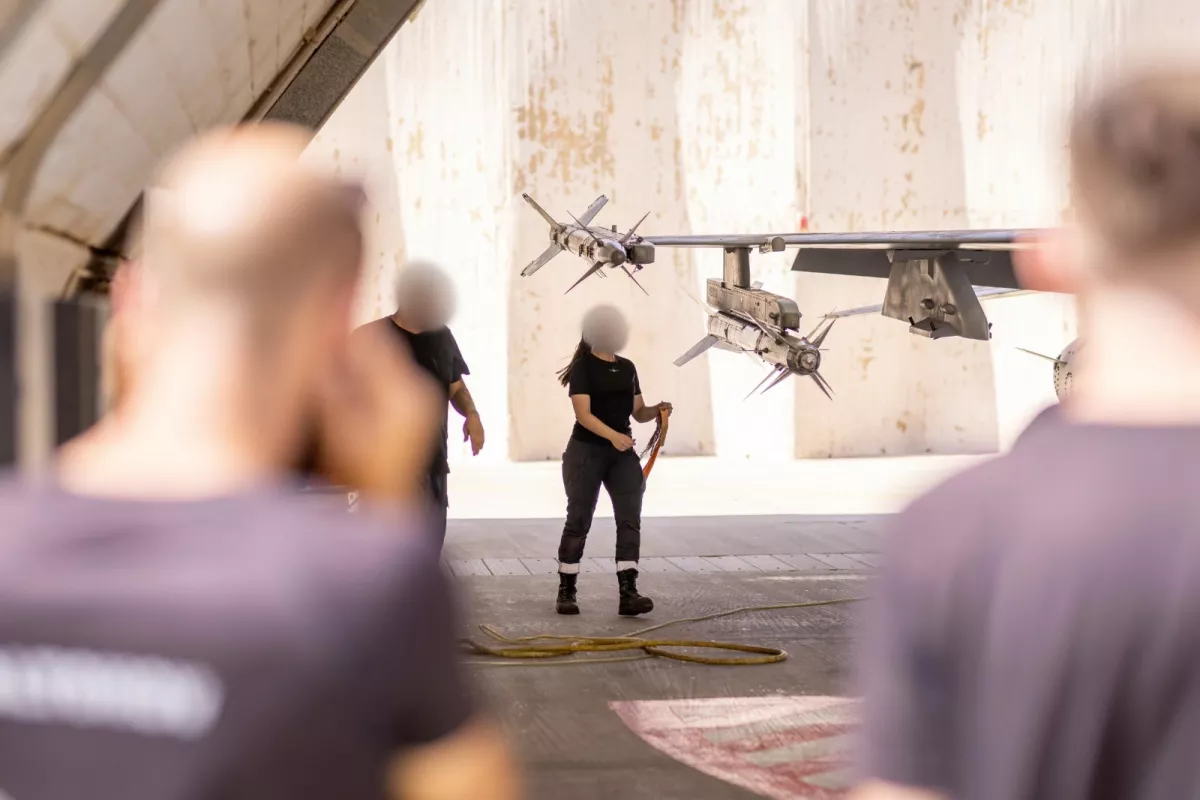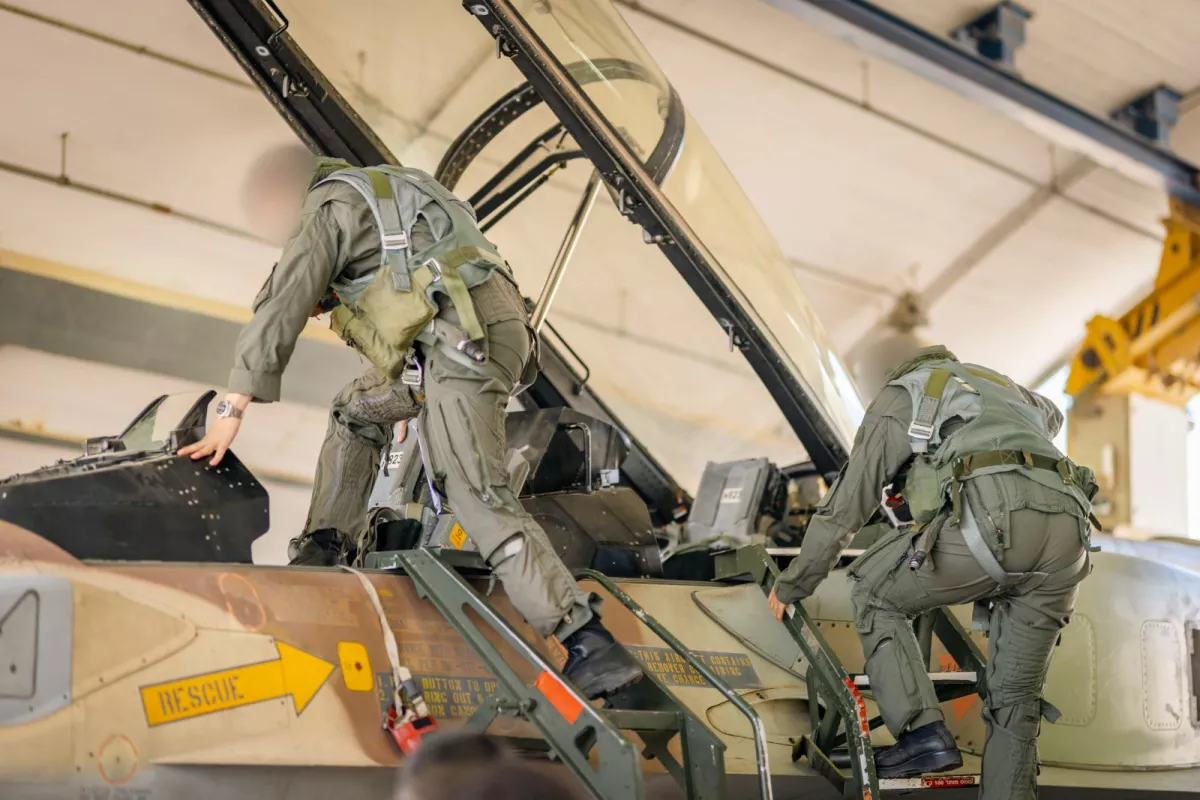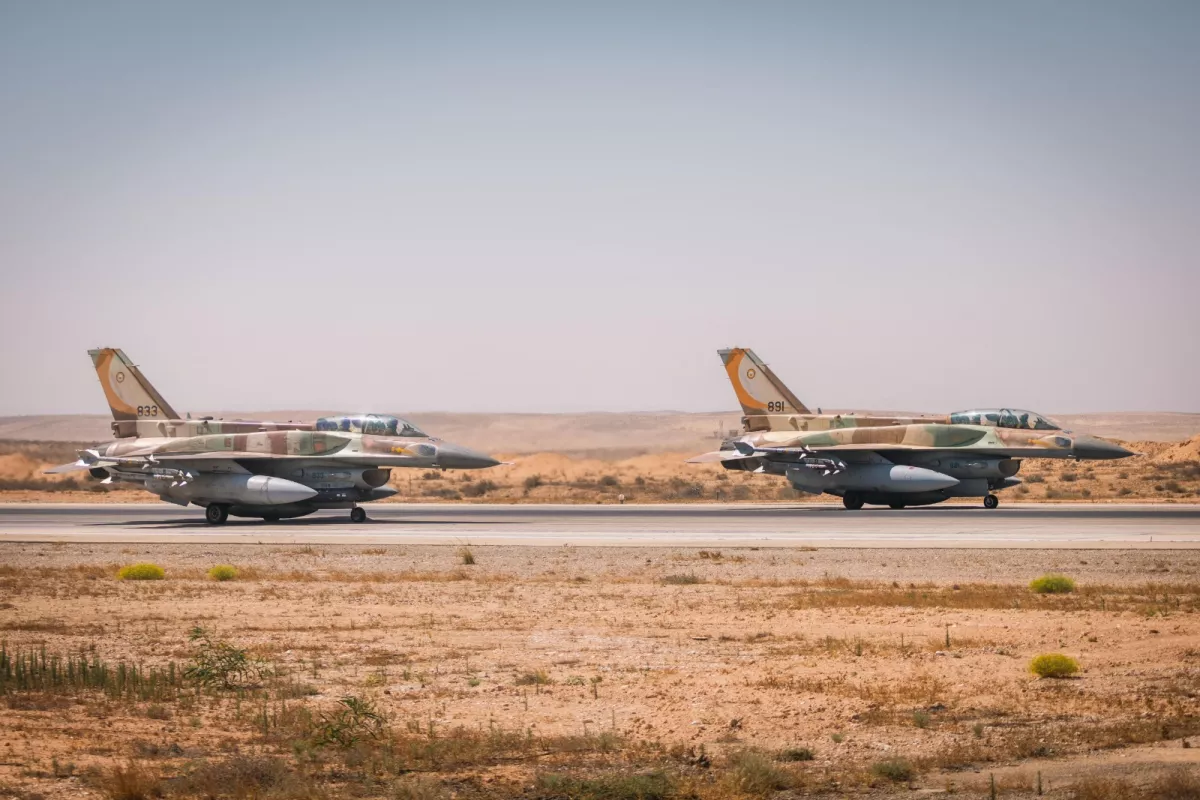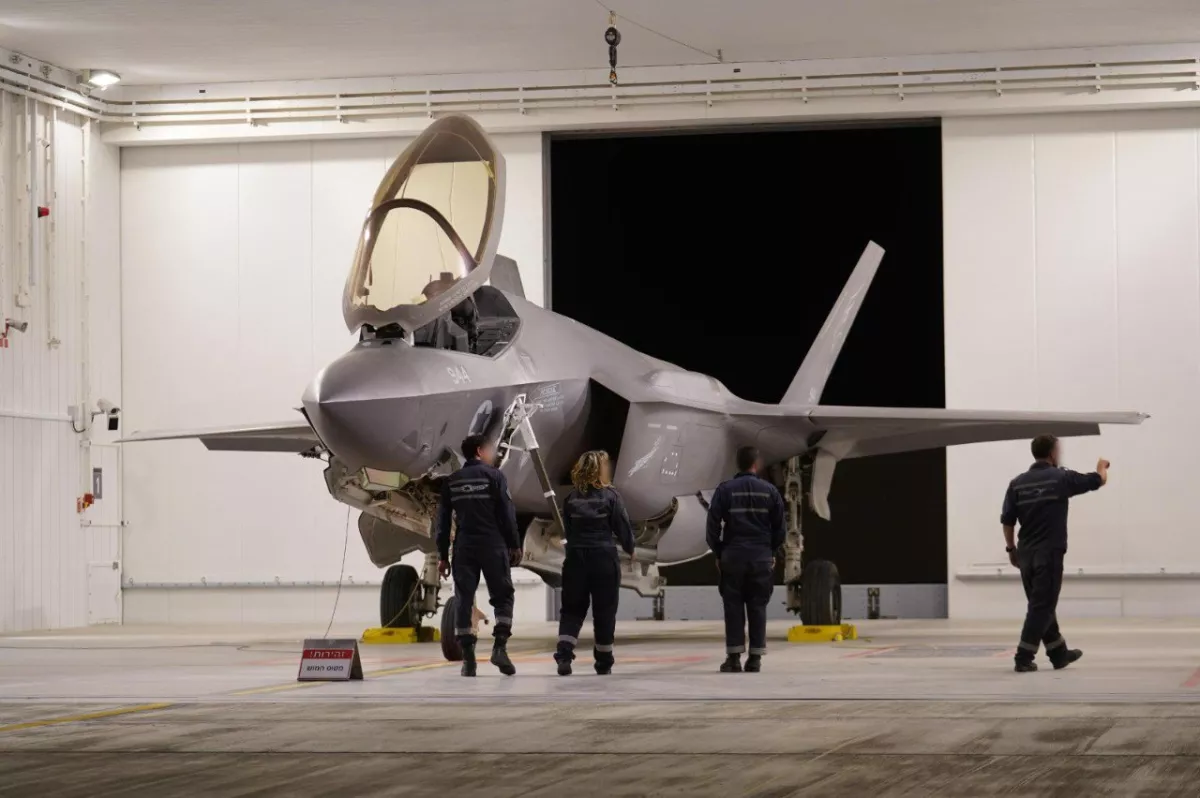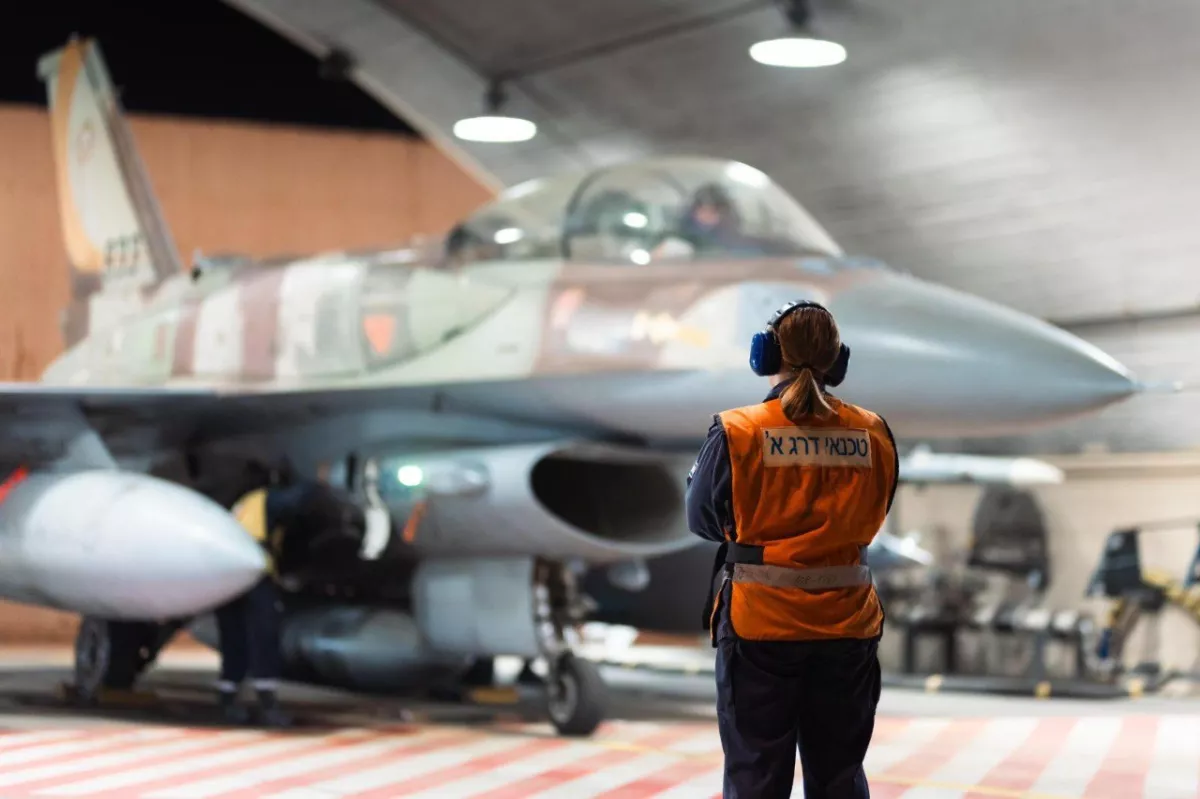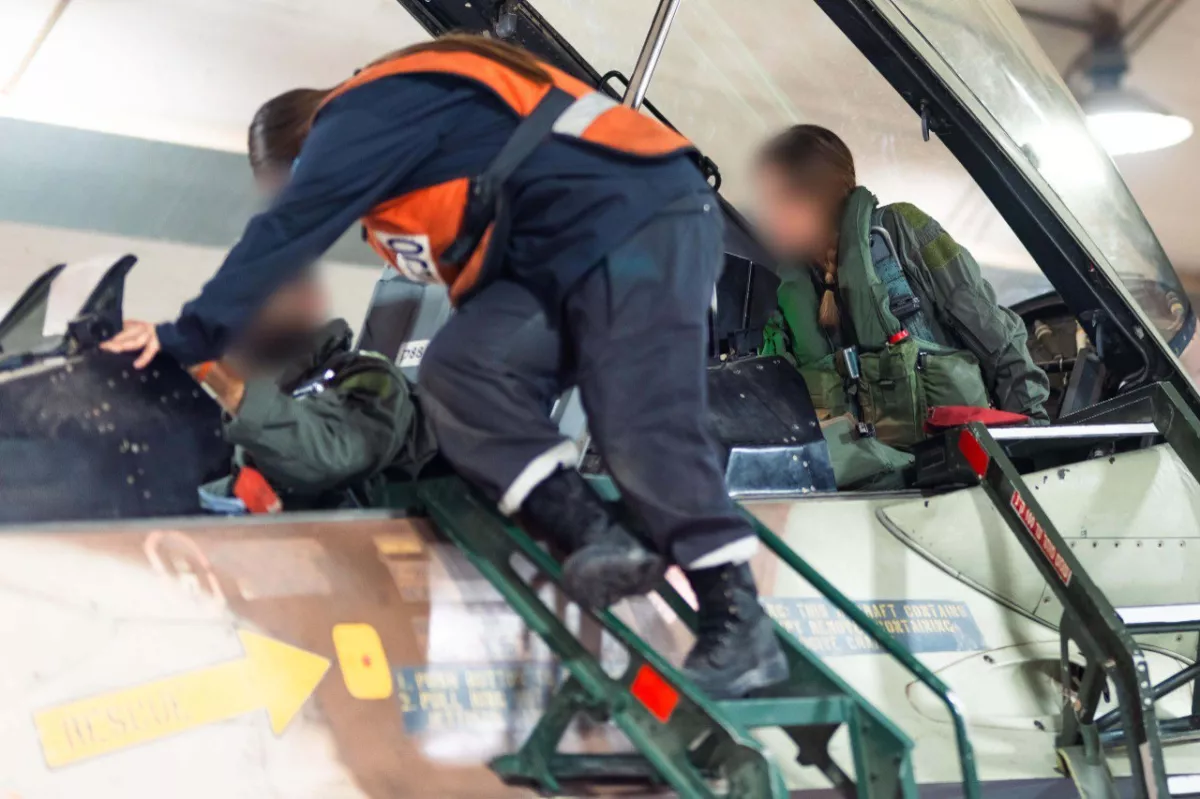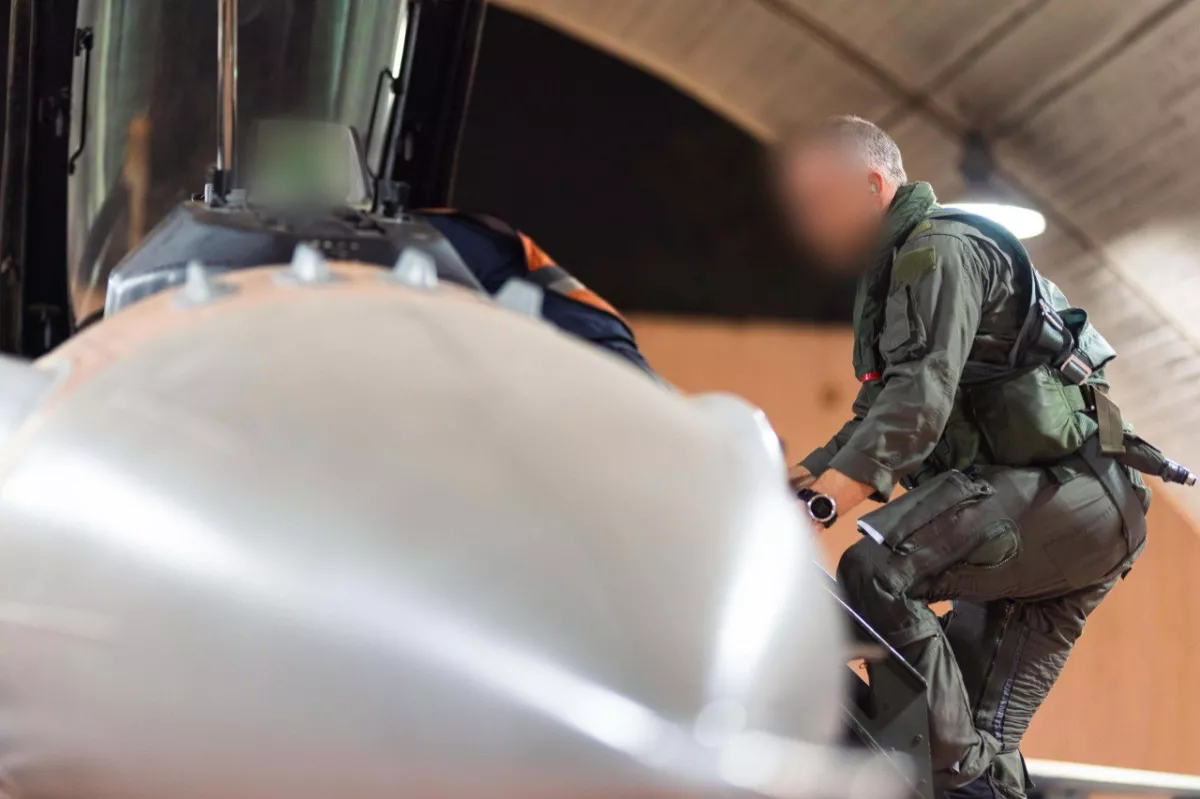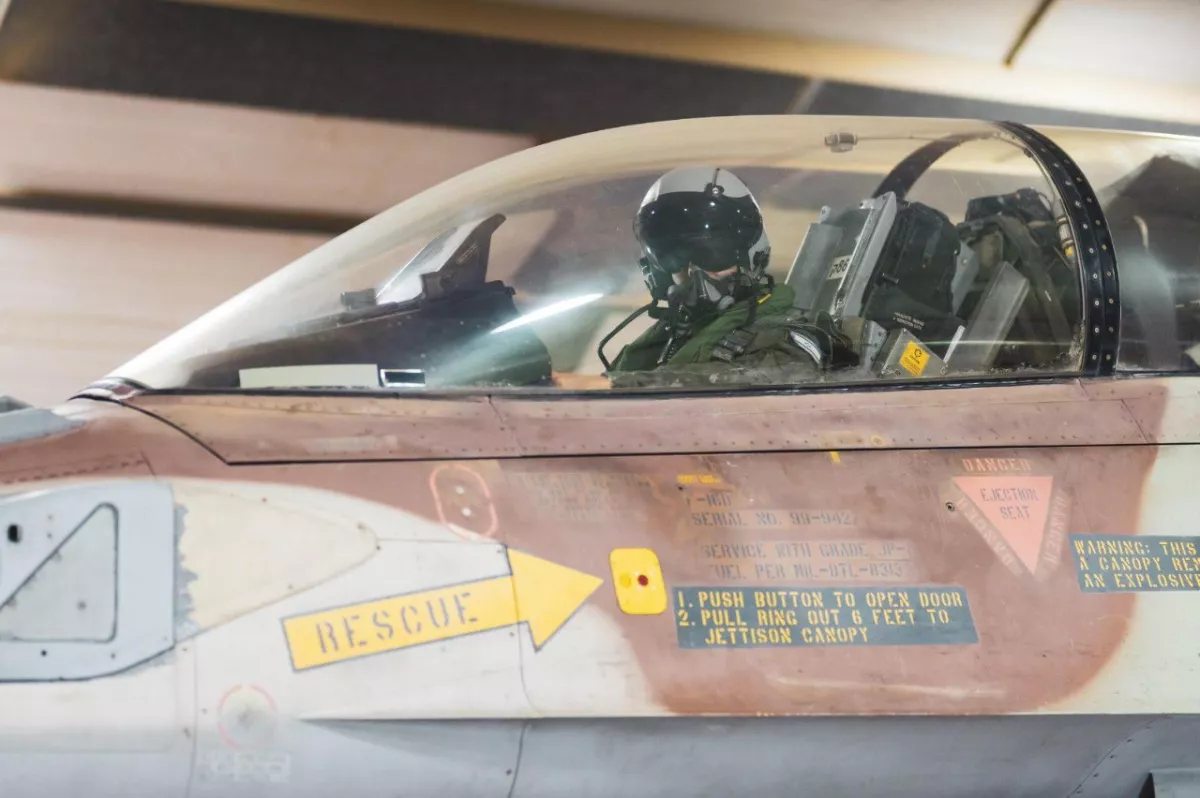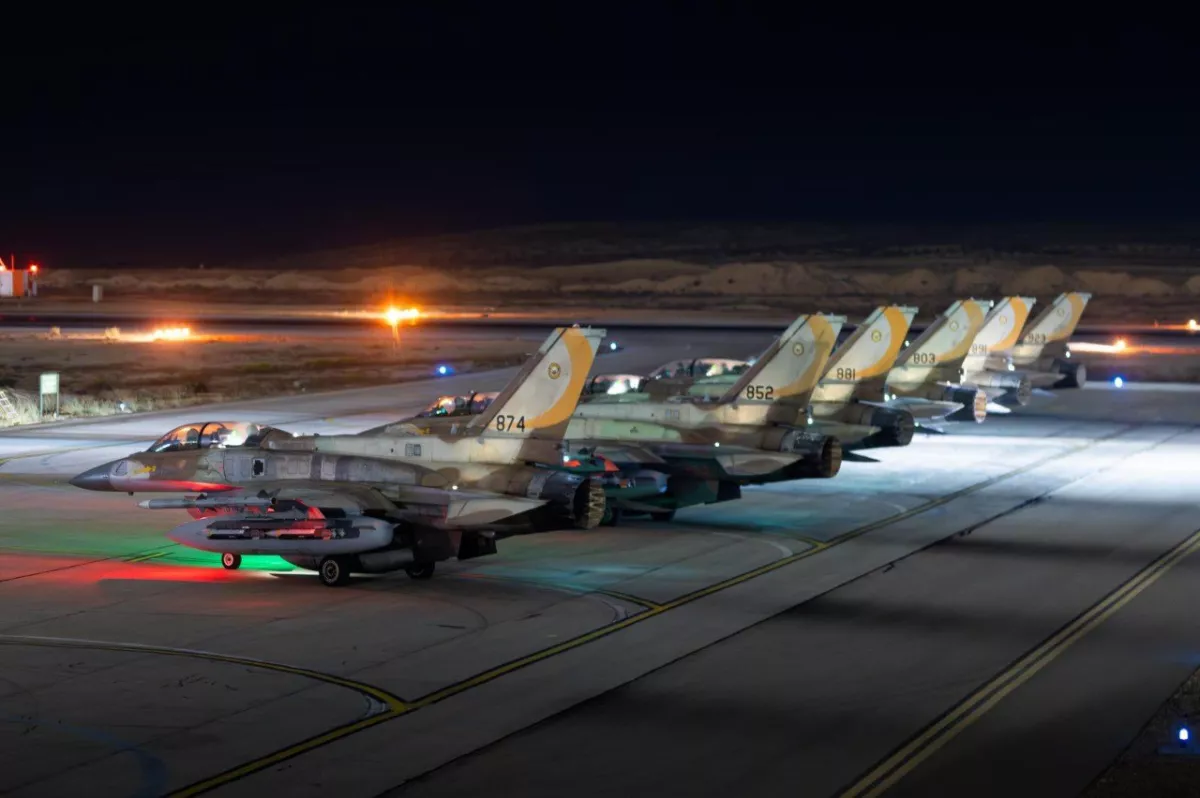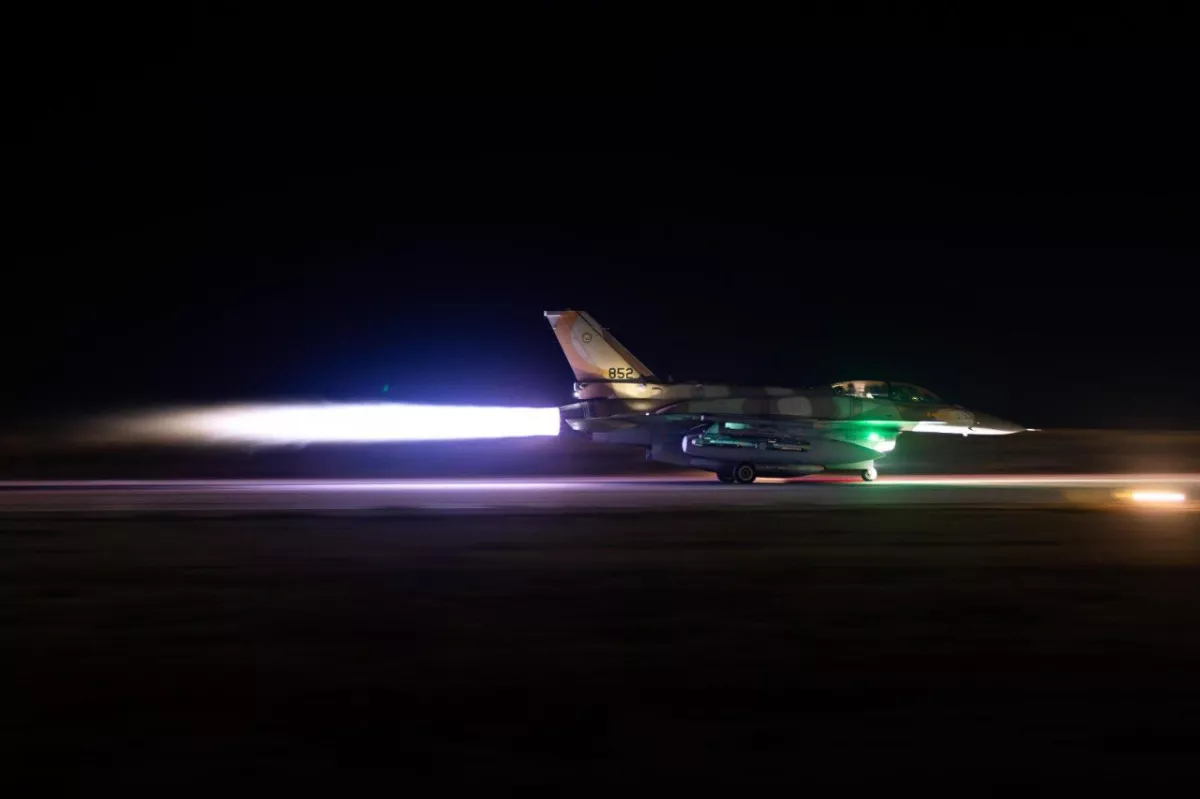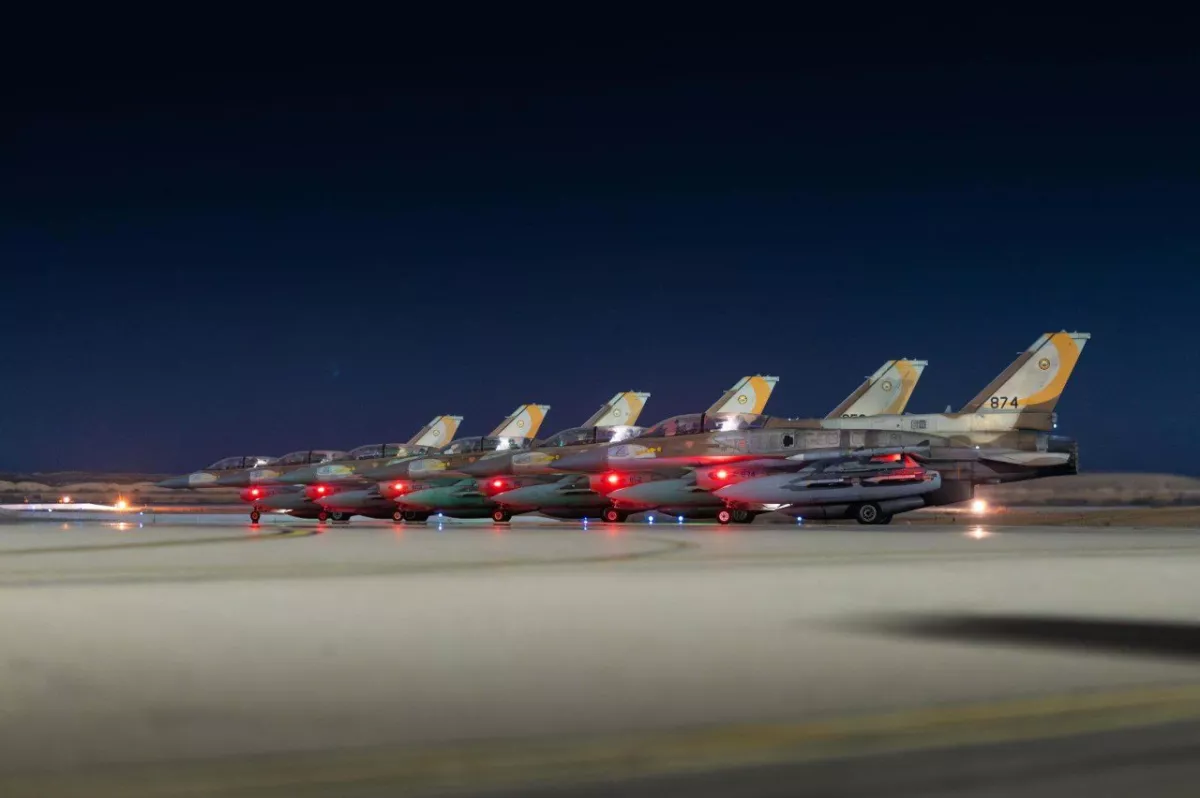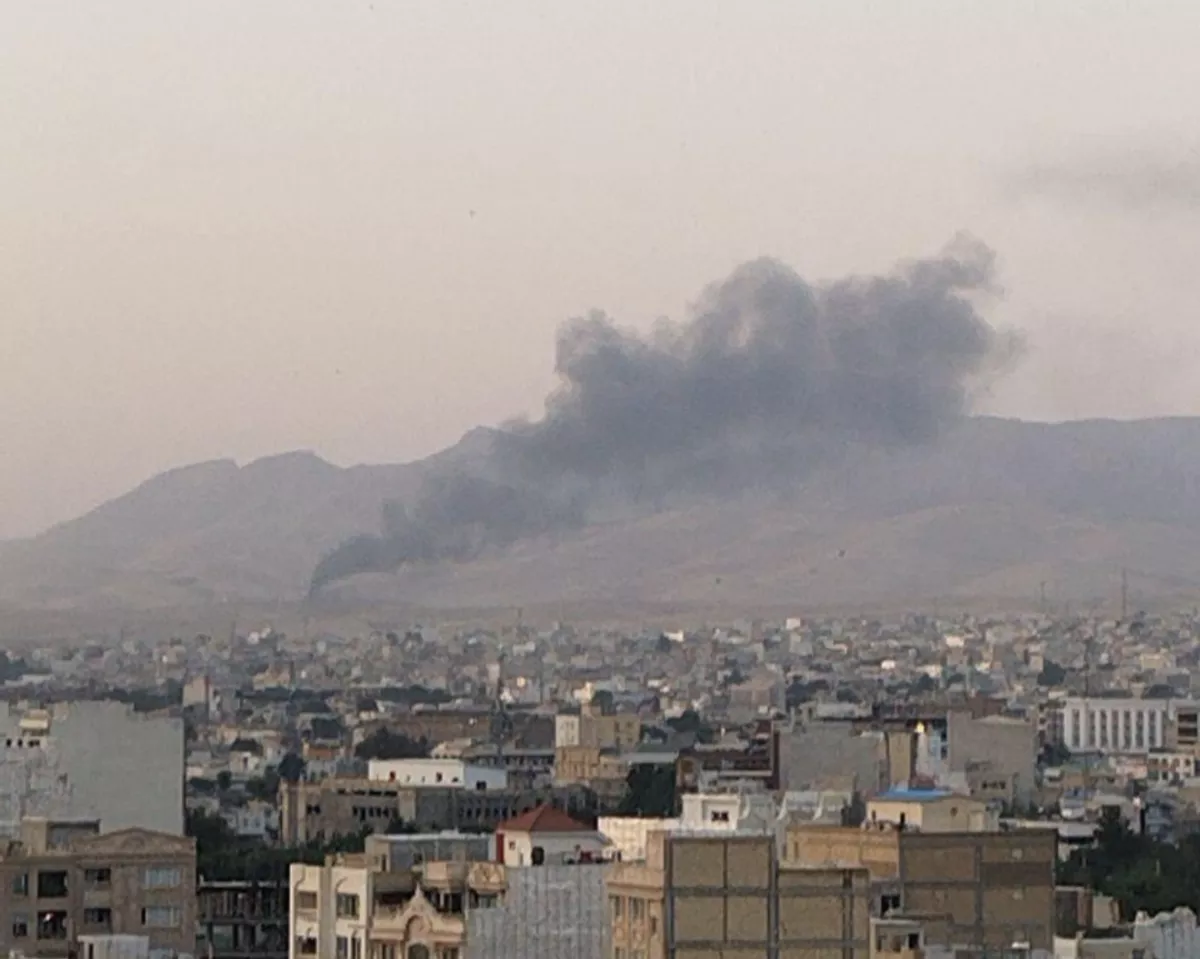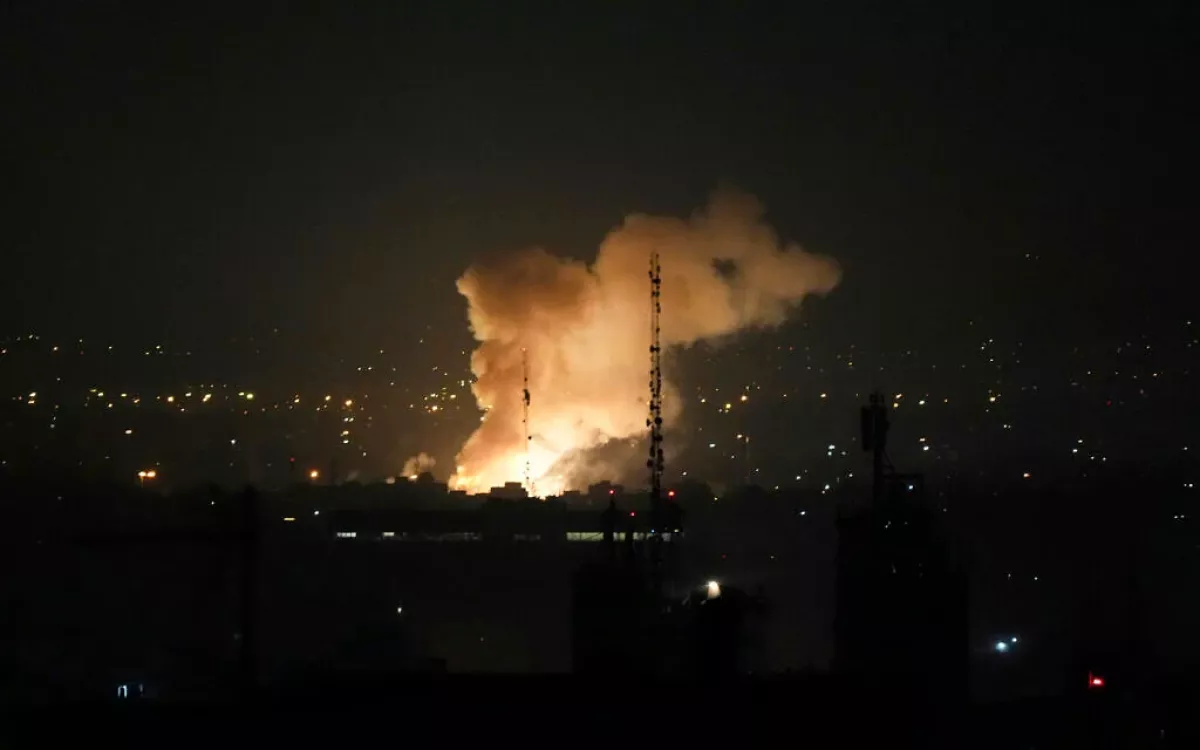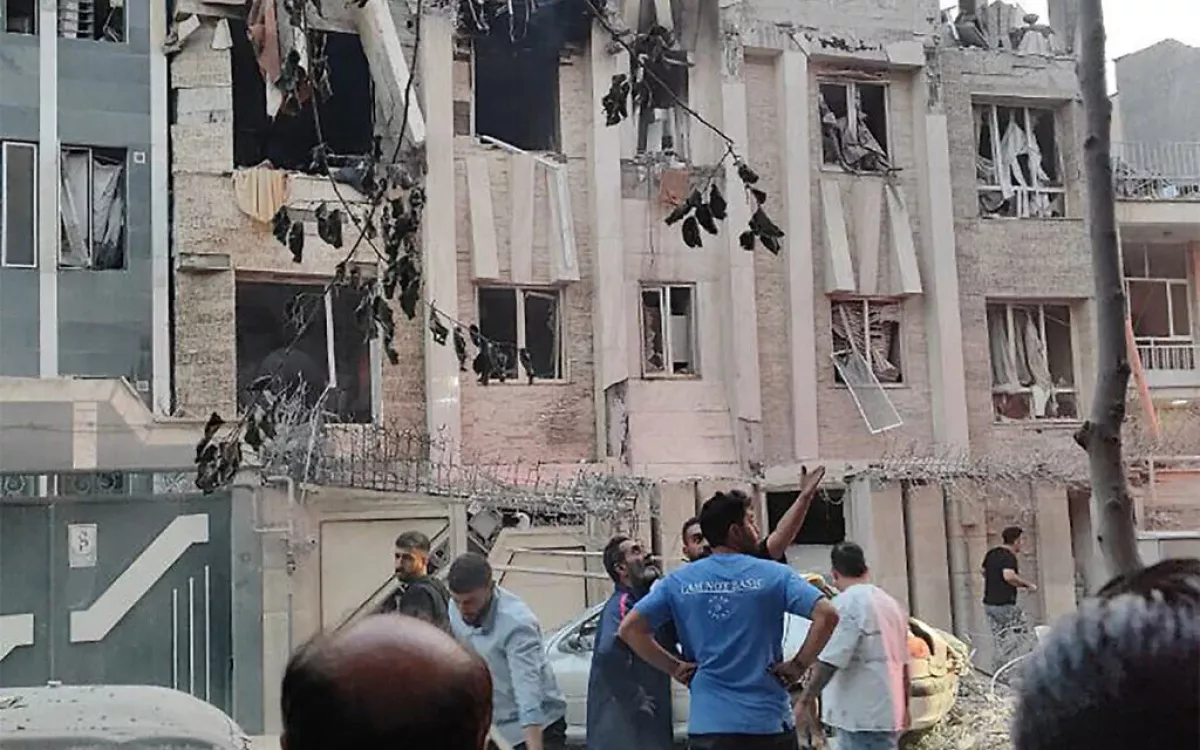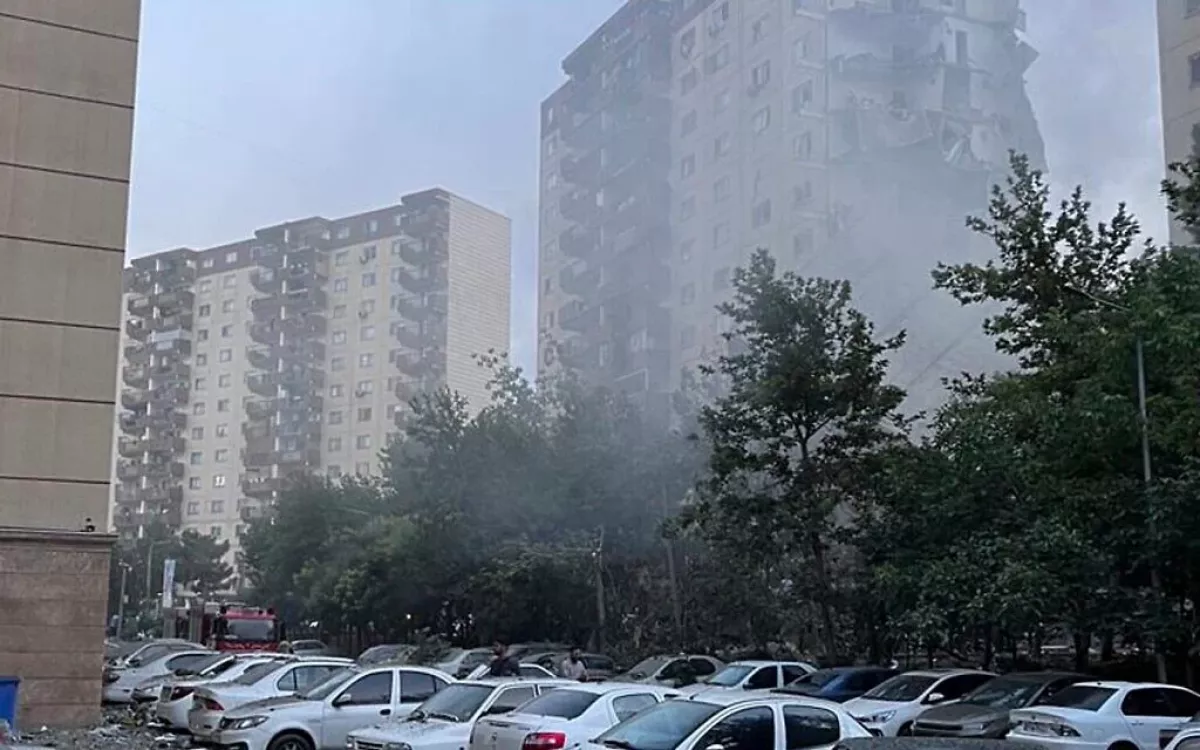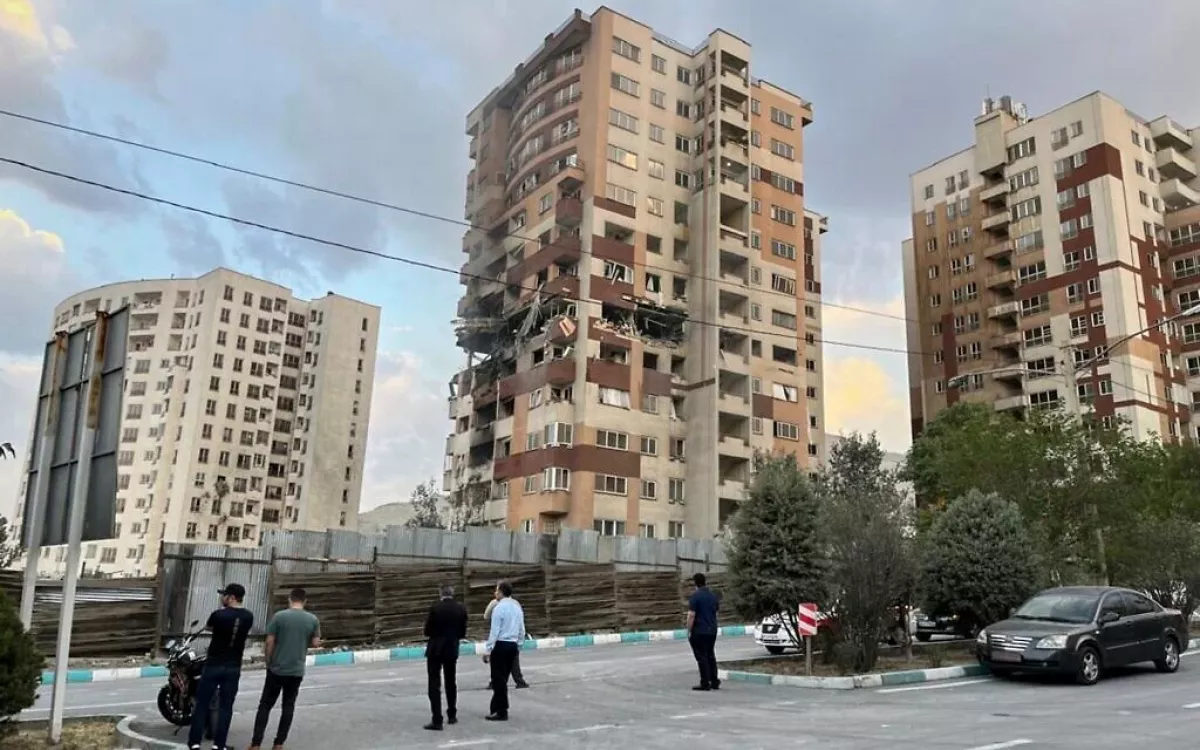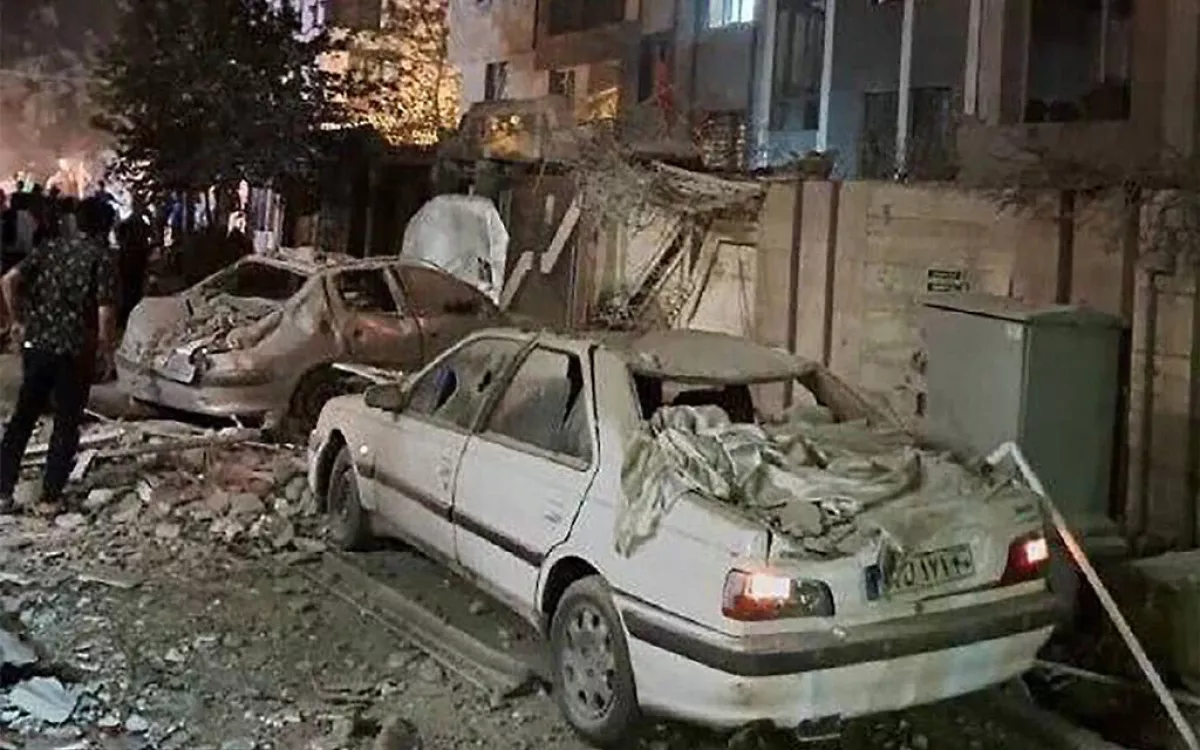Israel vs Iran PHOTO / VIDEO
Tensions between Israel and Iran escalated dramatically on the late evening of June 13 as Iranian forces launched waves of ballistic missiles targeting Israeli territory, including civilian areas. The strikes came in relation to the Israeli attack in the early hours of the same day, which claimed the lives of civilians, top military commanders and leading scientists.
This live news feed has concluded.
For continued updates, please follow our latest live coverage here.
01:49
The Israeli military has recorded a new rocket attack from Iran, according to the army’s press service.
01:21
The United States has placed its troops at military bases in the UAE, Jordan, and Saudi Arabia on high alert, reports The New York Times.
According to the information, more than 40,000 American servicemembers are currently stationed in the region.
00:35
Tehran is preparing to strike U.S. military bases in the Middle East if Washington joins Israel's military actions against Iran, The New York Times (NYT) reports, citing sources.
According to their information, the Islamic Republic has “prepared missiles and other military equipment” and intends to target U.S. bases in Iraq first.
00:32
Iran has taken special measures to ensure the security of its nuclear facilities, and details will be shared with the International Atomic Energy Agency (IAEA) at a later date.
According to Tasnim, this was stated by Reza Najafi, Iran’s Permanent Representative to international organizations in Vienna, at an emergency session of the IAEA Board of Governors.
“The Islamic Republic of Iran has already taken the necessary steps to protect its nuclear facilities and materials. In accordance with national security considerations, information on these measures will be provided to the IAEA in due course,” Najafi was quoted as saying on the official page of Iran’s permanent mission.
00:16
Iranian air defence forces in the southwest of the country have shot down an Israeli military aircraft, Mehr reports.
It is reported that the pilot ejected and a search operation is underway.
00:10, June 18
Israeli fighter jet bases have come under a tenth wave of missile attacks by the Islamic Revolutionary Guard Corps (IRGC), Mehr reports.
According to the information, strikes were carried out on airbases from which fighter jets have been launching sorties towards Iran.
23:05
The Israel Defense Forces (IDF) reported a new missile attack from Iran targeting Israeli territory.
“A short while ago, sirens were heard in several areas of Israel following the detection of rockets launched from Iran toward the State of Israel,” the statement read.
“Residents have been instructed to enter protected spaces and remain there until further notice,” the IDF press office added.
23:02
The Israeli Air Force carried out strikes on 12 missile launchers and missile storage facilities located in Iran, according to the IDF press office.
“The Israel Defense Forces conducted a series of strikes against missile launchers and ground-to-ground missile storage sites in central Iran. The Israeli Air Force targeted 12 launchers and storage facilities based on gathered intelligence,” the statement said.
“The missiles were aimed at Israeli civilians,” the press office added.
21:59
The IDF announced the launch of a major aerial operation named Rising Lion, during which more than 70 Iranian surface-to-air missile batteries were struck.
This was reported by Israeli Air Force Commander Major General Tomer Bar, who described the mission as “a historic operation capable of altering the entire course of the campaign.”
According to the IDF, dozens of Israeli fighter jets, guided by intelligence data, struck launchers and advanced radar systems in various regions of Iran. These targets, it is claimed, were components of Iran’s air defence network designed to counter Israeli strikes.
The statement particularly emphasised that Iranian air defence systems are spread throughout the country, often embedded within civilian infrastructure, which complicates their detection and destruction.
In recent days, the Israeli Air Force has conducted around five waves of attacks aimed at neutralising Iran’s air defence capabilities and establishing full air superiority. According to the IDF, this has paved the way for strikes on Tehran and other strategic targets deep within the country.
It is also reported that remotely piloted drones are actively being used to identify and neutralise ground targets, including mobile launchers and radar systems.
🇮🇱🇮🇷ЦАХАЛ объявил о проведении крупной воздушной операции под названием «Восходящий лев», в ходе которой были поражены более 70 иранских зенитно-ракетных батарей.
— Caliber (@Caliberaz) June 17, 2025
Об этом сообщил командующий ВВС Израиля, генерал-майор Томер Бар, назвав происходящее «исторической миссией,… pic.twitter.com/if15PgC7cE
21:49
Chief of the General Staff of Iran, Abdolrahim Mousavi, has advised residents of Haifa and Tel Aviv to evacuate these cities, Mehr reports.
“Residents of the occupied territories, especially Tel Aviv and Haifa, are being warned to leave the region for the sake of their lives,” Mousavi stated.
Haifa and Tel Aviv have reportedly been the most frequent targets of Iranian missile strikes and drone raids.
21:44
Iran has not yet conducted major operations against Israel and has so far limited its actions to warning strikes.
This was stated by the Chief of the General Staff of the Armed Forces of the Islamic Republic, Abdolrahim Mousavi.
“The operations carried out so far have merely served as a warning intended to deter [the enemy],” Mousavi emphasised, as quoted by Al Alam television.
21:33
The Israeli military has reported a rocket attack launched from the Gaza Strip.
According to a statement from the IDF press office, no casualties have been reported. The incident follows a separate missile strike from Iran earlier in the evening, which targeted southern regions of Israel.
21:14
Iranian armed forces have launched missile strikes on Israeli airbases.
The Fars news agency, citing a statement from the Islamic Revolutionary Guard Corps (IRGC), reported that the operation targeted airbases used by Israeli aircraft to carry out attacks on Iran.
“The latest large-scale missile operation targeted airbases of the Zionist regime, from which hostile aircraft have been launched to strike our country,” the IRGC said.
20:00
The Iranian Armed Forces announced that their air defence units successfully shot down 28 Israeli targets over Iranian airspace within the past 24 hours.
According to a statement, among the intercepted objects was an Israeli Hermes drone, which Tehran contends was engaged in reconnaissance operations aimed at gathering intelligence on “sensitive” sites.
19:58
Iran’s armed forces have initiated a new wave of ballistic missile strikes targeting Israeli territory.
The attacks were conducted by the Islamic Revolutionary Guard Corps (IRGC), underscoring Tehran’s continued military response amid escalating regional tensions, Tasnim news agency reports.
19:12
Iran reportedly launched approximately eight rockets into Israeli territory on June 17.
"About eight rockets were fired [by Iran]," Israel's Channel 12 television stated, without providing further details on the trajectory, targets, or potential damage resulting from the attack.
18:37
Iran's Islamic Revolutionary Guard Corps (IRGC) has launched a targeted strike on the headquarters of Israel’s foreign intelligence agency, Mossad, reportedly neutralizing a substantial number of senior officers.
The operation was executed against Mossad intelligence facilities located north of Tel Aviv, utilizing a newly developed missile system, Tasnim news agency reports.
18:25
A fire has broken out at the headquarters of the Islamic Republic of Iran Broadcasting (IRIB) in Tehran.
A statement by the broadcaster’s official Telegram channel clarified that the smoke emanating from the building was a result of the fire’s resurgence following an attack the previous day.
Increased wind conditions have intensified the flames, causing the fire to engulf the structure once again, the IRIB news anchor confirmed.
Authorities are reportedly monitoring the situation closely as emergency teams respond to contain the blaze and assess the extent of the damage.
18:17
Iran’s air defence systems are intercepting Israeli aerial targets over the city of Isfahan in central Iran.
According to Mehr news agency, multiple explosions were heard across the city.
17:38
Israeli Air Force fighter jets have recently completed a new wave of airstrikes targeting western Iran.
According to the IDF press service, the strikes hit several facilities and dozens of surface-to-surface missile launchers.
תיעודים ממערב איראן: חיל האוויר השלים גל תקיפות על אתרים של טילי קרקע-קרקע
— צבא ההגנה לישראל (@idfonline) June 17, 2025
מטוסי קרב של חיל האוויר השלימו לפני זמן קצר גל תקיפות במערב איראן.
במטס הותקפו מספר אתרים ועשרות משגרים של טילי קרקע-קרקע.
חיל האוויר תקף מהבוקר בהכוונת אגף המודיעין מספר אתרי שיגור טילי קרקע-אוויר… pic.twitter.com/gBqiGGm7E3
17:10
Israeli Navy missile ships continue to intercept unmanned aerial vehicles (UAVs) launched from Iranian territory toward the State of Israel.
According to the IDF press service, the AH Independence missile corvette, a Saar 6-class vessel, has so far intercepted approximately 20 UAVs.
🇮🇱🇮🇷 Армия обороны Израиля: Ракетные корабли ВМС продолжают перехватывать беспилотные летательные аппараты, запущенные с территории Ирана в сторону территории Государства Израиль.
— Caliber (@Caliberaz) June 17, 2025
Ракетный корабль AH Independence модели Saar 6 к настоящему времени перехватил около 20 беспилотных… pic.twitter.com/IkP9ta9Rf7
17:00
Majid Farshi, Director General for Crisis Management in Iran’s East Azerbaijan Province, has claimed that Iran’s Air Defence Forces successfully shot down an Israeli F-35 fighter jet over the city of Tabriz in the country’s northwest.
According to Iran’s IRNA news agency, Farshi also reported that two combat drones were previously intercepted over Tabriz.
He added that three locations near Tabriz were struck on June 17, and that Iranian air defence systems neutralised the intruding Israeli UAVs.
Iranian authorities assert this marks the fourth F-35 jet downed by their air defences.
15:57
Speaking to reporters at the site of a ballistic missile impact in central Israel, Defence Minister Israel Katz stated that the Israeli Air Force would strike “very significant targets, strategic targets, targets of the regime and infrastructure” in Tehran later today.
According to The Times of Israel, Katz noted that the IDF would issue evacuation warnings for those near the targeted areas.
As for Iran’s nuclear facilities, Katz said the underground Fordow site is “an issue that will certainly be addressed.”
15:23
Israel’s operation against Iran will not conclude until the IDF eliminates the threat posed by Iran’s nuclear programme and ballistic missiles, military officials say.
According to The Times of Israel, Major General Oded Basiuk, head of the IDF’s Operations Directorate, told reporters: “We continue to strike nuclear targets to deepen the achievement, according to a plan and at a timing that suits us.”
The IDF stresses that the operation is in full swing, not nearing its end. The goal is to neutralise the “existential threat” posed by Iran’s nuclear programme and missile systems.
“We are striking the terror regime, not the people, who deserve a better future. Those who endanger us are the leadership in Tehran, not the people walking the streets of Shiraz,” Basiuk said.
14:36
U.S. Navy ships took part in defending Israeli airspace from Iranian missile attacks, NBC News reports, citing American officials.
However, the officials noted that the total number of interceptions carried out by the U.S. so far remains relatively limited.
12:50
The Israeli Air Force intercepted a drone that entered Israeli airspace from the east.
The army press service reported that due to the incident, air raid sirens were sounded in some northern areas of Israel over concerns about falling debris following the interception.
12:41
Yesterday, an Israeli drone flying over Iranian airspace detected a launcher that fired surface-to-air missiles at it.
According to the IDF press service, in a swift retaliatory operation, the drone struck the launcher and eliminated the launch team responsible for the attack.
🇮🇱🇮🇷 Армия обороны Израиля: Вчера (в понедельник) израильский БПЛА, находившийся в небе Ирана, обнаружил пусковую установку, которая выпустила по нему зенитные ракеты. В рамках быстрой ответной операции летательный аппарат нанёс удар по пусковой установке и ликвидировал саму… pic.twitter.com/DIx5p62scJ
— Caliber (@Caliberaz) June 17, 2025
12:26
Two Iranian army officers were killed in Israeli strikes on Tabriz, according to Iranian media reports.
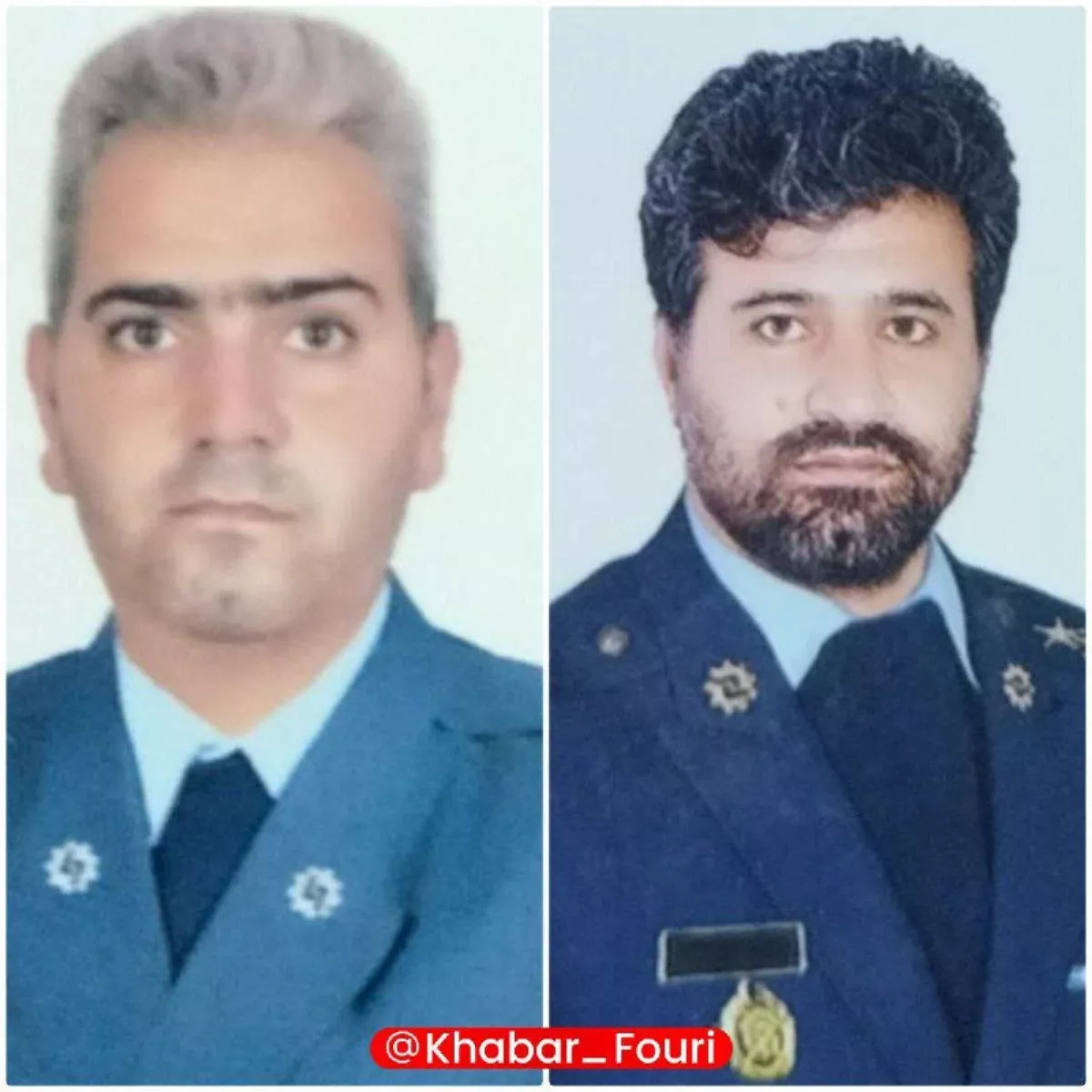
11:55
Iran will intensify its attacks on Israel in the coming hours using new and upgraded weaponry.
As reported by Caliber.Az, this statement was made by Commander of the Iranian Army’s Ground Forces, Amir Heydari.
11:02
Overnight, the Israeli Air Force intercepted around 30 drones launched toward the State of Israel, Caliber.Az reports, citing the IDF.
🇮🇱🇮🇷 Армия обороны Израиля: Ночью ВВС перехватили около 30 беспилотников, запущенных в сторону Государства Израиль.#Caliber #Israel #Iran #war #IranIsrael #IsraelIran #IsraelIranConflict #iranisraelwar2025 #israeliranwar #IsraelvsIran #IranvsIsrael pic.twitter.com/m1mDVacboL
— Caliber (@Caliberaz) June 17, 2025
10:18
The Israel Defense Forces eliminated the head of the Khatam al-Anbiya military headquarters, IRGC General Ali Shadmani, during overnight strikes, Caliber.Az reports, citing the IDF.
Shadmani, who previously held leadership positions in the IRGC and oversaw supply operations during the war, was killed in a targeted strike.
It is worth noting that after the death of Major General Gholam Ali Rashid, Brigadier General Ali Shadmani was promoted to Major General and appointed the new commander of the central Khatam al-Anbiya headquarters.
10:10
Interceptions of rockets launched from Iran into Israel continue.
According to Caliber.Az, a direct hit was reported in central Israel.
During the latest wave of attacks from Iran on Israel, 20 rockets were fired, Israeli media reports.
Military journalists report that there have been no casualties.
09:48
Two explosions occurred in Tabriz within a five-minute interval, according to NourNews.
09:42
The IDF has detected missiles launched from Iran towards the territory of the State of Israel, the Israeli army announced via its official Telegram channel.
Defence systems have been activated to intercept the threat. Following the alert, civilians have been instructed to take shelter in secure areas and remain there until further notice.
09:11
The Israeli Air Force has carried out several large-scale strikes on military facilities in western Iran, Caliber.Az, reports, citing a press release from the Israeli army.
תיעוד מתקיפות חיל האוויר הלילה במערב איראן: הושמדו עשרות תשתיות לאחסון ולשיגור טילי קרקע-קרקע ומשגרי טילי קרקע-אוויר של המשטר האיראני
— צבא ההגנה לישראל (@idfonline) June 17, 2025
מטוסי קרב של חיל האוויר השלימו הלילה מספר גלי תקיפות לעבר עשרות מטרות צבאיות של המשטר האיראני במערב איראן.
במסגרת גלי התקיפות, חיל האוויר תקף… pic.twitter.com/PdpVNXCB0S
09:05
The death toll from Israel’s strike on the IRIB television network has risen to three, Mehr News Agency reports.
08:26
Last night, Iran launched multiple waves of missile and drone strikes against Israel.
According to the Israeli army's press service, most of them were intercepted by air defence systems.
There were reports of several impacts in the north of the country, as well as an interceptor falling in Tel Aviv. No casualties were reported as a result of these attacks.
01:48
Seventeen people were killed and 46 injured in an Israeli strike on northern Tehran on 15 June, Mehr reports.
The information was confirmed by Iranian Foreign Ministry spokesman Esmail Baghaei.
"A rocket fired by the aggressive Israeli regime <...> landed directly among pedestrians and vehicles, resulting in the death of 17 people and injuries to 46 others," he wrote on social media platform X.
He stressed that the strike hit a street near Shohada-e-Tajrish Hospital in northern Tehran, which he visited on 16 June to check on the wounded.
01:30
Israeli forces detected a new barrage of rockets launched from Iran, the IDF press service reports.
According to the statement, the military began interception efforts, and air raid sirens were sounding in Tel Aviv.
01:17
Israel has used its Iron Beam laser air defence system in combat for the first time to intercept Iranian missiles and drones.
This was confirmed in a statement to TASS by a representative of the Israeli embassy in Moscow.
"Israel is already using the Iron Beam laser air defence system to intercept Iranian missiles and drones in a test mode," the official said.
He noted that the current conflict with Iran marks the first real combat use of the system.
The Iron Beam system (also known as Light Shield) is designed to intercept short-range rockets, as well as mortar and artillery shells, using a directed energy laser beam. It is also intended to neutralise small unmanned aerial vehicles (UAVs).
00:59
A spokesperson for Iran’s Islamic Revolutionary Guard Corps (IRGC) announced the launch of the ninth wave of attacks on Israel under Operation True Promise 3, which is expected to continue until dawn, Fars News Agency reports.
“The IRGC spokesperson said that the ninth wave of Operation True Promise 3 began a few minutes ago and will continue non-stop until dawn,” the statement read.
According to preliminary reports, the latest Iranian strike will be a combined assault involving dozens of UAVs and ballistic missiles, primarily targeting the cities of Tel Aviv and Haifa.
00:46
Iranian armed forces have struck Israel’s long-range air defence system using stealth drones, according to Fars News Agency, citing informed sources.
The attack reportedly targeted key Israeli defence infrastructure and was part of a coordinated effort to undermine the country’s aerial defences.
00:27
Tasnim News Agency has published video footage showing the launch of Iranian missiles directed toward Israeli territory.
🇮🇷🇮🇱Агентство Tasnim опубликовало видео запуска иранских ракет в сторону Израиля.#Israel #Iran #Caliber pic.twitter.com/A32BDLe2Lq
— Caliber (@Caliberaz) June 16, 2025
June 17, 00:08
Iranian armed forces have struck Israel’s long-range air defence system using stealth drones.
According to Fars news agency, citing sources, the attack targeted key Israeli defence facilities.
23:54
According to Tasnim news agency, Iran has launched a new wave of retaliatory missile strikes against Israel.
23:52
IDF press service: Following the sirens that sounded at 21:56 in the Ramat Magshimim and Haspin areas, the Israeli Air Force intercepted several unmanned aerial vehicles (UAVs) launched toward Israeli territory.
22:43
Iran is determined to resolutely defend its security and territorial integrity.
According to Tasnim, this is stated in a letter from Iran’s Permanent Representative to the United Nations, Amir Saeid Iravani, addressed to UN Secretary-General António Guterres and members of the UN Security Council.
“As part of the inherent right to self-defence enshrined in Article 51 of the UN Charter, Iran carried out proportionate defensive operations exclusively targeting military objectives and relevant infrastructure in the occupied territories under the illegal control of the Israeli regime,” the letter reads.
“Iran’s military response is solely aimed at repelling aggression, deterring further acts, and preventing the recurrence of such crimes. Iran will firmly defend its security and territorial integrity,” the statement adds.
22:29
Israeli Foreign Minister Gideon Sa’ar, during a phone call with the European Union's foreign policy chief Kaja Kallas, stated that Israel’s strikes on Iran directly contribute to Europe’s security and will continue.
“Briefed E.U. High Rep. for Foreign Affairs Kaja Kallas on the IDF's operation in Iran and on the civilian casualties in Israel. I emphasized that Israel's actions against Iran's nuclear program and its ballistic missiles and drones directly contribute to the security of Europe,” Sa’ar wrote on X.
The minister also noted that “we did not finish the job and will act to complete it.” In addition, Sa’ar highlighted the distinction between the military targets struck by Israel and Iran’s deliberate unlawful attacks on the civilian population of the Jewish state.
22:14
Iran’s air defence forces have shot down an Israeli F-35 fighter jet over Tabriz in the northwest of the country, according to Tasnim news agency.
According to the Iranian side, this is the fourth F-35 downed since the beginning of the current conflict.
21:52
The IDF Press Service has reported that the Israeli Air Force carried out a strike on an airbase in Tehran, destroying two Iranian F-14 fighter jets. According to the Israeli side, these aircraft were intended, among other things, to intercept Israeli Air Force drones and aircraft.
In addition, Israeli unmanned aerial vehicles (UAVs) identified and eliminated a group inside Iran that was preparing to launch kamikaze drones against Israel. The group had been under surveillance for several days. At the moment they began deploying their launch systems and combat equipment, a precision strike was carried out. As a result, the group was neutralised and the launch systems were disabled just minutes before the attack could be executed.
🇮🇱🇮🇷 Пресс-служба ЦАХАЛ сообщила, что израильские ВВС нанесли удар по аэродрому в Тегеране, уничтожив два иранских истребителя F-14. Эти самолёты, по утверждению израильской стороны, предназначались, в том числе, для перехвата летательных аппаратов ВВС Израиля.
— Caliber (@Caliberaz) June 16, 2025
Кроме того,… pic.twitter.com/xnYmuV5JY2
21:24
Israeli authorities are considering the possibility of targeting Iran’s Supreme Leader Ali Khamenei. This was stated by Israeli Prime Minister Benjamin Netanyahu in an interview with ABC News.
When asked whether Israel was indeed planning an attack on Iran’s Supreme Leader, Netanyahu replied that Israel is "doing what it must," according to the source.
The Israeli Prime Minister also commented on media reports claiming that U.S. President Donald Trump had allegedly backed out of a plan to eliminate Khamenei over the weekend due to concerns about escalating the conflict. According to Netanyahu, such a move "is not going to escalate the conflict, it's going to end the conflict."
21:20
On the highway between Tehran and Qom, the Israeli Air Force destroyed another truck carrying a surface-to-air missile system, according to the IDF.
Shortly beforehand, an Iranian truck transporting a missile launcher was spotted on the main road connecting Tehran and Qom.
Minutes later, the Israeli Air Force struck the target, destroying both the launcher and the missiles.
🇮🇱🇮🇷 ЦАХАЛ: На трассе между Тегераном и Кумом ВВС Израиля уничтожили ещё один грузовик с зенитно-ракетной установкой.
— Caliber (@Caliberaz) June 16, 2025
Незадолго до этого на главной дороге, соединяющей Тегеран и Кум, была обнаружена иранская грузовая машина, перевозившая пусковую установку зенитных ракет.… pic.twitter.com/vAzSngyumU
21:05
The IDF Spokesperson’s Unit has issued a statement explaining the airstrike on a building in Tehran housing Iran’s national broadcasting corporation, according to News.co.il.
“The Israeli Air Force carried out a precision strike on the Iranian regime’s media centre, which was being used by Iran’s armed forces for military activities. This facility was exploited by the military to plan and conduct operations under civilian cover, using the centre’s technical and material resources,” the statement said.
The IDF stressed that the local population had been warned of the impending strike, including via phone calls. To minimise civilian harm as much as possible, the attack was conducted as a targeted operation.
20:58
The Israel Defense Forces (IDF) conducted another strike on Lebanese territory amid reports of potential new attacks on Iran.
This was announced via the IDF’s official Telegram channel.
According to the statement, the strike targeted areas around the town of Houla in southern Lebanon with the objective of neutralising a member of the armed wing of the Shia group Hezbollah.
The IDF confirmed that the mission had been accomplished. The identity, rank, and further details about the eliminated Hezbollah member have not yet been disclosed.
20:52
Sirens have sounded in northern Israel amid another missile barrage from Iran, newsru.co.il reports. Alarms and explosions were heard in Haifa and Galilee.
Air defence systems have been activated.
The Home Front Command has issued a warning: do not leave shelters until further notice, israelinfo reports.
20:23
TV host Sahar Emami resumed broadcasting mere minutes following an Israeli strike on an Iranian TV and radio station building.
Going live on air, Emami directly addressed the Israeli military, calling for a second strike, NourNews reported.
20:20
Trump says Iran wants to talk about de-escalating hostilities with Israel, and he advises that they should do so immediately “before it’s too late”.
“I’d say Iran is not winning this war, and they should talk, and they should talk immediately before it’s too late,” Trump told reporters at the start of the G7 summit meeting with Canadian prime minister Mark Carney, The Guardian reports.
Trump reaffirmed longstanding US support for Israel, stating, “We’ve always supported Israel. We have, for a long period of time, strongly, and Israel is doing very well right now.”
When pressed on what circumstances might prompt US military involvement, the President declined to elaborate, responding, “I don’t want to talk about that.”
20:08
The Iranian Armed Forces have issued a warning urging residents of Bnei Brak, a town on the outskirts of Tel Aviv, to evacuate ahead of an impending strike on military installations in the area.
“In the coming hours, the Iranian armed forces will attack the Zionist regime's military facilities in the area, as they have done in the Tel Aviv neighbourhood in recent days,” the Iranian Armed Forces declared in an official statement, according to SNN TV channel.
19:55
Iran’s Minister of Health and Medical Education, Mohammad-Reza Zafarghandi, reported that Israeli strikes have resulted in at least 1,800 injuries, with the majority of casualties being civilians.
ISNA conveyed via its Telegram channel that the minister affirmed the majority of the casualties, both fatalities and injuries, were civilians.
“We have at least 1,800 wounded as a result of the attacks,” the official noted.
The minister did not provide a specific figure for the total number of fatalities.
19:51
The Israel Defense Forces (IDF) announced on X a fresh series of airstrikes targeting Tehran.
The military confirmed that the operations focused on “military targets” within the Iranian capital.
“Military targets are currently being struck in Tehran. More details as the situation progresses,” an official statement said.
19:39
International Atomic Energy Agency (IAEA) Director-General Rafael Grossi has disclosed the current status of Iran’s nuclear facilities following recent airstrikes by Israeli forces.
Speaking at an emergency session of the IAEA Board of Governors, Grossi provided a detailed assessment of the impact of the attacks, IRNA reports.
According to Grossi, critical nuclear sites, including the Fordow Fuel Enrichment Plant and the Khondab heavy water reactor—currently under construction—have not sustained any damage. He further confirmed that the Bushehr nuclear power plant and the Tehran Research Reactor remain untouched and unaffected by the recent strikes.
Regarding radiation levels, Grossi reported that, similar to the situation in Natanz, off-site radiation readings have remained stable and unchanged, alleviating concerns about potential nuclear contamination or accidents following the assaults.
“I acknowledge the cooperation and exchange of information between the Iranian authorities and the IAEA,” Grossi noted.
19:28
Israeli forces have launched a targeted attack on Iran’s state radio and television headquarters, the Islamic Republic of Iran Broadcasting (IRIB), as part of an escalating military campaign against the country.
The assault on the IRIB facility marks a significant escalation in the ongoing conflict, according to Iran Wire.
🇮🇱🇮🇷Израиль нанес удар по штаб-квартире иранского государственного телевидения, сообщает агентство NourNews. pic.twitter.com/yA6NiNLhIg
— Caliber (@Caliberaz) June 16, 2025
Despite the attack, the political deputy of Iran’s state television assured that the network’s staff remain resolute in their mission. “Your children at IRIB will continue their mission,” he declared, confirming that the news network had been deliberately targeted.
During a live broadcast, an Iranian state TV reporter described the studio filling with dust following what she described as “the sound of aggression against the homeland.” The broadcast was abruptly interrupted by an explosion behind her, forcing her to flee off camera as dust and debris filled the studio.
18:55
Iran is urgently signaling a willingness to end hostilities and resume nuclear negotiations, Middle Eastern and European officials report, amid escalating conflict with Israel.
Tehran has conveyed to Arab intermediaries its openness to returning to talks, provided the United States refrains from joining the attacks. Messages sent to Israel emphasize the mutual interest in containing the violence, The Wall Street Journal reports.
Despite these overtures, Israeli warplanes continue to strike freely over Tehran, while Iranian counterattacks have inflicted minimal damage. Israeli leaders remain determined to intensify assaults on Iran’s nuclear sites to weaken the regime’s grip on power. Recent Israeli strikes have eliminated key military figures, including top air force commanders, isolating Supreme Leader Ayatollah Ali Khamenei. However, the impact on nuclear facilities remains limited, and experts warn a prolonged air campaign may be necessary.
Israeli Prime Minister Benjamin Netanyahu has vowed to continue attacks until Iran’s nuclear program and missile capabilities are destroyed. “Regime change isn’t a goal but could be a result,” Netanyahu has noted. Israeli military officials have prepared for at least two weeks of strikes.
Calls for diplomacy continue, with French President Emmanuel Macron urging Iran “to return swiftly to the negotiating table,” and regional Arab leaders advocating for an end to hostilities. US President Donald Trump stated, “I think it’s time for a deal, and we’ll see what happens, but sometimes they have to fight it out.”
Arab diplomats suggest Tehran is betting on Israel’s reluctance to engage in a protracted war without US support, with Iran prepared to accelerate its nuclear program or expand the conflict if talks stall. “The Iranians know the US is supporting Israel in its defense,” one official said, “but they want guarantees the US won’t join the attacks.”
Persian Gulf states warn the ongoing violence risks broader regional instability, endangering critical energy infrastructure and the global economy.
18:26
The Islamic Revolution Guards Corps (IRGC) Aerospace Force has officially unveiled its latest suicide drone, the Shahed-107, designed to carry out precision strikes against hostile targets.
The newly revealed unmanned aerial vehicle (UAV) is powered by a piston engine and boasts an operational range exceeding 1,500 kilometres, significantly enhancing Iran’s ability to project force deep into enemy territory, Tasnim news agency reports.
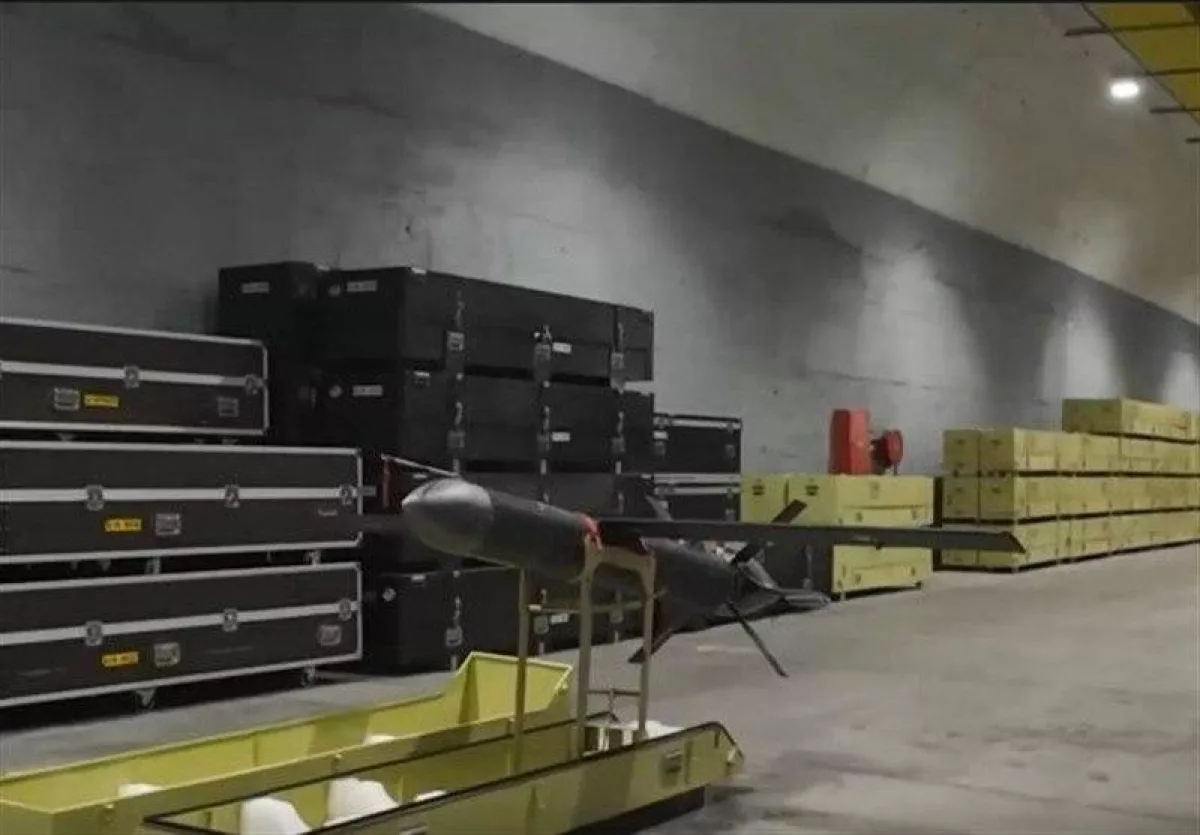
Photographs of the Shahed-107 released during the unveiling suggest it is tailored for loitering munition missions—commonly referred to as “suicide drone” operations—intended to strike targets with explosive payloads upon impact.
Recent images circulating online appear to show a drone resembling the Shahed-107 in close proximity to Israel’s Arrow 3 missile defence system within the occupied territories. If authenticated, these images would indicate the drone’s capability to penetrate Israel’s highly sophisticated, multi-layered air defence network—raising strategic concerns for Tel Aviv.
Military analysts warn that the deployment of the Shahed-107 in coordinated swarms could seriously undermine the Israel’s air defence systems. The drone’s range, combined with swarm capabilities, offers the potential to saturate and overwhelm even the most advanced anti-aircraft platforms.
The unveiling comes at a time of heightened tensions between Iran and Israel, with both sides engaged in direct military exchanges involving drones, missiles, and air strikes. The introduction of the Shahed-107 adds a new dimension to Iran’s expanding UAV arsenal and signals its continued focus on asymmetric warfare capabilities.
18:13
Iranian authorities have detained 28 individuals suspected of being part of an Israeli espionage network operating in Tehran, a report by the Tehran Times says.
All detainees were immediately handed over to the relevant structures for further investigation, the report stated.
18:07
Israel has carried out an airstrike targeting a military base in the western outskirts of the Iranian capital, Tehran.
Fars News Agency stated that the attack triggered Iran’s air defence systems, though the full extent of the damage remains unclear, Caliber.Az reports.
The attacks activated the air defence system. No immediate information has been released regarding casualties or the extent of destruction at the targeted military installation.
This latest strike comes amid a sustained exchange of hostilities between Israel and Iran, now entering its fourth consecutive day. Both nations have launched barrages of missiles, drone strikes, and air raids, focusing primarily on military installations and strategically significant sites.
The intensifying conflict has raised fears of a broader regional conflagration, with the potential to draw in neighboring countries and destabilize the wider Middle East. As tensions mount, international leaders have renewed urgent appeals for de-escalation.
US President Donald Trump, Russian President Vladimir Putin, and Turkish President Recep Tayyip Erdogan are among those urging restraint.
17:45
A few minutes ago, Israel struck a military garrison west of Tehran. Air defence systems were activated in response, Mehr agency reports.
Earlier, the IDF announced a new wave of attacks on central regions of Iran.
17:29
Israel struck the main highway between Tehran and Qom — a regional hub for the distribution of oil and other goods, according to The Jerusalem Post newspaper.
Report: Israel struck the main road between Tehran and Qom, a regional center for the distribution of petroleum and related products.@AmichaiStein1 pic.twitter.com/Zw5j7Y3qUt
— The Jerusalem Post (@Jerusalem_Post) June 16, 2025
17:17
The Israeli Air Force attempted to strike the airport in the city of Tabriz, Iran, but Iranian air defence systems successfully repelled the attack.
According to NourNews, Israel targeted areas adjacent to Shahid Madani International Airport in Tabriz; however, the city’s air defences thwarted the assault.
Currently, the situation in Tabriz remains calm and is fully under the control of local law enforcement, the agency reports.
17:14
The Israeli Air Force has launched a new wave of airstrikes in central Iran, a military official stated, according to The Times of Israel.
16:04
Since this morning, the Israeli Air Force has identified several weapons convoys, including trucks carrying surface-to-air missile launchers, moving from western Iran toward Tehran.
According to the IDF press service, the convoys were promptly targeted in airstrikes, resulting in the destruction of both the weaponry and the missile launch systems.
🇮🇱🇮🇷 Армия обороны Израиля: Начиная с сегодняшнего утра, ВВС обнаружили несколько грузовиков с оружием, в том числе грузовики с пусковыми установками ракет «земля-воздух», которые двигались из западного Ирана в сторону Тегерана. В кратчайшие сроки ВВС атаковали грузовики и… pic.twitter.com/212AZpRkzN
— Caliber (@Caliberaz) June 16, 2025
13:45
Iran’s air defence units successfully intercepted multiple small Israeli drones over the northeastern city of Mashhad.
“A few hours ago, the air defence assets of the northeastern [district] intercepted several drones of hostile Israeli forces,” the statement confirmed, highlighting Tehran’s continued vigilance against aerial incursions in the region, according to an official military statement, Tasnim news agency reports.
13:27
The Israel Defense Forces (IDF) reported that approximately 100 military installations across Iran were targeted in recent operations.
According to the Israeli Air Force, a significant portion—estimated at one-third—of Iran’s surface-to-surface missile systems have been successfully neutralized, Caliber.Az reports.
🇮🇱🇮🇷 Israel Defense Forces: Around 100 military targets were struck on Iranian territory.
— Caliber English (@CaliberEnglish) June 16, 2025
The IDF reports that it has destroyed one-third of Iran’s missile launch systems.#Caliber #Israel #Iran #war #IranIsrael #IsraelIran #IsraelIranConflict #iranisraelwar2025 #israeliranwar… pic.twitter.com/pfj7R4S5wt
12:32
Since the start of Operation Rising Lion, 24 Israeli civilians have been killed. Over 370 ballistic missiles and hundreds of drones have been launched across the country, according to Dmitri Gendelman, advisor to the Israeli Prime Minister’s office.
Additionally, 592 people have been injured, with 10 in serious condition.
11:00
Eight Iranian drones were intercepted last night by Israeli Navy missile ships, the army's press office reported, according to Caliber.Az.
The interception was carried out using the Barak Magen air defence system, marking the first time the system and its long-range LRAD interceptor missile were deployed in combat conditions.
Overnight, the Navy's missile ship flotilla successfully downed eight UAVs launched from Iranian territory. Since the beginning of the operation, the flotilla has intercepted around 25 drones deemed a threat to Israeli civilians.
🇮🇱🇮🇷 Eight Iranian drones were intercepted last night by Israeli Navy missile ships, the army's press office reported.
— Caliber English (@CaliberEnglish) June 16, 2025
The interception was carried out using the Barak Magen air defence system, marking the first time the system and its long-range LRAD interceptor missile were… pic.twitter.com/ZvHu8RdYHL
10:31
Iran will continue operations against Israel until its complete destruction, the Islamic Revolutionary Guard Corps (IRGC) stated in a statement.
10:14
Iran has shot down an Israeli MQ-9 Reaper reconnaissance drone.
The drone was downed over the city of Dehloran, near the Iran-Iraq border.
10:10
Two members of Iran’s Islamic Revolutionary Guard Corps (IRGC) were killed in an Israeli strike on the Ijrud district in Zanjan province, located in the northwest of the Islamic Republic, Tasnim news agency reports.
10:07
Iran has informed Qatari and Omani officials that it has no intention of discussing a ceasefire or resuming nuclear talks while Israeli strikes are ongoing.
According to Reuters, the statement came from an official familiar with the negotiations.
“The Iranians informed Qatari and Omani mediators that they will only pursue serious negotiations once Iran has completed its response to the Israeli pre-emptive strikes,” the official said on condition of anonymity.
09:06
The Israel Defense Forces (IDF) have announced that they conducted strikes against command centres of the Quds Force, the elite special operations unit of Iran’s Islamic Revolutionary Guard Corps (IRGC), in Tehran, Caliber.Az reports, citing the IDF.
חיל האוויר תקף מפקדות של כוח קדס בטהראן
— צבא ההגנה לישראל (@idfonline) June 16, 2025
מטוסי קרב של חיל האוויר תקפו מפקדות של כוח קדס במשמרות המהפכה וצבא איראן, בהכוונה מודיעינית ומדויקת של אגף המודיעין.
במפקדות אלה תכננו פעילי קדס פעולות טרור נגד ישראל באמצעות שלוחותיו של המשטר האיראני במזרח התיכון pic.twitter.com/pR03DBbzMK
08:43
As a result of the latest attack on Israeli territory from Iran, at least four people were killed and no fewer than 74 were injured.
The statement was voiced by a spokesperson for Israel’s national emergency medical service, Magen David Adom (MDA), which provides emergency aid and disaster medicine, Caliber.Az reports, citing The Jerusalem Post.
According to the report, MDA teams have so far evacuated 67 injured individuals from four different locations to hospitals across central Israel. Among them are: a 30-year-old woman in serious condition, six people in moderate condition, and 60 people in mild condition or suffering from shock.
02:20
An earthquake with a magnitude of 2.5 was recorded near Iran’s Fordow nuclear facility.
The announcement was made by the National Seismological Center of the Islamic Republic of Iran, Ateo Breaking reports.
01:48
A drone assembly workshop was discovered in a house in the Iranian city of Rey, located in Tehran Province.
The city’s police chief, Hossein Mafi, made the announcement live on IRINN from the scene.
“We received information about suspicious individuals in one of the houses. Intelligence and law enforcement forces immediately entered the premises, where they discovered and confiscated numerous drones, kamikaze UAVs, and a homemade bomb,” Mafi explained.
According to him, the weight of the discovered explosives exceeded 200 kilograms.
Mafi also emphasised that around 30 propellers, 33 launch devices, and a large quantity of equipment for kamikaze drones were found.
01:00
At least 224 people have been killed in Israeli strikes on Iran, according to Iran’s Ministry of Health, as reported by the Ynet news portal.
“The Iranian Ministry of Health has stated that 224 people have been killed since the start of Israeli attacks on the country,” the report said.
Notably, the figure appears lower than a previous statement by the group Human Rights Activists in Iran, which cited 406 deaths.
00:43
Iran has launched the fourth phase of its military operation against Israel, according to the Mehr News Agency.
This phase reportedly involves the firing of “hundreds of various ballistic missiles”, described by Tehran as a “decisive response” to the Israeli airstrike that killed several senior Iranian military commanders.
00:36
The Israel Defense Forces (IDF) have announced the completion of a large-scale wave of strikes targeting weapons production facilities across Iran.
“Following this morning’s extensive strikes on Quds Force, IRGC, and Iranian military infrastructure in Tehran, a wide array of weapons manufacturing sites across the country were hit,” the IDF stated.
June 16, 00:28
Israel’s Channel 12 has released an update on the condition of those injured in the recent rocket strike on Haifa.
According to Magen David Adom (MDA), seven people were wounded. Among them is a 72-year-old woman in moderate condition due to smoke inhalation, three individuals with minor injuries, and three others suffering from shock.
23:32
Iran’s armed forces have called on Israeli citizens to evacuate areas located near key military and scientific facilities.
This warning came from Colonel Reza Sayyad, a spokesperson for Iran’s armed forces, in a televised address broadcast Sunday on Iranian state television.
Amid ongoing missile strikes on Israeli territory, Sayyad cautioned that “living or being near important, sensitive, and strategic sites” poses a danger to civilians, as the Iranian military possesses a precise database of such targets and will continue to strike them.
He added that Tehran had already “successfully hit significant and sensitive sites, including military and intelligence centres.”
The warning followed a similar appeal from the Israeli side earlier in the day, when the IDF urged Iranian citizens to leave areas adjacent to weapons production facilities, warning that remaining there could pose a fatal risk.
23:24
Israel has struck a building belonging to Iran’s Ministry of Foreign Affairs.
According to Tasnim, the news was shared on social media by Deputy Foreign Minister Saeed Khatibzadeh.
“Israel deliberately and ruthlessly targeted a building of the Ministry of Foreign Affairs of Iran, located directly across from the Institute for Political and International Studies. Several civilians were injured, including some of my colleagues,” he wrote.
All those wounded have been taken to hospital.
22:50
During a new wave of attacks on Israel, missiles from the Islamic Republic struck the area near Ben Gurion Airport in Tel Aviv, Tasnim news agency reported.
“Ben Gurion Airport in Tel Aviv was hit by an Iranian missile,” the report stated.
According to the agency, Iran also struck a weapons manufacturing facility belonging to the Israeli defence company Rafael.
22:33
Iranian armed forces are carrying out missile strikes on the Israeli cities of Tel Aviv and Haifa, Caliber.Az reports, citing IRNA.
“A series of strikes is being launched on Haifa and Tel Aviv,” the agency stated.
It was noted that at least one missile hit its target in Haifa.
22:19
Israeli military forces have detected new missile launches from Iranian territory and urged civilians to immediately take shelter in protected areas.
According to CNN, air raid sirens sounded in Tel Aviv, followed by reports of explosions.
Meanwhile, Israel has announced the beginning of a “series of strikes” targeting surface-to-surface missile launchers in western regions of Iran.
22:01
Tehran had planned to transfer nuclear weapons to its allies, including the Houthi rebel movement Ansar Allah in Yemen, Israeli Prime Minister Benjamin Netanyahu claimed in an interview with Fox News.
Netanyahu claimed that Israel shared intel with the US showing that Iran was building nuclear weapons and accused the country of intending to supply the weapons to the Houthis in Yemen.
Netanyahu reiterated that Israel cannot allow Iran to obtain nuclear weapons. He also emphasised that he had warned U.S. President Donald Trump in advance of the strikes on Iran.
“I’ve been in constant contact with President Trump. We’ve known each other for many years. And obviously, we informed our American friends and President Trump, our great friend, ahead of time. We did,” Netanyahu added.
21:46
U.S. President Donald Trump has rejected a plan proposed by Israel to eliminate Iran’s Supreme Leader Ayatollah Ali Khamenei, CNN reported, citing a U.S. official.
Amid ongoing exchanges of strikes between Israel and Iran, Trump has made it clear both publicly and privately that he wants to avoid U.S. entanglement in the Middle East conflict, citing concerns about a prolonged war and shifting political dynamics within the Republican Party.
Nevertheless, the U.S. continues to assist Israel in intercepting Iranian missile attacks.
In an interview with Fox News, Israeli Prime Minister Benjamin Netanyahu declined to confirm or deny reports of such a plan. “There are so many false reports about conversations that never happened — I'm not going to get into it,” he said.
A spokesperson for Netanyahu told CNN the claim about a rejected plan was “fake.”
21:25
The Israeli Air Force has launched a new wave of strikes targeting dozens of sites associated with surface-to-surface missiles in western Iran, according to a statement by the Israel Defense Forces (IDF).
“The Israeli Air Force has begun a series of strikes on dozens of targets linked to surface-to-surface missiles in western Iran,” the statement reads.
Clashes between Israel and Iran continued throughout June 15. Israeli authorities have urged civilians to remain near shelters following the detection of new missile launches from Iranian territory.
Meanwhile, residents of the Iranian capital told CNN that powerful explosions were felt again on June 15. Several densely populated districts were reportedly struck.
20:52
According to the Tasnim news agency, the air defence forces of Iran's Islamic Revolutionary Guard Corps (IRGC) shot down two drones that violated the airspace of Zanjan Province.
The incident reportedly occurred a few hours ago. It is noted that the wreckage of the downed drones bore markings of “USA,” which, according to the Iranian side, indicates U.S. involvement in coordinating actions with Israel. “The inscriptions on the components are proof of cooperation between the ‘Great Satan’ and the Zionist regime,” sources stated, adding that the recovered parts point to U.S. participation in the planning and support of the attacks.
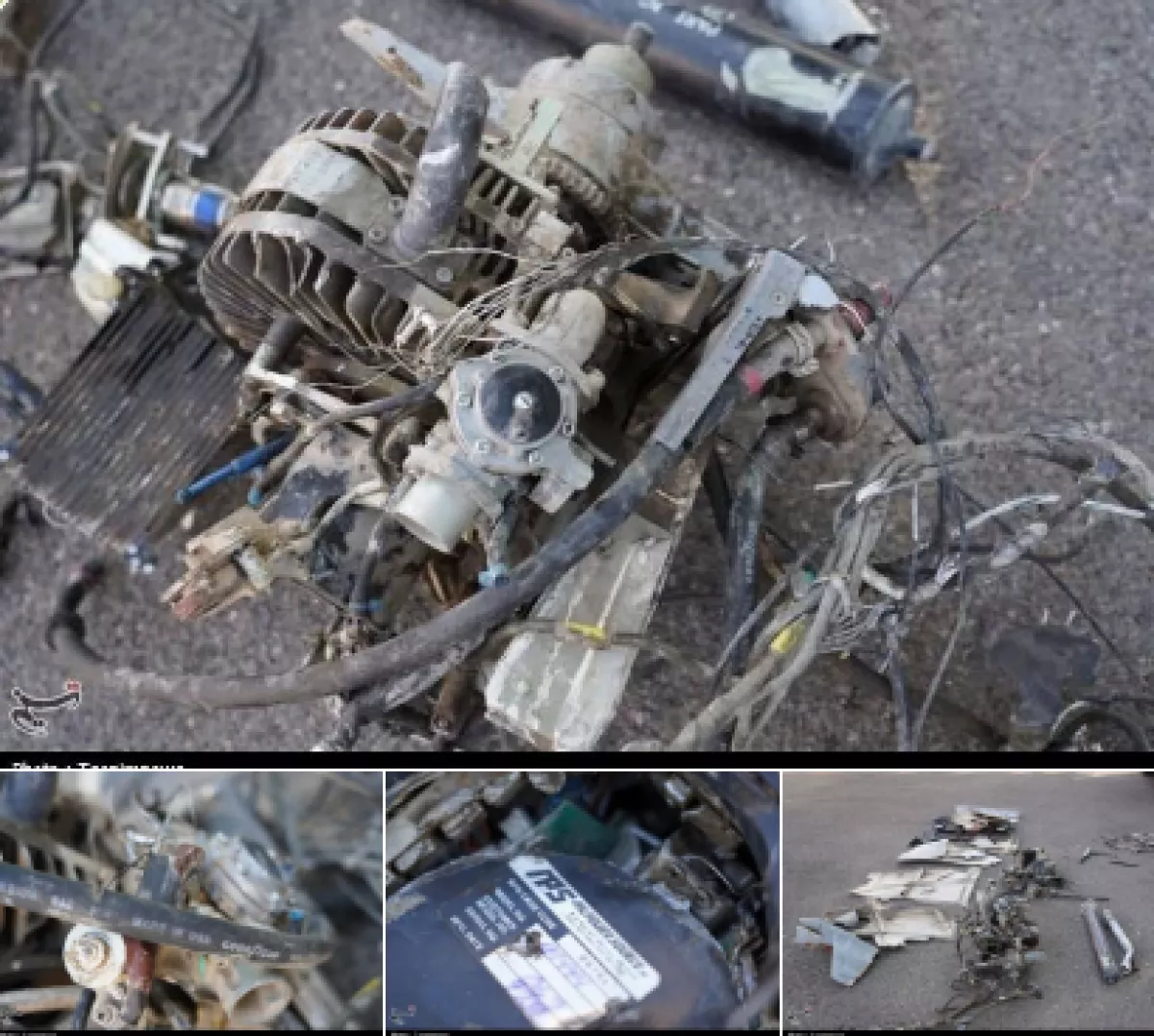
20:50
The head of the IRGC’s intelligence department, Mohammad Kazemi, and his deputy, Hassan Mohaghegh, were killed in a missile strike, reports Israel’s Channel 9.
According to the report, their bodies were found under the rubble of an IRGC headquarters. The elimination of the Iranian commanders was also confirmed by Israeli Prime Minister Benjamin Netanyahu during an appearance on Fox News.
20:49
Israeli Prime Minister Benjamin Netanyahu, in an interview with Fox News, stated that the decision to launch airstrikes on Iranian territory was made to prevent a “nuclear Holocaust.”
He claimed that Tel Aviv had reliable intelligence suggesting that Iran was only a few months away from developing its first nuclear warhead. “We had to act. It was the 12th hour. We acted to save ourselves but by doing so we're protecting many others,” Netanyahu told Bret Baier.
According to him, Israeli intelligence had shared information with the United States showing that Iran was secretly preparing to weaponise uranium and was rapidly moving toward building a test nuclear device — and within months could acquire a fully operational warhead.
“That is something that we couldn’t possibly accept,” he continued. “We will not have a second holocaust, a nuclear holocaust. We already had one, in the previous century – the Jewish state is not going to have the holocaust committed on the Jewish people. It’s not going to happen,” he emphasised. The prime minister also stated that, according to Israeli estimates, Iran had enough enriched uranium to produce nine nuclear warheads: “All they had to do was weaponize them. We stopped that.”
When asked whether regime change in Iran is among Israel’s objectives, Netanyahu replied: “It could certainly be the result, because the Iran regime is very weak.”
Netanyahu said “80% of the people would throw these theological thugs out.”
“They shoot women because their hair is uncovered. They shoot students. They just suck the oxygen out from these brave and gifted people, the Iranian people.”
“The decision to act, to rise up this time, is the decision of the Iranian people,” he added.
20:30
As a result of Israeli Defense Forces (IDF) strikes in Iran, at least 406 people have been killed and 654 injured.
According to the Associated Press, this was reported by the group Human Rights Activists in Iran.
“In Iran, Israeli strikes have killed at least 406 people and wounded another 654, according to Washington-based Human Rights Activists. Iran’s government has not offered overall casualty figures,” AP noted.
Earlier, the head of the Iranian Health Ministry’s Information Center, Hossein Kermanpour, stated that as of June 14, 128 people had been killed and hundreds wounded.
20:14
U.S. President Donald Trump, in an interview with ABC News, stated that the United States is not involved in the conflict between Israel and Iran but does not rule out possible intervention in the future.
“We’re not involved in it. It’s possible we could get involved. But we are not at this moment involved,” Trump told ABC’s Rachel Scott.
When asked about the timeline for resuming talks with Iran, Trump said there was no deadline, but dialogue was ongoing: “No, there's no deadline. But they are talking. They'd like to make a deal. They're talking. They continue to talk,” he stressed.
Meanwhile, as previously reported, a round of negotiations between the U.S. and Iran scheduled for June 15 in Oman was cancelled. However, Trump said the current escalation could, in fact, bring a deal closer: “May have forced a deal to go quicker, actually.” Trump also confirmed that Russian President Vladimir Putin had offered to mediate in resolving the conflict: “I would be open to it. [Putin] is ready. He called me about it. We had a long talk about it. We talked about this more than his situation. This is something I believe is going to get resolved,” the U.S. President said.
20:06
At a distance of around 2,300 kilometres, the Israeli Air Force struck an Iranian refuelling aircraft at an airbase in Mashhad, eastern Iran, IDF spokesperson Anna Ukolova announced, according to Mignews.
“The Air Force continues operating to achieve air superiority across Iranian territory. This is the farthest strike since the beginning of the operation,” she added.
19:41
Iranian President Masoud Pezeshkian stated that the United States plays a direct and undeniable role in Israel’s actions against Iran, according to Iran’s Fars news agency.
Pezeshkian reportedly cited U.S. Special Representative Steve Witkoff, who allegedly told Iranian Foreign Minister Abbas Araghchi: “Israel cannot do anything without our permission”—a remark the Iranian president said clearly indicates Washington’s approval of Israel’s actions. “What we are witnessing today is being carried out with direct support from the United States, even if they try to mask their involvement in the media,” Pezeshkian added.
He also stressed that Iran has never sought war, but if the attacks continue, the response will be “decisive and severe.”
Amid these statements, Israeli sources told CNN that the U.S. administration under President Donald Trump has raised no objections to the duration of Israel’s military campaign. A White House spokesperson confirmed that U.S. authorities were aware of Israel’s plans.
19:24
In Iran, at least 128 people—including women and children—have been killed, and about 900 injured since the beginning of Israel’s military operation, AFP reports, citing Iran’s Ministry of Health.
Earlier, Israeli forces targeted an electronics manufacturing plant in Shiraz, according to Al Jazeera. In addition, a facility linked to Iran’s Ministry of Defence in Isfahan was also struck.
19:00
New details are emerging about the daytime Israeli strike on Iran’s capital, Tehran.
According to CNN, densely built residential and commercial areas were hit, including three busy intersections: Tajrish Square, Quds Square, and Shariati Avenue, as well as Vali-e Asr Square — one of the city’s main transportation and commercial hubs. A strike near Quds Square, close to Tajrish, occurred just 50 metres from Shohada Hospital, a major medical facility in northern Tehran.
Videos shared on social media and geolocated by CNN show plumes of smoke rising over the densely populated area near Vali-e Asr Street.
Footage also shows smoke near the building of Iran’s Ministry of Justice. Previously, Israeli military officials had stated that the targets were military and nuclear facilities; however, no such sites are officially located in these neighbourhoods.
18:43
A total of 14 nuclear scientists have been killed in Israeli strikes on Iranian territory, reports Reuters.
Since Friday, at least 14 nuclear scientists have been killed as a result of Israeli attacks, including car bombings, two sources from Gulf countries told the agency.
Earlier, IRNA reported that “Israel activated five explosive devices in various parts of Tehran.”
18:15
The Israeli army has reported new missile launches from Iranian territory, recorded on June 15.
As a result, citizens across the country have been instructed to stay near shelters, according to an official statement by the Israel Defense Forces (IDF).
“Air defence systems have been activated to intercept threats. The Home Front Command has instructed citizens throughout Israel to remain close to protected areas. Outdoor movement should be minimised, and mass gatherings avoided,” the statement said.
CNN journalists reported that air raid sirens were heard in Tel Aviv, confirming the ongoing threat of renewed attacks.
18:18
The United States and several European countries provided Israel with intelligence on Iran before it carried out attacks on the Islamic Republic’s territory, said Iranian President Masoud Pezeshkian during a cabinet meeting.
“Instead of preventing these brutal attacks, we see that the US and several European countries offer Israel political support, as well as assistance with weapons and intelligence," Pezeshkian said, Caliber.Az reports, citing the Iranian president’s press service.
"The same planes, missiles, and weapons that Israel currently has at its disposal and is using against us were provided by these countries, and the intelligence that Israel has was obtained thanks to the radars and military systems of the US and several European countries,” said Pezeshkian.
He also stated that “one of the American officials,” in a conversation with Iranian Foreign Minister Abbas Araghchi, said that Israel “is incapable of any action without the permission of the US.” “This is exactly what we see today,” Pezeshkian added.
17:53
Iran launched a missile strike on Israeli territory, according to an Iranian state TV channel.
It is claimed that ballistic missiles targeted locations in Tel Aviv, Ashkelon, and Haifa.
17:41
Ballistic missile launches originating from Iranian territory have been detected, with probable targets across multiple regions including Jerusalem, Dan, Sharon, Lachish, Shfela, Yarkon, Shfelat Yehuda, Judea, Samaria, and the Jordan Valley, according to Israelinfo.
Alarm sirens have been sounded in dozens of towns and cities. Major population centers such as Jerusalem, Tel Aviv, and Haifa are reported to be under attack. The first wave of missile strikes has impacted central Israel, followed by a second wave targeting the northern areas.
Reports from Newsru.co.il confirm that Israel’s missile defence systems are actively engaged in intercepting the incoming rockets.
Explosions have been heard.
16:19
Explosions are heard in the centre of Tehran, and air defence systems are operating, Al Jazeera reports.
During the daytime, for the first time since the beginning of the conflict with Israel, sounds of air defence activity are being heard.
According to an Al Jazeera correspondent, at least two powerful explosions were recorded in Tehran.
The television company reports that the strike may have targeted Mehrabad Airport.
15:56
Over the past hour, the Israeli Air Force has intercepted about 20 unmanned aerial vehicles launched towards the country's territory, Caliber.Az reports, citing the Israel Defense Forces.
15:39
As part of Operation “Rising Lion,” the Israel Defense Forces (IDF) have struck more than 170 targets and over 720 military infrastructure facilities in less than three days, according to the IDF’s Telegram channel.
The IDF stated that the army continues to intensify its strike against the Iranian nuclear threat, “depriving it of critically important capabilities and components for weapon production.”
15:11
The Israeli Ministry of Health has released data on the admission of the wounded and deceased to hospitals across the country.
According to the Ministry of Health, over the past 24 hours (from the morning of June 14 to the morning of June 15), 12 deaths have been recorded, Caliber.Az reports, citing Israeli media.
During the past night, 385 people injured by rocket attacks from Iran were admitted to Israeli hospitals.
Some were brought by emergency services from the sites of rocket and shrapnel impacts, while others arrived on their own. Since the beginning of Israel’s military operation, a total of 15 civilian deaths have been recorded.
As of the morning of June 15, the wounded and affected patients in hospitals are reported to be in the following conditions: 7 people in serious condition, 40 in moderate condition, 298 in mild condition, and 14 people with psycho-emotional trauma.
14:23
On June 15, Israeli Prime Minister Benjamin Netanyahu's office said that at least 13 people have been killed since June 13 in Israel by Iranian strikes, as Tehran retaliates to Israel's ongoing attacks on Iranian nuclear facilities, military sites and leaders.
Two consecutive nights of Iranian attacks saw around 200 ballistic missiles fired into the country, the prime minister's office said, with 22 places in Israel hit either directly or by falling missile debris, Caliber.Az reports, citing foreign media.
At least 380 people have been injured, the prime minister's office said, nine seriously.
13:59
The Israel Defense Forces (IDF) have issued an official warning to Iranian civilians, urging them to evacuate areas surrounding military production facilities and related infrastructure.
The announcement follows overnight airstrikes carried out by the Israeli Air Force against targets inside Iran.
The warning was delivered in Persian via the X platform by Colonel Avichay Adraee, the IDF’s spokesperson for Arab media.
“All individuals located near military production sites and their supporting infrastructure must immediately leave these areas and not return until further notice,” Adraee wrote.
“Staying near these facilities puts your life in danger,” he added.
13:44
The press service of the Israel Defense Forces (IDF) has announced that the Israeli Air Force carried out strikes on several targets in Iran on the night of June 14 to 15, destroying ground-based missile launchers.
According to the Israeli side, the strikes targeted both active launchers from which rockets had previously been fired at Israel, as well as launch systems that were ready to be launched.
In addition, Iranian radar systems and air defence infrastructure were hit during the operation. As emphasised in the statement, this is being carried out as part of ensuring the IDF's air superiority in Iranian airspace.
13:17
The death toll in Israel from the overnight strikes by Iran has risen to 10 people, as rescuers continue search and rescue operations on site, CNN reports.
Six people were killed in the central coastal city of Bat Yam, where a building was directly hit, according to the Israeli rescue organisation ZAKA.
Another four were killed in the northern Palestinian-Israeli city of Tamra, where buildings were also struck.
08:07
The death toll from Iranian strikes on Israel overnight into Sunday, June 15, has risen to eight, CNN reports, citing authorities in each country.
This adds to the three people previously killed in Israel and at least 78 killed in Iran during the recent flare-up in hostilities.
04:08
A large fire broke out in the Tel Aviv suburb of Bat Yam following a new Iranian attack on Israel, the Quds news portal reports.
03:49
The Israeli Air Force launched a massive series of strikes on Tehran, according to a statement from the press service of the Israel Defense Forces (IDF).
"Some time ago, the Israeli Air Force completed a large-scale series of reconnaissance strikes on a number of targets in Tehran related to the Iranian regime’s nuclear weapons program."
The targets included the headquarters of Iran's Ministry of Defense and the Organization of Defensive Innovation and Research.
Additionally, fuel tanks in Tehran were also struck.
03:47
A third wave of ballistic missiles and drones has been launched from Iran toward Israeli territory, the Iranian news agency IRNA reported.
According to the Telegram channel SHOT, more than 70 aerial objects are in the sky. Jerusalem and Tel Aviv are within the strike zone.
03:26
Iran's air defence forces intercepted three cruise missiles and 10 combat drones during the latest Israeli attack.
"The IRGC's Aerospace Defense system successfully intercepted and destroyed 3 cruise missiles, 10 combat drones, and dozens of small flying objects in the combat zone," the Islamic Revolutionary Guard Corps (IRGC) said in a statement, Iranpress reports.
The IRGC did not provide information on damage caused by debris from the Israeli missiles.
03:15
The Israel Defense Forces (IDF) announced that its Air Force intercepted two unmanned aerial vehicles (UAVs) after air raid sirens sounded in the Arava Desert in southern Israel.
"After air raid sirens in the Arava area, the Israeli Air Force intercepted two UAVs launched toward Israeli territory," the statement said, TASS reports.
03:00
Iran attacked Israeli facilities producing jet fuel and power supply centres as part of an operation carried out on the night of June 15, the Islamic Revolutionary Guard Corps (IRGC) stated.
"As part of the continuation of the joint offensive operation 'True Promise – 3', and in response to today’s acts of aggression and crimes of the Zionist regime, facilities producing jet fuel and the enemy's power supply centers were attacked using a large number of drones and missiles," the statement read.
An IRGC representative also emphasised that the operations of the Iranian armed forces will become “more severe and large-scale” if Israeli attacks continue.
02:52
As a result of an Iranian strike on Haifa, three 20-story buildings were destroyed and at least three people were killed, as reported by the Al Arabiya TV channel.
02:44
Iran launched a second wave of ballistic missiles at Israel.
At the same time, a large number of Shahed drones covered the skies over the Middle East. The drones are flying through Iraq, Syria, and Jordan. Israel scrambled fighter jets to intercept them.
02:31
Several people are trapped under the rubble of destroyed buildings in the Israeli city of Tamra following an Iranian attack, the Telegram channel Shot reported, citing local media.
Four people are reported dead, and at least 13 local residents were injured. It is also known that at least three people died in Haifa.
02:28
The Israeli airstrikes targeted the headquarters of Iran’s defence ministry in Tehran.
As reported by the Iranian news agency Tasnim, one of the ministry’s administrative buildings sustained minor damage as a result of the attack.
02:01
The Iranian capital Tehran has once again come under attack by the Israel Defense Forces (IDF), Bellum Acta reports via its Telegram channel.
“Israeli airstrike reported at Aqdasiyeh, east of Tehran,” the message states.
It also notes that Israel struck the Nobonyad district within the capital.
01:48
Iran has used at least one hypersonic missile to strike the Israeli city of Haifa, according to the Iranian Mehr news agency.
Citing a source from Nournews, the report adds that Iran also employed medium-range ballistic missiles — Emad, Ghadr, and Kheibar Shekan — in the attacks on Israeli territory.
01:32
Israel has struck two oil storage facilities in Tehran, both of which caught fire following the attack, according to Iranian news agencies Fars and Tasnim.
The targeted facilities were located in the Kan and Shahran districts of the capital. Emergency services are currently on the scene responding to the aftermath. No information has been provided so far regarding casualties or injuries.
01:26
At least 14 people have been injured in Israel following a rocket attack launched from Iran, The Times of Israel reports.
According to emergency services, a hostile missile struck a two-storey residential building in the city of Tamra, east of Haifa. Thirteen people were wounded, and one woman sustained fatal injuries.
01:02
Israeli Prime Minister Benjamin Netanyahu has convened the Security Cabinet for an emergency session, the Prime Minister’s Office announced.
“The Prime Minister is currently holding a meeting of the Security Cabinet,” the statement reads.
01:01
Iran has resumed its attacks on Israel in response to what it described as aggression against its territory, Al Manar reports.
According to the outlet, dozens of rockets targeted the city of Haifa. Iranian state television (IRIB) added that drones were also involved in the strike.
00:48
Air raid sirens have been activated in several parts of Israel following rocket launches from Iran.
According to Reuters, the Israel Defense Forces (IDF) reported that “sirens sounded in several areas across Israel following the identification of missiles launched from Iran toward the State of Israel.”
00:26
Deputy head of the Aerospace Forces Intelligence of the Islamic Revolutionary Guard Corps (IRGC), Khosrow Hassani, has been killed in an Israeli strike, according to NourNews agency.
The Eitaa agency, via its Telegram channel, specified that Brigadier General Amir Ali Hajizadeh was also killed alongside Hassani.
June 15, 00:22
The Israel Defense Forces (IDF) have reported missile launches from Iran, urging residents to take shelter in safe zones.
The announcement was published on the army's official Telegram channel.
"A short while ago, the Israel Defense Forces detected missile launches from Iran towards the territory of the State of Israel," the statement reads.
The IDF press service emphasised that all air defence systems are currently working to intercept the threat. Residents have been urged to enter protected areas upon receiving alerts and remain there until further notice.
Exiting the protected zone will only be allowed upon receiving clear instructions, the IDF stressed.
June 14, 23:53
The Home Front Command of the Israel Defense Forces (IDF) has issued a new address to the public, instructing residents across the country to stay near protected shelters.
According to the statement posted on the official Telegram channel, Israelis are advised to minimise movement in public spaces and avoid attending mass gatherings.
"In the event of a warning signal, one must immediately enter a protected area and remain there until receiving an official notice," the statement says.
23:33
Iranian authorities have begun evacuating Mehrabad International Airport in Tehran, Bellum Acta reports on its Telegram channel.
"Iran has started evacuating Mehrabad International Airport in Tehran, signaling heightened concern over continued Israeli airstrikes," the message reads.
23:22
The Israel Defense Forces (IDF) do not intend to destroy Tehran, Israeli Foreign Minister Gideon Sa'ar said in an interview with BFMTV.
“We will target significant sites. The destruction of Tehran is not our goal,” he said.
Sa'ar assured that Israel has nothing against the people of the Islamic Republic, but is fighting against its government. He acknowledged that the Israeli leadership understood that an operation against Iran would mean a “difficult period” for the country’s civilian population, but said there was no other option.
22:51
Iran has shot down 10 Israeli drones in the past hour, the ISNA news agency reports.
“Over the past hour, 10 Israeli drones were downed in various parts of the country,” the report says.
22:47
Israel has attacked the Iranian port of Bandar Abbas.
Eyewitnesses reported the incident, according to the Open Source Intelligence Monitor on the social network X.
It is noted that the air defence system in the port area was activated. Attacks were also reported in the Iranian capital, Tehran.
22:44
Iran will launch “heavy and destructive” strikes against Israel in the coming hours, as the Israeli military continues to carry out attacks on the territory of the Islamic Republic, Iranian state television reports.
22:27
The Israeli Air Force has struck an underground facility in western Iran used for storing and launching tactical and cruise missiles, the Israel Defense Forces (IDF) reports.
According to the military, Israeli fighter jets, acting on intelligence data, targeted a site containing tunnels for missile storage and launch silos. The strike was part of a broader operation aimed at neutralising Iran's missile-related infrastructure.
21:18
Four critical buildings at a nuclear facility in the city of Isfahan were damaged in Israeli strikes on June 13, according to the International Atomic Energy Agency (IAEA).
Among the damaged structures is a uranium conversion plant. "As in Natanz, no increase in off-site radiation expected," the agency said in a statement posted on X.
21:10
A fire at Iran's South Pars gas field was extinguished several hours after the strike, according to the Shana news agency.
The agency confirmed the blaze was caused by an Israeli attack on the Fajr Jam gas processing plant and facilities at the field's 14th phase. No personnel were injured in the incident.
20:40
Earlier this morning, the Israeli Air Force eliminated a terrorist cell responsible for launching a rocket into Israel’s rear areas.
20:04
A fire has broken out at the Fajr Jam oil refinery in Iran’s Bushehr Province, where the South Pars gas field is located, the Tasnim news agency reports.
According to the report, the refinery processes gas from several fields. The exact cause of the incident has not yet been determined.
19:51
A column of smoke is rising in Bushehr, the site of a joint nuclear power plant construction project with Russia, according to the Iranian YJC agency.
Journalists published a photo captioned “Bushehr, a few minutes ago,” showing a group of people observing a plume of smoke rising in the distance.
The Bushehr Nuclear Power Plant is the largest joint Russian-Iranian infrastructure initiative.
19:45
The governor of Iran’s East Azerbaijan Province has reported that at least 30 servicemen and one Iranian Red Crescent staff member were killed as a result of Israeli strikes.
His statement was quoted by the ISNA news agency.
“As a result of the Zionist regime’s aggression against this province, which began Friday morning, 30 servicemen and 1 Red Crescent member were killed defending the homeland, and 55 people were injured,” the official said.
19:33
Iranian air defence systems have shot down three Israeli unmanned aerial vehicles over Ilam Province, located in the west of the country.
This was announced by the province’s deputy governor, Tajeddin Salehia.
“Today, three advanced drones belonging to the Zionist regime were destroyed in the skies over Ilam,” he was quoted as saying by the Mehr news agency.
19:03
Israeli Air Force jets will soon appear over Tehran and strike every facility and every target of the regime, Prime Minister Benjamin Netanyahu has declared.
According to Reuters, Netanyahu made the statement in a video address released by his office.
“We will hit every site and every target of the Ayatollahs' regime, and what they have felt so far is nothing compared with what they will be handed in the coming days,” Netanyahu said.
18:11
Iranian government spokesperson Fatemeh Mohajerani stated that strikes on Israeli territory will continue as long as the Iranian armed forces deem it necessary.
“As long as our armed forces consider it necessary, this response will continue, and the government fully supports the decisions of the armed forces. We support the Supreme Leader and his decisions,” she said, according to the government’s Telegram channel.
17:39
IDF: The Israeli Air Force attacked missile launchers ready to be launched in western Iran.
חיל האוויר תקף משגרי טילים מוכנים לשיגור לעבר העורף הישראלי במערב איראן
— צבא ההגנה לישראל (@idfonline) June 14, 2025
מטוסי קרב וכלי טיס של חיל האוויר תקפו עד כה באיראן עשרות טילים המכוונים לעורף הישראלי בטרם שוגרו.
כלי טיס של חיל האוויר שטסו בשמי איראן זיהו משגרי טילים ובסגירת מעגל מהירה, תקפו אותם וסיכלו שיגורים עתידיים… pic.twitter.com/SKcIV1vJ7R
17:02
Italian Foreign Minister and Deputy Prime Minister Antonio Tajani cited Israeli intelligence indicating that Iran was prepared to acquire 10 nuclear bombs within six months.
As reported by Rai, speaking at a joint session of the foreign affairs committees of both chambers of the Italian Parliament, Tajani said, "According to Israeli intelligence, Iran could have obtained 10 nuclear bombs in less than six months. Iran must not have nuclear weapons."
He described the situation as alarming, referencing the latest International Atomic Energy Agency (IAEA) report on Tehran’s violations of its uranium enrichment commitments.
Tajani expressed hope that the planned sixth round of negotiations between Iran and the U.S. on Tehran’s nuclear program, scheduled for June 15 in Muscat, would take place.
"The Italian government supports de-escalation. Now more than ever, dialogue must be maintained. Italy fully backs the U.S.-Iran negotiations on Tehran’s nuclear program," he added, noting that two previous rounds were held in Rome.
16:20
More than 70 fighter jets: The IDF says it has secured freedom of operation across Iranian airspace — from western Iran to Tehran — as part of its ongoing air campaign.
יותר מ-70 מטוסי קרב: צה״ל יצר חופש פעולה אווירי ממערב איראן ועד טהראן pic.twitter.com/m9IDp6HmHB
— צבא ההגנה לישראל (@idfonline) June 14, 2025
16:18
According to Iran’s NourNews agency, Iranian Army ground forces have reportedly captured an Israeli pilot. The pilot’s aircraft was allegedly shot down, and he was apprehended minutes later by army rangers.
15:00
The Israel Defense Forces (IDF) reported that over the past 24 hours, the Israeli Air Force and Navy successfully intercepted dozens of unmanned aerial vehicles (UAVs) launched from Iran.
״מטרה נפלה״: חיל האוויר וחיל הים יירטו עשרות כלי טיס בלתי מאויישים ששוגרו מאיראן ביממה האחרונה
— צבא ההגנה לישראל (@idfonline) June 14, 2025
תיעוד וקולות קשר מרגעי היירוט
ספינות הטילים של חיל הים, מערך ההגנה האווירית ומטוסי ומסוקי הקרב של חיל האוויר יירטו ביממה האחרונה עשרות כלי טיס בלתי מאויישים ששוגרו מאיראן לעבר מדינת… pic.twitter.com/hPzjuuh9xn
14:00
On June 13, Israeli fighter jets, under the direction of military intelligence, simultaneously struck dozens of targets across Iran as part of the initial massive salvo of the operation, according to the IDF’s official Telegram channel.
During the opening phase of Operation "Rising Lion", the Israeli Air Force eliminated nine senior scientists and experts involved in advancing Iran’s nuclear weapons programme. All the individuals held key positions and had decades of experience contributing to the development of nuclear weaponry.
Among those killed were top figures in Iran’s nuclear project:
-
Fereydoun Abbasi – Nuclear engineering specialist
-
Mohammad Mahdi Tehranshi – Physics expert
-
Akbar Motalebi Zadeh – Chemical engineering specialist
-
Saeed Barji – Materials engineering expert
-
Amir Hassan Fakhahi – Specialist in physics
-
Abd al-Hamid Minoushehr – Reactor physics expert
-
Mansour Asgari – Expert in physics
-
Ahmad Reza Zolfaghari Daryani – Specialist in nuclear engineering
-
Ali Bakhouei Katirimi – Mechanics expert
The IDF stated that these individuals played a central role in Iran’s progress toward nuclear weapons capability, and their elimination constitutes a significant blow to the country’s WMD ambitions.
צה״ל חיסל תשעה מדענים ומומחים בכירים בפרויקט הגרעין האיראני
— צבא ההגנה לישראל (@idfonline) June 14, 2025
לכל הפרטים:https://t.co/QwpSoW4q7u pic.twitter.com/SskmklVeZr
13:46
Israeli Defense Minister Israel Katz has warned Iran’s Supreme Leader Ali Khamenei that if Iran continues to shell Israel, “Tehran will burn,” reports The Times of Israel.
Katz said during a meeting with IDF Chief of Staff Lt. Gen. Eyal Zamir, Mossad Director David Barnea, and other senior military officials: “The Iranian dictator is turning the citizens of Iran into hostages and creating a reality in which they, especially the residents of Tehran, will pay a heavy price for the criminal attack on Israeli civilians.”
He added, “If Khamenei continues to fire missiles at the Israeli home front, Tehran will burn, Tehran will burn.”
13:34
A new wave of Israeli strikes targeted the city of Tabriz in northwestern Iran, reports The Jerusalem Post.
Iranian state media stated the strike hit the area near the Tabriz oil refinery, with smoke rising from the site.
Iranian media also reported that two people were killed in an Israeli attack on a missile facility in Asadabad, western Iran.
12:47
Iran has officially informed the United States, France, and the United Kingdom that it will launch more extensive strikes against Israel, Mehr news agency reports.
Tehran also warned that if these countries assist Israel, their assets in the Middle East would become targets for Iranian attacks.
12:43
The Israeli army is expanding its large-scale operation on Iranian territory, according to Israeli Prime Minister’s adviser Dmitri Gendelman.
“Strikes are being carried out on dozens of key targets, including ballistic missile launchers, military bases, and strategic infrastructure, based on precise intelligence,” he wrote on his Telegram channel.
12:37
A spokesperson for Iran’s Atomic Energy Organisation stated that limited damage was inflicted on certain sections of the uranium enrichment facility in Fordow.
According to ISNA, Behrouz Kamalvandi said: “Some sections of the Fordow enrichment facility sustained limited damage. We had already removed a significant portion of the equipment and materials, so there are no major losses and no concerns about contamination.”
12:18
A building collapsed in the city of Shahid Chamran in southwestern Iran following an Israeli strike, killing 60 residents, including 20 children, NourNews reported, citing Iranian state television.
🇮🇷🇮🇱 После удара Израиля обрушилось здание в городе Шахид Чамран на юго-западе Ирана, погибли 60 жителей, включая 20 детей, сообщает NourNews со ссылкой на иранское государственное ТВ. #Israel #Iran #war #IranIsrael #IsraelIran #IsraelIranConflict #israeliranwar #IsraelvsIran… pic.twitter.com/8SBykSapRj
— Caliber (@Caliberaz) June 14, 2025
11:17
The Israeli Air Force continues to strike dozens of ground-to-ground missile launchers in Iran, the IDF reported.
חיל האוויר ממשיך לתקוף עשרות משגרי טילי קרקע-קרקע באיראן pic.twitter.com/c4n0lLsz1L
— צבא ההגנה לישראל (@idfonline) June 14, 2025
10:44
Following sirens that sounded between 08:58 and 09:01 in the Upper Galilee region, two drones launched toward Israel were intercepted by the Israeli Air Force, the IDF reported.
Due to concerns over falling debris from the interception, missile alert sirens were also activated in the area.
10:40
An overnight Israeli airstrike targeted a hangar containing fighter jets at Tehran’s Mehrabad Airport, NourNews reports.
According to the outlet, thick plumes of smoke were seen rising near the airport, which was reportedly hit by two munitions.
10:31
Speaking on state television, Brigadier General Ahmad Vahidi, a senior commander of Iran’s Islamic Revolutionary Guard Corps (IRGC), announced that multiple Israeli targets were struck during the Operation True Promise III, Tasnim news agency reported.
According to General Vahidi, the Iranian strikes targeted Nevatim and Ovda airbases, which house command-and-control centres and electronic warfare facilities.
Other sites hit by the IRGC included Tel Nof Airbase near Tel Aviv, the Israeli Ministry of Defence, and related military and industrial installations in the capital.
The operation planners considered more than 150 targets in total, which were struck in multiple phases, Vahidi said.
The general warned that Israel “made a grave miscalculation to attack Iran” and cautioned that “the Zionists” must now be prepared for the consequences.
The report states that during Operation True Promise III, hundreds of missiles were launched by Iran, successfully penetrating Israel’s layered air defence system.
10:24
The United States quietly supplied Israel with around 300 Hellfire guided missiles just days before Israel's large-scale attack on Iranian targets, Middle East Eye reports.
According to the outlet, the weapons transfer took place on June 10, and two U.S. officials stated that this suggests the Trump administration was aware in advance of the planned operation.
Although Hellfire missiles are not designed to destroy nuclear facilities, Israel may have used them for precision strikes against senior Iranian military figures, scientists, and command centres. More than 100 Israeli aircraft were involved in the operation, the article notes.
10:19
Several vehicles belonging to Mossad agents, reportedly transporting kamikaze drones, have been seized in Iran, NourNews reports.
The Iranian security services are urging the public to report any suspicious activity or vehicles, according to the agency.
10:03
The Israel Defense Forces (IDF) announced that the Israeli Air Force carried out overnight strikes on dozens of surface-to-air missile infrastructure sites in Tehran, as part of an effort to weaken Iran’s air defence capabilities in the capital.
According to Air Force Commander Major General Tomer Bar: “Following a tense day in which we struck hundreds of targets, we launched a wave of precision strikes of operational and national significance over Tehran’s skies — enhancing our air superiority and freedom of action in Iran.
For the first time since the war began, dozens of Israeli Air Force fighter jets flew over the skies of Tehran — more than 1,500 kilometres from the State of Israel — and struck defensive installations in the Iranian capital.”
מטוסי חיל האוויר טסו הלילה והשלימו גל תקיפות בשמי טהרן; מפקד חיל האוויר, אלוף תומר בר: ״התקיפות מעל שמי טהרן בעלות משמעות מבצעית ולאומית. בחרנו לפעול אל מול איום קיומי על בטחון אזרחינו, במקצועיות, נחישות ודיוק״
— צבא ההגנה לישראל (@idfonline) June 14, 2025
עשרות מטוסי קרב של חיל האוויר תקפו במהלך הלילה בטהרן עשרות מטרות בהן… pic.twitter.com/VTgjX3WvFZ
09:40
The Israel Defense Forces (IDF) reported that after air raid sirens sounded between 08:11 and 08:12 in the Judea and Dead Sea regions, several drones launched toward Israel were intercepted by the Israeli Air Force.
09:37
The IDF addressed the Israeli public: “A short while ago, sirens sounded in several areas across Israel following the identification of UAVs launched from Iran toward the State of Israel.
The public is asked to follow the instructions of the Home Front Command. At this time, the IAF is operating to intercept and strike wherever necessary to eliminate the threat.”
09:31
At least four people have been killed and another 70 injured as a result of Iran's retaliatory missile strikes on Israel, The Jerusalem Post reported, citing emergency medical services.
09:26
Iran believes that negotiations between Washington and Tehran on resolving the crisis over its nuclear programme have become meaningless following the Israeli attack, according to Esmail Baghaei, spokesperson for the Islamic Republic’s Foreign Ministry, as reported by Reuters.
“The other side (the U.S.) acted in a way that makes dialogue meaningless. You cannot claim to negotiate and at the same time divide work by allowing the Zionist regime (Israel) to target Iran's territory,” he said.
09:23
The number of casualties from Iran’s missile strikes on Israel remains relatively low, despite extensive material damage, according to the commander of the Tel Aviv military district.
“Thanks to civilians following evacuation instructions, the number of injured remains relatively small, and all injuries are minor considering the scale of the destruction,” the Israeli army quoted the commander as saying via its official Telegram channel, without naming him.
08:24
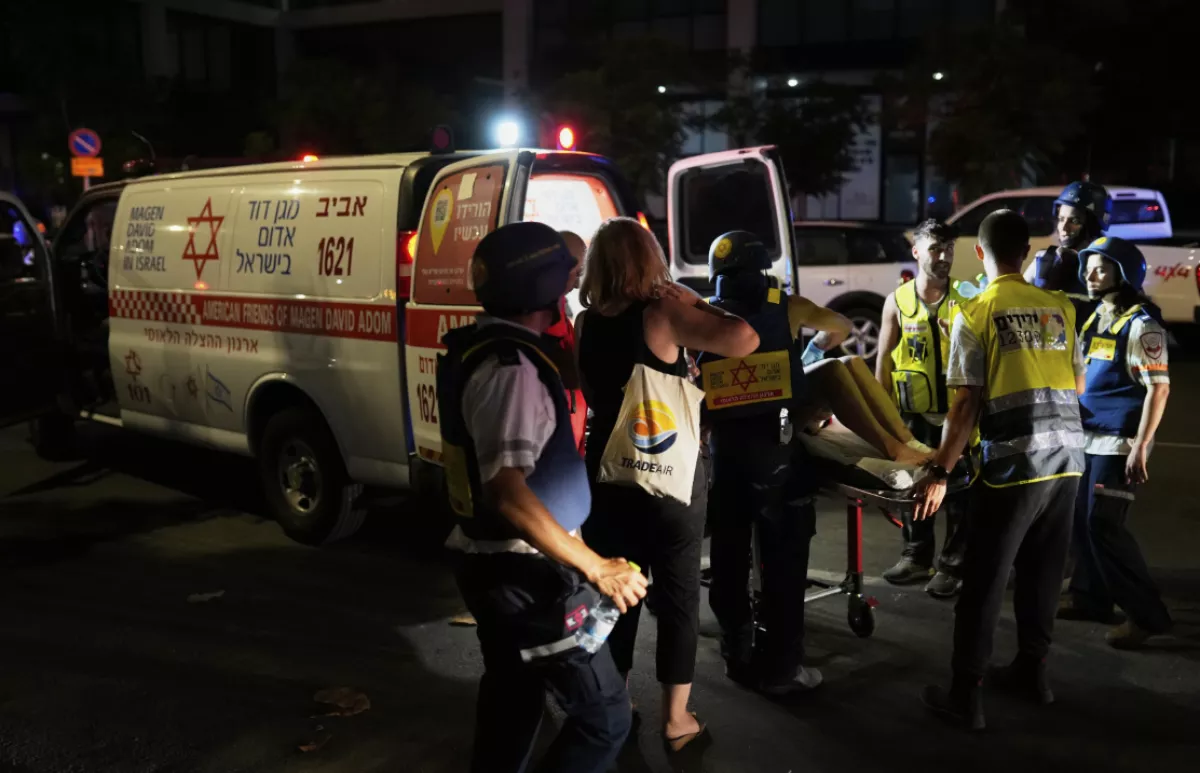
Two people were killed and at least 70 injured as a result of four waves of Iranian missile strikes on Israel, The Jerusalem Post reported, citing emergency medical services. According to the report, one person was killed and 19 others wounded after a missile directly hit residential buildings in central Israel on the morning of June 14.
Earlier, it was reported that a woman injured during the first wave of Iranian missile attacks on the evening of June 13 died from her wounds at a hospital in a suburb of Tel Aviv, where she had been admitted in critical condition after the strike.
08:19
The press service of the Israel Defense Forces (IDF) stated that Israeli Air Force operations against targets in Iran are ongoing. The IDF emphasised that the aim of these operations is to eliminate threats emanating from the Islamic Republic of Iran.
חיל האוויר ממשיך לתקוף מטרות להסרת איום במרחב איראן pic.twitter.com/NF0Q4efquQ
— צבא ההגנה לישראל (@idfonline) June 14, 2025
08:15
Iran will intensify its attacks on Israel and is prepared to strike military bases of any country that attempts to defend it, CNN reported, citing a senior Iranian official.
“Any country that attempts to defend the regime against Iran’s operations will, in turn, see its regional bases and positions become new targets,” the official told the outlet.
08:14
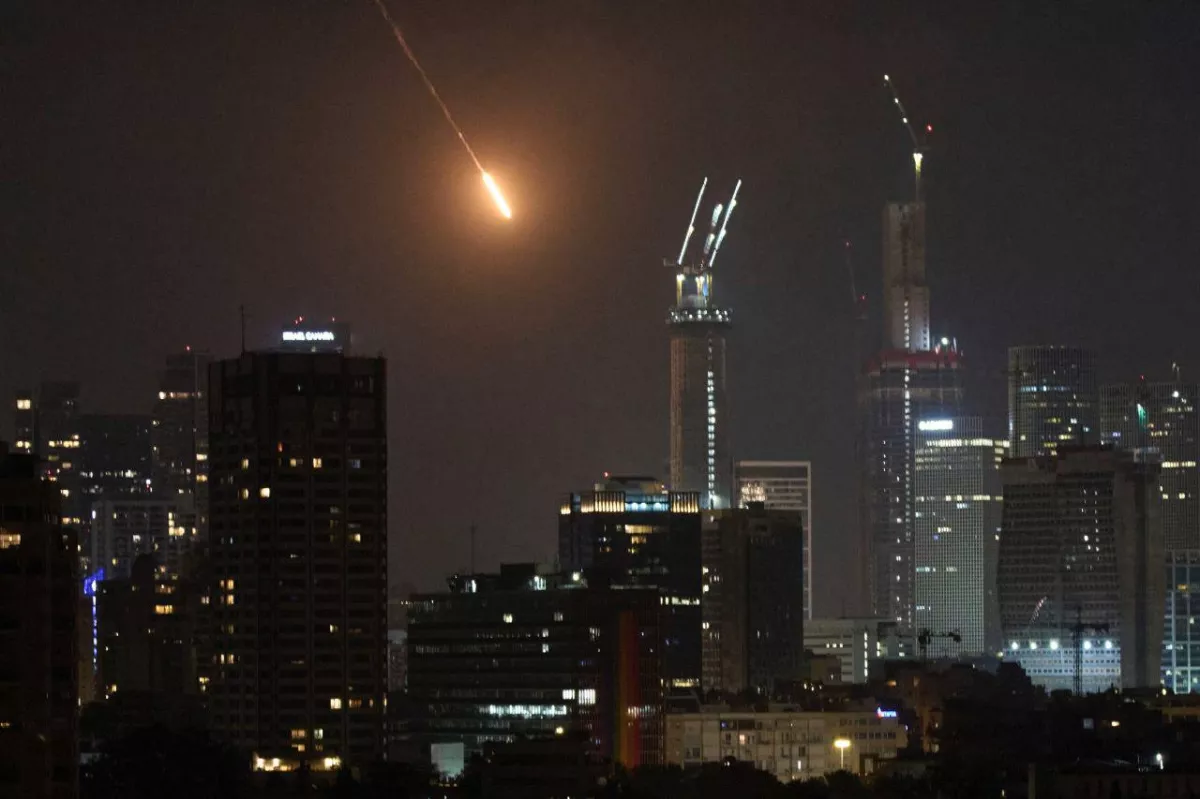
In the early hours of June 24, Iran launched a new wave of missile strikes on Israel. According to the Israel Defense Forces (IDF), dozens of ballistic missiles were fired toward the country. Some were intercepted by air defence systems. Air raid sirens were again heard in several parts of Israel, particularly in the north.
"Sirens were activated in several areas of Israel following the detection of missiles launched from Iranian territory," read an official IDF statement. The military emphasised that air defence forces were engaged and that "measures are being taken to strike where necessary to eliminate the threat."
Earlier, it was reported that a woman was killed in the Israeli city of Ramat Gan after being struck by debris from one of the missiles. Another seven people with injuries were taken to Tel Aviv's Ichilov Hospital.
On the Iranian side, the Islamic Revolutionary Guard Corps (IRGC) stated that the strikes targeted Israeli military centres and airbases, which Tehran claims were “sources of aggression” against Iran. It was also reported that Iran's air defence system in Tehran had been placed on high alert.
Iran’s envoy to the United Nations, Amir Saeid Iravani, said that at least 78 people, including senior military officers, were killed in Israeli strikes on Iranian territory, and more than 320 others were injured.
04:06
CNN journalist Dana Bash reported live on air that Israel has eliminated all Iranian representatives involved in negotiations with the United States.
According to Bash, she learned this directly during a personal phone conversation with U.S. President Donald Trump.
Bash clarified that Trump told her the individuals he had been negotiating with were eliminated, and that the cause was “neither the flu nor COVID,” but rather an Israeli attack.
The White House also expressed hope that Iran would return to the negotiating table and resume discussions instead of taking further steps toward escalation.
03:51
Iran’s airspace will remain closed until 14:30 Baku time (14:00 local) on June 14 due to retaliatory strikes on Israel.
As reported by Mehr News Agency, this was announced by Mehdi Ramezani, a representative of the Islamic Republic’s Civil Aviation Organization’s public relations department.
"Due to the ongoing conflict between our armed forces and the usurping Zionist regime (referring to Israel – ed.) and the criminal America, the country’s airspace will be closed until 14:00 Saturday, June 14," he told the agency.
"We urge our fellow citizens to refrain from going to the country’s airports until further notice," Ramezani added.
03:15
Iran has launched dozens of missiles at Israel over the past hour, according to the Israel Defense Forces (IDF) Telegram channel.
“Over the past hour, dozens of missiles were launched from Iran toward the State of Israel. Some of the missiles were intercepted. Currently, search and rescue teams are operating in several locations across the country where reports of missile impact have been received,” the IDF said in a statement.
02:42
Iran has begun a new wave of strikes on Israel, according to Iran’s Fars News Agency.
The IDF confirmed that it had detected a fresh missile barrage from Iran, and civilians were ordered to take shelter.
“Air defence systems are currently operating wherever necessary to eliminate the threat,” the IDF press service stated.
02:25
At least 63 people have been injured in Israel as a result of Iranian missile strikes.
As reported by Israeli news outlet Ynet, one of the injured is in critical condition and another is in serious condition.
01:27
Tehran has activated its air defence system, according to reports from Iranian news agencies Tasnim and Fars.
The alerts were triggered following information about new strikes targeting sites within Iranian territory.
01:06
At a UN Security Council meeting, International Atomic Energy Agency (IAEA) Director General Rafael Grossi reported that Israel's strikes on Iran’s Natanz nuclear facility resulted in the complete destruction of the above-ground pilot uranium enrichment plant.
According to Grossi, the targeted section had been producing uranium enriched to 60%.
The attack also disabled the facility’s power supply and backup generators, likely damaging the centrifuges used in the enrichment process.
Grossi noted that radiation and chemical contamination had been detected inside the facility, but added that the situation was under control and could be contained through appropriate measures. Radiation levels outside the complex, he said, remained within normal limits.
He also stated that Iran had informed the agency of additional attacks on its nuclear sites in Fordow and Isfahan.
01:02
The Islamic Revolutionary Guard Corps (IRGC) of Iran has officially confirmed carrying out missile strikes on Israeli territory, stating that the targets were military centers and airbases involved in attacks on Iranian soil.
“Using a combination of precision and ‘smart’ systems, the Islamic Republic of Iran struck military sites and airbases that were the source of criminal aggression against our country,” the statement said. The IRGC claimed that Israeli military-industrial facilities, including missile production plants and other arms factories, were hit.
According to Iranian side, “field reports, satellite images, and intercepted intelligence confirm that dozens of ballistic missiles struck strategic targets.”
“The operation was conducted decisively and offensively, with full coordination among all branches and types of Iran’s Armed Forces. Its key message is that the security of the Islamic Republic of Iran is a red line for our military,” the statement emphasized.
00:51
The Israel Defense Forces (IDF) have released a video showing the interception of an Iranian drone carried out earlier today. According to the IDF, the drone was shot down by an Israeli Air Force combat helicopter.
Details of the incident, including the exact location and time, were not disclosed in the statement.
00:30
Initial battle damage assessments indicate that the Israeli strikes on Iran’s Natanz nuclear facility were extremely effective and went far beyond superficial damage to exterior structures, knocking out the electricity on the lower levels where the centrifuges used to enrich uranium are stored, two US officials told CNN.
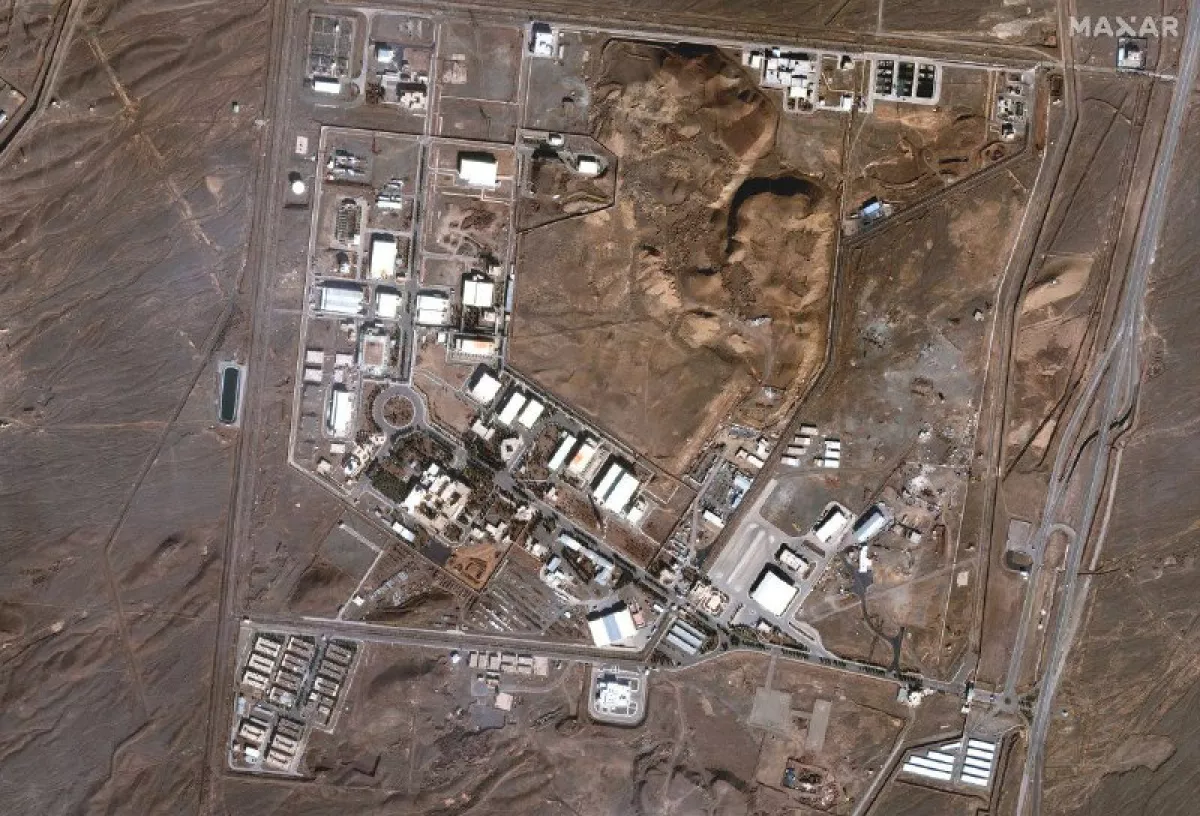
“This was a full-spectrum blitz,” said another source familiar with early damage assessments, who said that the Israeli attack on the facility also appears to have included cyber elements.
It’s not clear if cyber elements or the kinetic strikes caused the electricity outage.
Natanz, the facility at the heart of Iran’s nuclear ambitions, was engulfed in flames on Friday, according to social media images geolocated by CNN and Iranian state television coverage.
The nuclear complex, about 250 kilometers (150 miles) south of the capital Tehran, is considered Iran’s largest uranium enrichment facility. Analysts say the site is used to develop and assemble centrifuges for uranium enrichment, a key technology that turns uranium into nuclear fuel.
00:20
Iran’s Atomic Energy Organization has reported limited damage following Israeli strikes on the Fordow nuclear facility, located south of Tehran, as well as on warehouses in the Isfahan region.
“The damage at Fordow was confined to specific areas, with no impact on urban infrastructure,” said agency spokesperson Behrouz Kamalvandi.
“In Isfahan, the strikes hit several locations, including warehouses where fires broke out. There is no risk of radioactive contamination,” he added.
Meanwhile, the International Atomic Energy Agency (IAEA) confirmed it had received reports of alleged strikes on Natanz, home to one of Iran’s largest uranium enrichment facilities. The agency has formally requested clarification from Iranian authorities regarding the extent of the damage.
June 14, 00:06
The Israeli Cabinet is currently holding an emergency meeting to discuss potential responses to the massive missile strike launched by Iran on the evening of June 13.
An Israeli official told CNN that Israel is expected to escalate its retaliatory actions in the next wave of attacks targeting Iranian territory. The situation continues to unfold amid an unprecedented exchange of strikes between the two countries.
June 13, 23:52
According to Israel’s emergency medical service Magen David Adom (Red Shield of David), 22 people were injured as a result of a massive ballistic missile strike launched by Iran on Israeli territory.
Updated information indicates that two individuals are in serious condition, two others sustained moderate injuries, and the remaining victims suffered minor wounds. Medical teams continue to provide assistance to the injured and are operating in the areas where the rockets landed.
23:49
On the evening of June 13, a senior Iranian official told CNN that Israel is “facing a dark night ahead.”
According to the source, Iranian armed forces intercepted and shot down several Israeli aircraft, as well as neutralised a significant number of missiles and drones launched at Iran. However, CNN notes that it cannot independently verify these claims and is awaiting a statement from the Israel Defense Forces.
“The Iranian Armed Forces’ operations against the Zionist regime’s positions will continue, and this regime is facing a dark night ahead,” the official said.
Israeli Prime Minister Benjamin Netanyahu delivered a nationally televised address outlining the rationale and strategic objectives behind the current military operation targeting Iran.
Framing the offensive as the culmination of long-term planning, Netanyahu said the operation is grounded in intelligence assessments and an urgent response to escalating threats from Tehran.
“This did not start now,” Netanyahu stated, revealing that he had directed the Israeli military as early as November 2024 to prepare a detailed plan to dismantle Iran’s nuclear program. The order, he noted, was signed shortly after the targeted killing of Hezbollah leader Hassan Nasrallah.
Two existential threats: Nuclear arms and ballistic missiles
Netanyahu warned that Iran’s activities pose dual existential threats to Israel: a rapidly advancing nuclear program and an expansive ballistic missile arsenal.
Following what Netanyahu described as the “collapse of the axis of resistance” led by Iran, Tehran had “dramatically accelerated” its nuclear efforts, not just through uranium enrichment, but also in the actual development of deployable nuclear weapons.
Simultaneously, the Iranian regime had ramped up production of ballistic missiles, reportedly manufacturing up to 300 per month, totalling as many as 20,000 over six years, each capable of delivering a ton of explosives.
“If Iran has nuclear weapons, we simply won’t exist. We won’t survive,” he said.
Addressing concerns over the cost and risks of the operation, Netanyahu acknowledged that elements within the Israeli security establishment had expressed hesitation. However, he said these concerns were resolved during the operational planning phase, crediting the effectiveness of Israel’s intelligence services, the Mossad, the Air Force, and the IDF.
“Yes, we will have to pay for everything,” he said. “But we are doing everything we can to minimise the cost—citizens of Israel, you are also part of this effort.”
Coordination with the US and global leaders
Netanyahu confirmed that Israel had alerted Washington ahead of the strikes, though he admitted that full backing from the United States was not immediately forthcoming.
“We had to act, even without full American support. Because the alternative is the end of Israel,” he declared.
He emphasised ongoing coordination with key international partners, citing direct communication with US officials, Indian Prime Minister Narendra Modi, German Chancellor Friedrich Merz, French President Emmanuel Macron, and British Labour leader Keir Starmer.
According to Netanyahu, Israel’s goal is not merely to defend against missile launches but to dismantle Iran’s capability to manufacture them altogether.
“The facilities are above ground. We will strike as many of them as possible,” he said, adding that the campaign aims to cripple the infrastructure enabling Iran’s military expansion.
First strikes: High-value targets hit
Netanyahu confirmed that the initial Israeli strikes were “very successful,” stating that parts of Iran’s General Staff, senior scientists involved in the nuclear program, and critical infrastructure at the Natanz uranium enrichment site had been destroyed.
“We hit them by surprise,” Netanyahu said. “I told President Trump: ‘Surprise is the key to success.’”
“Be prepared for retaliation”
The prime minister cautioned that Israel should brace for Iranian retaliation, which he said could come in several heavy waves. He urged the public to remain vigilant and adhere to all official instructions.
“You are part of the overall defence. Only together can we achieve a historic breakthrough,” he stated.
Shifting the regional balance
In closing, Netanyahu asserted that Israel’s actions could reshape the broader strategic landscape of the Middle East.
“We have brought Hezbollah to its knees, dealt heavy blows to Hamas, and now struck Iran itself. This is a different level. It could change the course of history,” he said.
Netanyahu ended his address by promising that he would soon speak directly to the Iranian people.
23:34
In response to Iran’s claims that it had shot down Israeli fighter jets, IDF spokesman Lt. Col. Avichay Adraee dismissed the reports, stating that “Iranian media is fabricating information.”
The Israel Defence Forces further stressed that “the reports circulating in Iranian media are entirely unfounded and have no basis in fact.”
23:29
The Israel Defence Forces (IDF) has issued an updated assessment following a series of large-scale missile strikes launched from Iran, stating that approximately 150 ballistic missiles were fired at Israeli territory in two successive barrages.
According to military officials, nine separate impact sites have been identified across the country. The strikes, which represent one of the most significant direct attacks from Iran to date, triggered widespread air raid alerts and drew an immediate response from air defence units.
Emergency services report that around 15 individuals sustained injuries during the attacks. Most of those wounded are in stable condition, and medical teams remain on alert nationwide as air defense systems continue operating to intercept any further threats.
In a statement issued by the IDF Logistics Command, civilians have been informed that it is now safe to exit bomb shelters. However, the military is urging residents to remain near shelter locations and stay alert as the security situation remains fluid. Emergency protocols remain in effect across multiple regions, with defense forces and first responders fully mobilized.
The IDF and Israeli leadership continue to monitor developments closely amid fears of further escalation following Iran’s unprecedented missile offensive.
23:26
Israeli Defence Minister Israel Katz declared that Iran had “crossed a red line” by striking areas populated by civilians. “We will continue to defend the citizens of Israel and ensure that the Ayatollah regime pays a very high price for its monstrous actions,” Katz said in a strongly worded statement.
According to Iranian state media, the Islamic Revolutionary Guard Corps (IRGC) launched hundreds of ballistic missiles toward Israeli targets in response to earlier Israeli air strikes on Iranian soil that reportedly killed several senior military commanders and scientists.
The Israeli Defence Forces (IDF) confirmed that Iran had launched a second salvo of missiles on the late evening of June 13. The IDF press service reported that dozens of projectiles had been fired in the renewed assault, adding to an already intense barrage.
Meanwhile, Axios, citing an Israeli official, reported that the United States is actively assisting Israel in intercepting Iranian missiles. While no specific operational details have been released, the cooperation reportedly centers on air defense and efforts to repel the ongoing attacks.
Amid the heightened hostilities, Iran’s Supreme Leader Ayatollah Ali Khamenei delivered a televised address to the nation, vowing that Israel would face severe consequences for its actions. Referring to the Israeli strike on Iranian territory that resulted in fatalities among military and scientific personnel, Khamenei said Iran’s armed forces were acting “with complete determination” and would plunge “the Zionist regime into confusion and despair.”
“This regime will not go unpunished for the crime it has committed,” Khamenei stated. “The people of Iran can be certain: we will not show the slightest weakness.”
He described Israel’s earlier strike as a “huge mistake” and promised harsh retribution. “We will not forgive the blood shed by our martyrs, and we will not ignore the violation of our airspace. The response will be harsh. They started the war—and they will not be able to get out of it unscathed,” the Iranian leader warned.
Khamenei emphasized that the Iranian armed forces are fully prepared for decisive action and that the entire state apparatus and population stands united behind them. “All political and public circles in the country are aligned in the belief that the Zionist regime’s aggression must be met with force—and that is exactly what we will do,” he declared.
23:17
At least seven people were injured in an Iranian missile strike targeting the area near Tel Aviv and the nearby city of Ramat Gan, according to Eli Bin, head of Israel’s national ambulance service.
All of the wounded sustained injuries ranging from minor to moderate. Emergency medical teams continue to operate at the scene, which has been secured and cordoned off by emergency services.
The strike forms part of a broader wave of Iranian attacks launched in retaliation for Israeli air raids earlier in the day. As the situation escalates, both sides are releasing conflicting accounts of the scope and impact of military operations.
In a separate development, Iran's state-affiliated Tasnim News Agency reported that Iranian air defense forces successfully shot down two Israeli F-35 fighter jets. The Islamic Republic's military claimed in a statement that its air defense units "successfully engaged and hit two fighter jets belonging to the Zionist regime, along with a significant number of smaller reconnaissance drones."
According to the report, the pilot of one of the downed aircraft—a woman—was captured and is currently in Iranian custody. The military said further details on the incident will be released shortly.
As of now, there has been no official response from Israeli authorities regarding the reported loss of fighter jets or the alleged capture of a pilot.
23:12
The situation in Israel remained tense on June 13 night following a large-scale Iranian missile assault that triggered air raid sirens and caused panic across multiple cities, including Jerusalem.
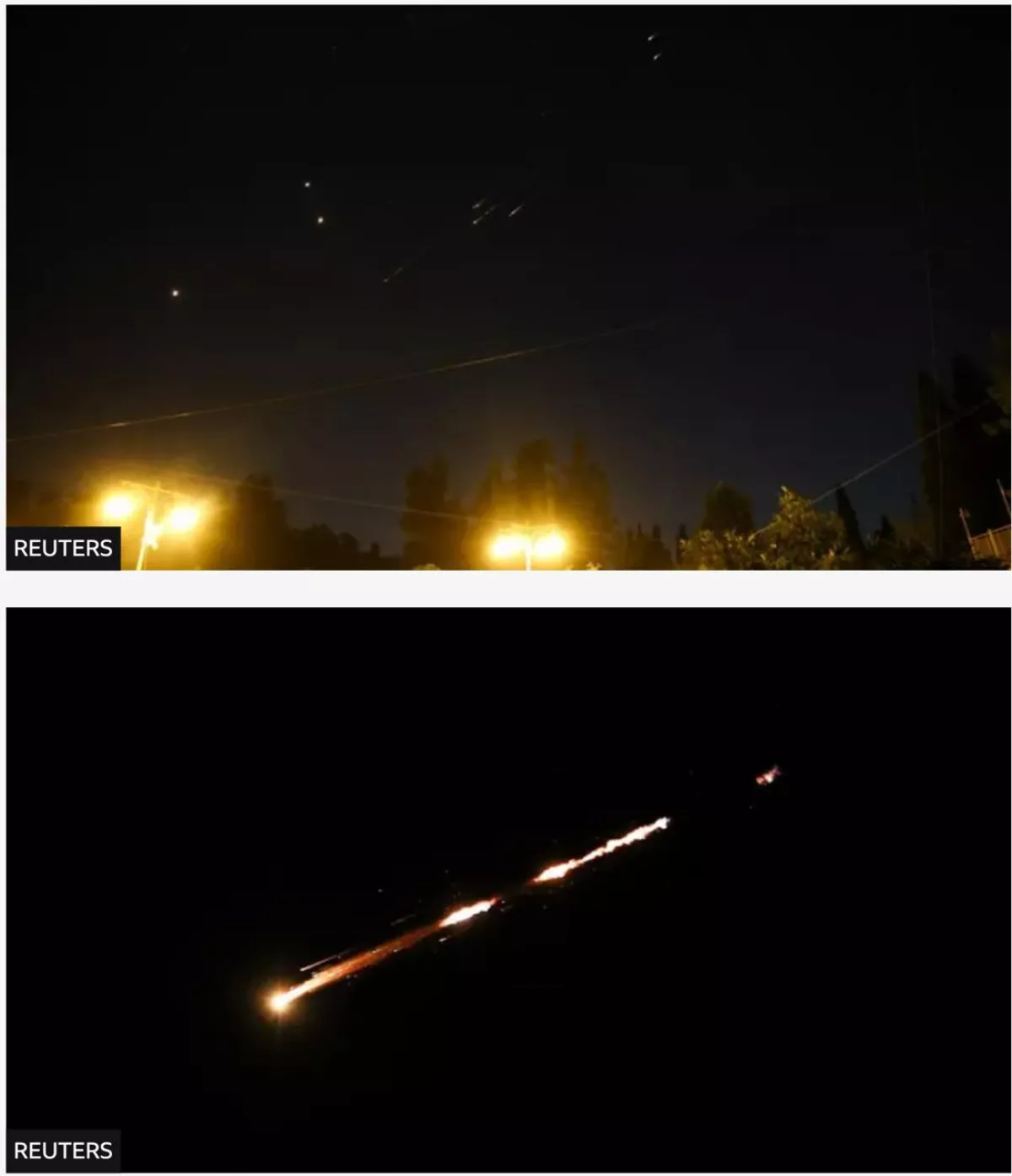
Reuters released footage capturing bright flashes of light in the sky above the city, while reporters on the ground confirmed hearing powerful explosions in several districts.
As the attacks continued, the Israel Defence Forces (IDF) accused Tehran of deliberately targeting Israeli civilians.
"The citizens of Israel are currently under direct attack by the Iranian regime. The world must not remain silent," read an official statement released by the IDF press service.
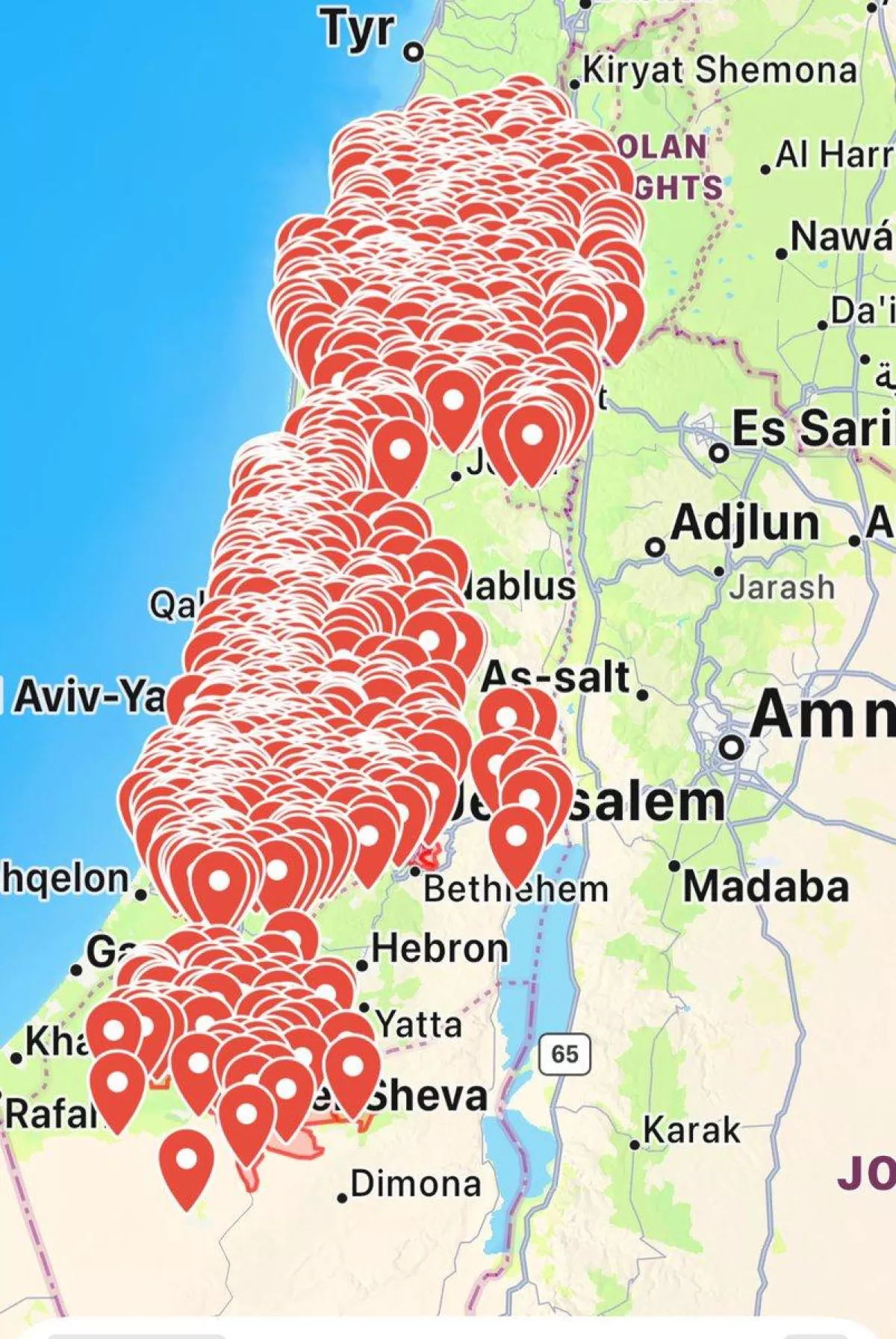
The Islamic Revolutionary Guard Corps (IRGC) officially announced it had launched a military operation dubbed “True Promise - 3” (Va'de-ye Sadeq 3) in direct response to Israeli air strikes earlier in the day on Iranian territory.
According to the IRGC's press office, the operation is taking place overnight during the Ghadir-e Khumm religious holiday, and involves coordinated strikes on multiple Israeli air bases and military facilities.
"In response to the aggression of the Zionist regime, which led to the deaths of our commanders, scientists, and civilians—especially children—the IRGC, backed by the people and under the guidance of the Supreme Leader, has launched a devastating operation against enemy military targets," the statement declared.
Iran's Supreme Leader Ayatollah Ali Khamenei also addressed the situation, declaring that the Islamic Republic is now inflicting "heavy blows" on Israel in retaliation.
"After the Zionist regime started the war, Iran is delivering powerful blows against it," Khamenei was quoted as saying by Iranian media.
As of late Friday, explosions continued to be reported in Jerusalem, with sirens ongoing and residents ordered to remain in shelters. The full extent of the damage is still being assessed, and the regional situation remains highly volatile.
23:06
Missiles launched by Iran struck the building housing Israel’s Ministry of National Security, marking a significant escalation in tensions between the two countries, according to reports from Iran's state-run news agency IRNA.
The Islamic Revolutionary Guard Corps (IRGC) claimed responsibility for the attack, stating that dozens of Israeli military facilities, including bases and airfields, had been targeted. The IRGC described the barrage as a direct response to recent extensive Israeli Air Force strikes on Iranian territory.
Israeli media has provided varying accounts of the scale of the attack. According to Channel 12’s military correspondent Nir Dvori, between five and seven missile impact sites have been identified across the country, citing information from mignews.
Emergency medical services have responded to multiple scenes. Magen David Adom (MADA) reported that one individual suffered a light head injury, likely from shrapnel, during a rocket strike in the central region. In total, MADA has confirmed that seven individuals sustained injuries ranging from minor to moderate. Ambulances and first responders remain active in the affected areas.
Iranian media described the assault as involving the launch of "hundreds" of ballistic missiles aimed at Israel. However, Israeli defense sources have estimated the number to be significantly lower—described as merely “dozens.” Officials explained that the discrepancy may be due to a number of Iranian missiles failing to reach Israeli airspace and crashing before impact.
Despite the Iron Dome missile defense system intercepting many of the incoming projectiles, several Iranian missiles reportedly managed to bypass Israeli defenses and strike populated areas. In Tel Aviv, video footage showed smoke rising between tall buildings, indicating direct hits within the urban center.
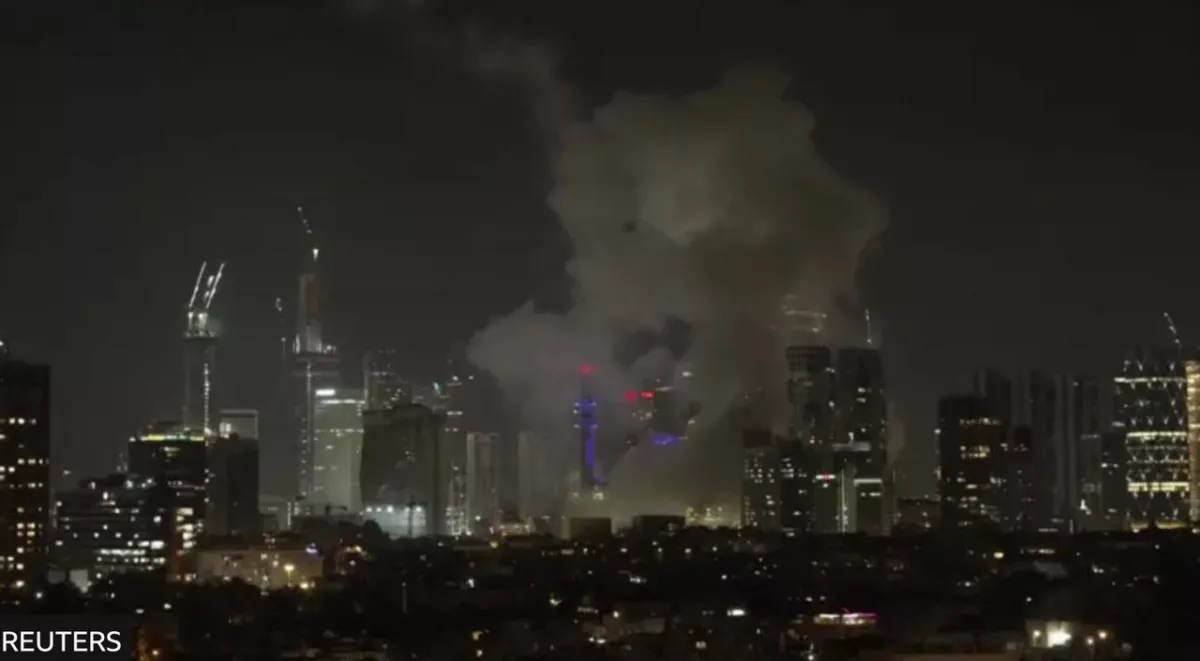
Correspondents for CNN reported hearing loud explosions in both Tel Aviv and Jerusalem, noting visible traces of intercepted missiles in the sky as Israel’s air defense systems continued efforts to repel the onslaught.
22:29
The Iranian Armed Forces have launched a military operation against Israel in response to the strikes on the territory of the Islamic Republic, Iranian broadcaster Al Alam reports.
According to the IRNA news agency, as part of its retaliatory actions, Iran has fired hundreds of ballistic missiles toward Israel.
Reuters reports explosions over Tel Aviv, while AFP states that the sound of blasts has also been heard in Jerusalem.
22:20
The Israeli Air Force has struck a nuclear facility in the Iranian city of Isfahan, the IDF's military press office announced.
As a result of the strike, facilities used for uranium production and enrichment, laboratories, and other infrastructure at the site were destroyed.
22:15
Iran has launched missiles toward Israel, according to a statement from the Israel Defense Forces (IDF).
“A short while ago, sirens sounded in several areas across Israel following the identification of missiles from Iran toward the State of Israel,” the statement said.
The military added that air defence systems are preparing to intercept the missiles, and civilians have been urged to take shelter.
Iranian news agency Fars reported that the launches were carried out from Fars Province in the south of the country.
21:48
A powerful explosion was heard in the city of Isfahan, located in central Iran, Mehr news agency reports.
“A few minutes ago, a powerful explosion was heard in Isfahan,” the agency said in a brief statement. No further details about the incident have been provided so far.
Isfahan is one of the largest cities in Iran and is situated in a province that hosts several facilities related to the country’s nuclear programme.
21:45
In light of threats of retaliatory strikes from Iran, the Israeli military has instructed all residents in the country to stay close to protected shelters for the time being.
This directive was sent as a push notification to all mobile phones in Israel, bypassing all blocks and accompanied by an alert signal, the IDF notes.
21:24
Israel carried out airstrikes on the city of Fardis, located in Iran’s Alborz Province in the north of the country, Press TV reports.
“The Israeli airstrikes targeted positions in the city of Fardis in Alborz Province,” the broadcaster stated.
21:01
At least 18 people have been killed in East Azerbaijan Province in northwestern Iran as a result of strikes by the Israeli Armed Forces, the Iranian agency IRNA reports.
According to the agency, another 35 people have been injured. It is noted that Israeli forces targeted several sites in the province, including at least seven in the vicinity of the city of Tabriz.
20:34
The Israeli Air Force continues to strike missile launchers and drone launch infrastructure in Iran, the IDF reports.
The Israeli Armed Forces carried out another missile strike on the city of Qom in central Iran, where one of the country’s key nuclear facilities — the Fordow uranium enrichment centre — is located, the Tasnim news agency reports.
According to the agency, despite two missile strikes on the defensive facility in Qom, the Fordow site has so far not been damaged.
20:27
Air defence across all of Iran was activated on the evening of June 13 following new airstrikes on Tehran, according to Iranian state television.
According to Press TV, missiles were intercepted south of Tehran, while Iranian television reported new strikes on the western districts of the capital.
Also, according to IRIB, strikes were carried out on the city of Karaj, located near Tehran.
18:40
Global air traffic was disrupted following Israeli strikes on Iran on June 13, as several major airlines suspended flights to and from locations in the Middle East and rerouted their aircraft, CNN reports, citing the flight tracking website Flightradar24.
The airspace over Iran and Israel, as well as over Jordan, Syria, and Iraq, was largely cleared of commercial flights on June 13.
Tehran’s Mehrabad Airport, Tel Aviv’s Ben Gurion Airport, and Queen Alia International Airport in Amman were all closed on June 13. Mehrabad Airport will remain closed until 2:00 PM on June 14, according to the state news agency IRNA.
18:14
Iran intends to respond decisively and proportionally to Israel’s actions, according to a letter from Iranian Foreign Minister Abbas Araghchi addressed to UN Secretary-General António Guterres and the UN Security Council, as reported by ISNA.
“The Israeli regime and its patron, namely the United States, must bear full responsibility for these flagrant violations of international law and their grave consequences,” the letter reads. “Iran reserves its right to self-defence under Article 51 of the UN Charter and will respond decisively and proportionally to these unlawful and cowardly acts.”
18:06
At least eight people were killed and 12 others injured in the Israeli strike on the northwestern city of Tabriz and its surrounding areas, according to Iran’s ISNA news agency.
"At least eight people were killed as a result of the attacks by the Zionist regime," said Majid Farshi, Governor of East Azerbaijan Province.
17:49
The IDF shared the first footage of intercepting drones launched from Iranian territory.
תיעודים ראשונים: חיל האוויר וחיל הים מיירטים כלי טיס בלתי מאוישים ששוגרו מאיראן pic.twitter.com/sJ9S7QQsQc
— צבא ההגנה לישראל (@idfonline) June 13, 2025
17:44
The Islamic Revolutionary Guard Corps (IRGC) has officially confirmed that Major General Amir-Ali Hajizadeh, commander of the IRGC Aerospace Forces, was killed in an Israeli airstrike on a command centre on June 13, along with several officers who served alongside him, according to CNN.
“The commander of the IRGC Aerospace Forces, Major General Amir-Ali Hajizadeh, along with a group of brave and devoted fighters of this unit, was martyred as a result of the Zionist regime’s attack on the command centre,” the organisation’s statement said.
17:35
Israeli Prime Minister Benjamin Netanyahu held talks with leaders of the United States and Russia, Al Jazeera reports, citing Israeli Prime Minister Netanyahu’s office.
“The leaders showed understanding toward Israel’s need to defend itself against the Iranian annihilation threat,” the statement from Netanyahu’s office said.
17:20
The Israeli military operation against Iran, its military leadership, and missile arsenal is expected to last at least two weeks, The Wall Street Journal (WSJ) reports, citing a senior Israeli official.
According to the official, the campaign is planned for 14 days and is proceeding according to schedule. The source added that the strategy largely mirrors Israel’s actions against the Lebanese Hezbollah movement.
17:03
The Israel Defense Forces (IDF) have announced the completion of a series of airstrikes targeting the missile infrastructure of the Islamic Republic of Iran, Caliber.Az reports, citing the IDF's official social media accounts.
צה״ל השלים סדרת תקיפות נגד מערך טילי הקרקע-קרקע של המשטר האיראני
— צבא ההגנה לישראל (@idfonline) June 13, 2025
בשעות האחרונות, מטוסי קרב של חיל האוויר, בהכוונה מודיעינית מדויקת של אגף המודיעין, השלימו סדרת תקיפות נגד מערך טילי הקרקע-קרקע של המשטר האיראני.
במסגרת התקיפות הושמדו עשרות משגרים, אתרי אחסון טילי קרקע-קרקע ואתרים… pic.twitter.com/VffmTjpqSf
According to an IDF spokesperson, the operation was carried out with precise intelligence support from the relevant units.
As a result of the strikes, dozens of launchers, stockpiles of surface-to-surface missiles, and other military facilities were destroyed. Notably, at one site in western Iran, the IDF claims to have identified a special launch mechanism installed inside containers.
The IDF representative noted that during the conflict, Iran had launched hundreds of surface-to-surface missiles at Israel. He stated that eliminating this threat remains a top priority to ensure the safety of Israeli citizens.
He also pointed out that Iran possesses missiles with a range of several thousand kilometres, and that their presence in Iran's arsenal poses a threat not only to the region but to the entire world.
16:45
The city of Tabriz has been attacked by Israel once again.
This was reported by NourNews, which published footage showing a fire at one of the sites in the city.
Earlier, Iranian media reported that Israel struck the Tabriz oil refinery at night and targeted the airport area during the day.
16:37
At least 78 people were killed and another 329 injured in Israeli attacks in Tehran Province, the Fars news agency reported on the social media platform X.
These figures are based on preliminary estimates, and official authorities have not yet confirmed them.
آمار غیررسمی شهدای حمله تروریستی امروز رژیم صهیونیستی در استان تهران، ۳۲۹ نفر مجروح و ۷۸ نفر شهید تخمین زده شده است.
— خبرگزاری فارس (@FarsNews_Agency) June 13, 2025
15:10
Israel’s attack on one of Iran’s key nuclear enrichment facilities resulted in surface-level damage, Behrouz Kamalvandi, the spokesperson for the Atomic Energy Organisation of the Islamic Republic, has said, Caliber.Az reports.
He noted that while a precise damage assessment has not yet been made, most of the destruction appears to be on the surface, whereas the main uranium enrichment capabilities in Natanz are located underground.
14:20
The IDF stated that the Air Force continues the operation to intercept unmanned aerial vehicles launched from Iran towards Israel.
🇮🇱🇮🇷 ЦАХАЛ заявил, что ВВС продолжают операцию по перехвату беспилотных летательных аппаратов, запущенных из Ирана в направлении Израиля.#Israel #Iran #war #IranIsrael #IsraelIran #IsraelIranConflict #israeliranwar #IsraelvsIran #IranvsIsrael #Urgent #Exclusive #Breaking #Live… pic.twitter.com/FUnTrVZaQA
— Caliber (@Caliberaz) June 13, 2025
13:53
The Israeli Air Force struck the Shekari air defence headquarters in Tabriz, in northwestern Iran's East Azerbaijan province.
Several explosions were heard near Tabriz airport, and black smoke is rising above the site, Caliber.Az reports, citing Mehr.
13:33
The Ministry of Interior of Iran has issued an official statement urging the population to remain calm. It is emphasised that all emergency response services, including ambulance, police, the emergency situations ministry, Hilal Ahmar (Red Crescent), and other agencies, are in a state of full readiness.
▪️According to the Iranian Red Crescent Society, 134 teams (669 rescuers) are involved in the aftermath response across more than 60 settlements. Rapid response teams, canine units, and search and rescue squads are operating. Debris clearance and evacuation of the injured are underway.
▪️The Ministry of Health of Iran reported full mobilisation of medical personnel. Emergency and hospital services began providing assistance from the first minutes after the attacks.
▪️According to the Ministry of Energy, water and electricity infrastructure has not been damaged.
13:28
A powerful explosion occurred in Tabriz.
This was reported on the social network X by the Mehr agency.
More attacks reported in Tabriz pic.twitter.com/5se2i0dPBM
— Mehr News Agency (@MehrnewsCom) June 13, 2025
13:17
The IDF announced that it had attacked the largest uranium enrichment facility in Iran, located in Natanz.
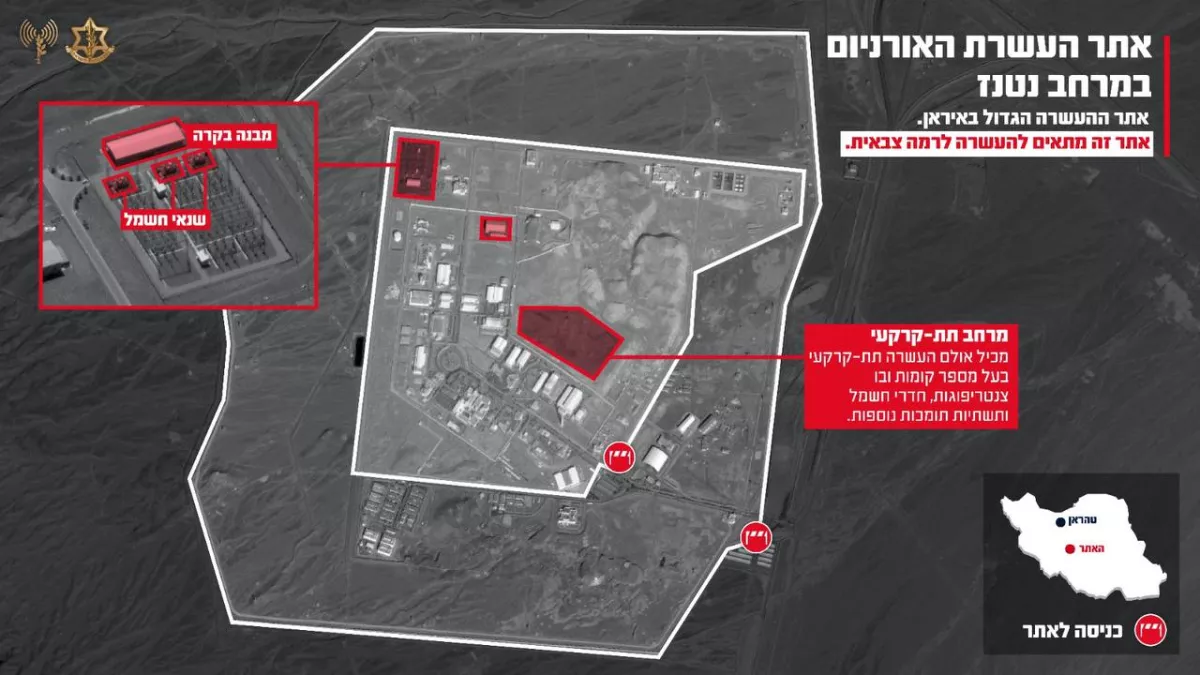
"Last night, Air Force fighter jets attacked the largest uranium enrichment site in Iran at Natanz, which for years has been working on obtaining nuclear weapons and contains the infrastructure necessary for military-grade enrichment. The strikes damaged the underground area of the site, including a multi-level, ten-story hall with centrifuges, electrical rooms, and additional auxiliary infrastructure. Furthermore, vital infrastructure ensuring the facility’s continuous operation and the further advancement of Tehran’s nuclear weapons program was also targeted," the statement said.
12:34
The Israeli Air Force destroyed ballistic missiles that were targeted at the territory of the State of Israel, according to a statement from a spokesperson for the Israel Defense Forces (IDF).
חיל האוויר השמיד טילים בליסטיים שכוונו למדינת ישראל pic.twitter.com/eGqiEBkJcp
— צבא ההגנה לישראל (@idfonline) June 13, 2025
12:27
According to Israeli media reports, all Iranian drones launched toward Israel following the attacks on Iran were successfully intercepted.
12:03
Israeli military officials believe that Iran’s Natanz nuclear facility sustained significant damage as a result of airstrikes carried out today, The Times of Israel reports.
Footage previously circulated online shows that the facility was hit by powerful strikes.
11:30
The Israel Defence Forces (IDF) announced that its Air Force recently carried out a large-scale strike targeting the Iranian regime’s air defence system in western Iran. Guided by precise intelligence from the IDF Intelligence Directorate, fighter jets destroyed dozens of radars and surface-to-air missile launchers during the operation.
According to the Israeli side, in recent hours, Air Force fighter jets, acting on precise intelligence, carried out a series of strikes on air defence targets in western Iran. As a result of the attacks, dozens of radar stations and surface-to-air missile launchers were destroyed.
The IDF emphasised that throughout the current campaign, Israel has been systematically disabling components of Iran’s air defence system both within the Islamic Republic itself and among its allies in the region.
According to the Israeli military, these actions are aimed at ensuring the Air Force's freedom of operation in the region's airspace.
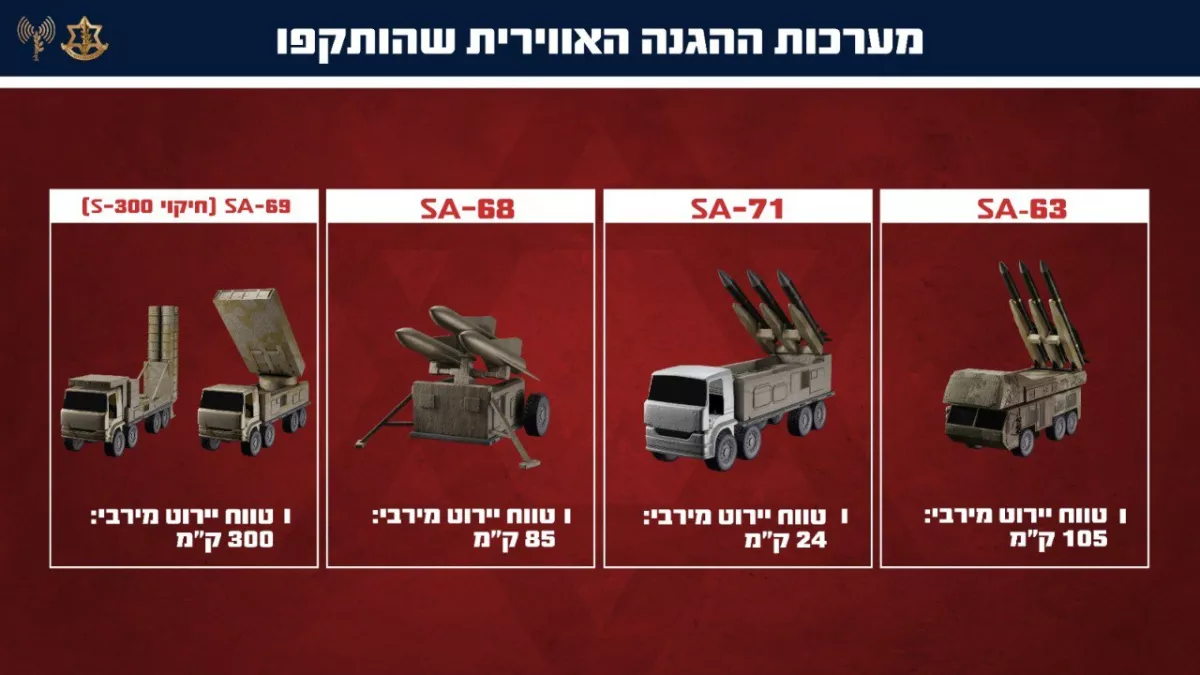
11:14
Jordanian state media have reported that the country’s Air Force is intercepting missiles and drones in its airspace, AP reports.
According to the agency, which quoted an unnamed senior military official, the interceptions are being carried out based on military assessments indicating that missiles and drones could fall within Jordanian territory — including populated areas — posing a potential threat to civilian safety.
The official added that the Jordanian Air Force is operating “around the clock to defend the country’s borders by land, sea, and air and will not allow any violation of Jordanian airspace under any circumstances.”
10:39
Israeli Air Force fighter jets have begun intercepting drones launched from Iran earlier today, Caliber.Az reports, citing the Israeli newspaper The Times of Israel.
According to a military official, the drones are being intercepted outside Israel’s borders.
Those that are not intercepted earlier are expected to reach Israeli airspace within an hour or so.
09:43
The IDF has released footage showing Israeli Air Force aircraft being prepared for combat sorties against Iran.
Israel’s military says 200 fighter jets have been used in its ongoing strikes on Iran, according to CNN.
“More than 100 targets have been struck across Iran,” IDF spokesperson Effie Defrin said during a live briefing, adding that “over 330 various munitions” have already been dropped.
Defrin said Israel’s strikes were “part of a precise and synchronized operation” and that its pilots were “still striking military targets and targets from the nuclear program across different areas in Iran.”
09:34
The government of the Islamic Republic of Iran issued a statement in response to the Israeli strikes on Tehran and other cities in the country, which, according to Iranian sources, killed military commanders and scientists.
In the official statement published by the IRNA news agency, Iranian authorities emphasised that the "night aggression of the Zionist regime against the Homeland" demonstrated Israel’s disregard for all international norms and its readiness to "officially and openly commit terrorist acts and ignite war."
"Starting a war with Iran is playing with fire and an act of daring against a lion. Such night operations, especially at a time when diplomatic negotiations on the nuclear issue were underway, reflect this regime’s fear of Iran’s strength and its inability to contain Iran through diplomatic means," the statement said.
Tehran stresses that Israel’s actions in Iranian airspace and the elimination of Iranian commanders "once again prove the terrorist nature of the Zionist regime." Iranian authorities assured that from this moment they are taking all necessary defensive, political, and legal steps to, as stated in the text, "make Israel regret what it has done and deprive the Zionists of sleep."
“The response will be decisive, unified, and uncompromising,” the Iranian government declared. “We have the legitimate right to respond, and we will exercise it. There are no disagreements in Iran today: the entire nation, the state, and the authorities stand united in the face of the aggressor.”
“Revenge for each of our martyrs is inevitable. We call on the UN Security Council to protect what remains of the international order. But even if that does not happen, as the Supreme Leader said, ‘the mighty hand of the Iranian Armed Forces will not let this regime go. Retribution is near—closer than the Zionists’ carotid artery.’”
Iranian authorities assured that the situation is under control and that a response will follow very soon.
“We did not start this. But Iran will write the final chapter of this story,” the statement concluded.
09:22
In the past few hours, Iran has launched more than 100 drones towards Israel.
According to The Times of Israel, this was reported by an official representative of the Israel Defence Forces, Brigadier General Effi Deferin.
He stated that the IDF is taking measures to intercept them.
Deferin clarified that the launches originated from Iranian territory, and it will take several hours for the drones to reach Israeli airspace.
09:17
Iran’s former national security chief Ali Shamkhani, has been killed as a result of Israeli strikes on Iran, CNN reports, citing Iranian state media.
"The assassination of Ali Shamkhani was also confirmed," said the Iranian state news network IRINN.
Shamkhani was a key advisor to Iran’s Supreme Leader Ayatollah Khamenei and served as Secretary of the country’s National Security Council for nearly ten years.
09:05
Iran’s Supreme Leader Ayatollah Khamenei has appointed General Ahmad Vahidi as the new commander of the Islamic Revolutionary Guard Corps (IRGC), replacing the late General Hossein Salami.
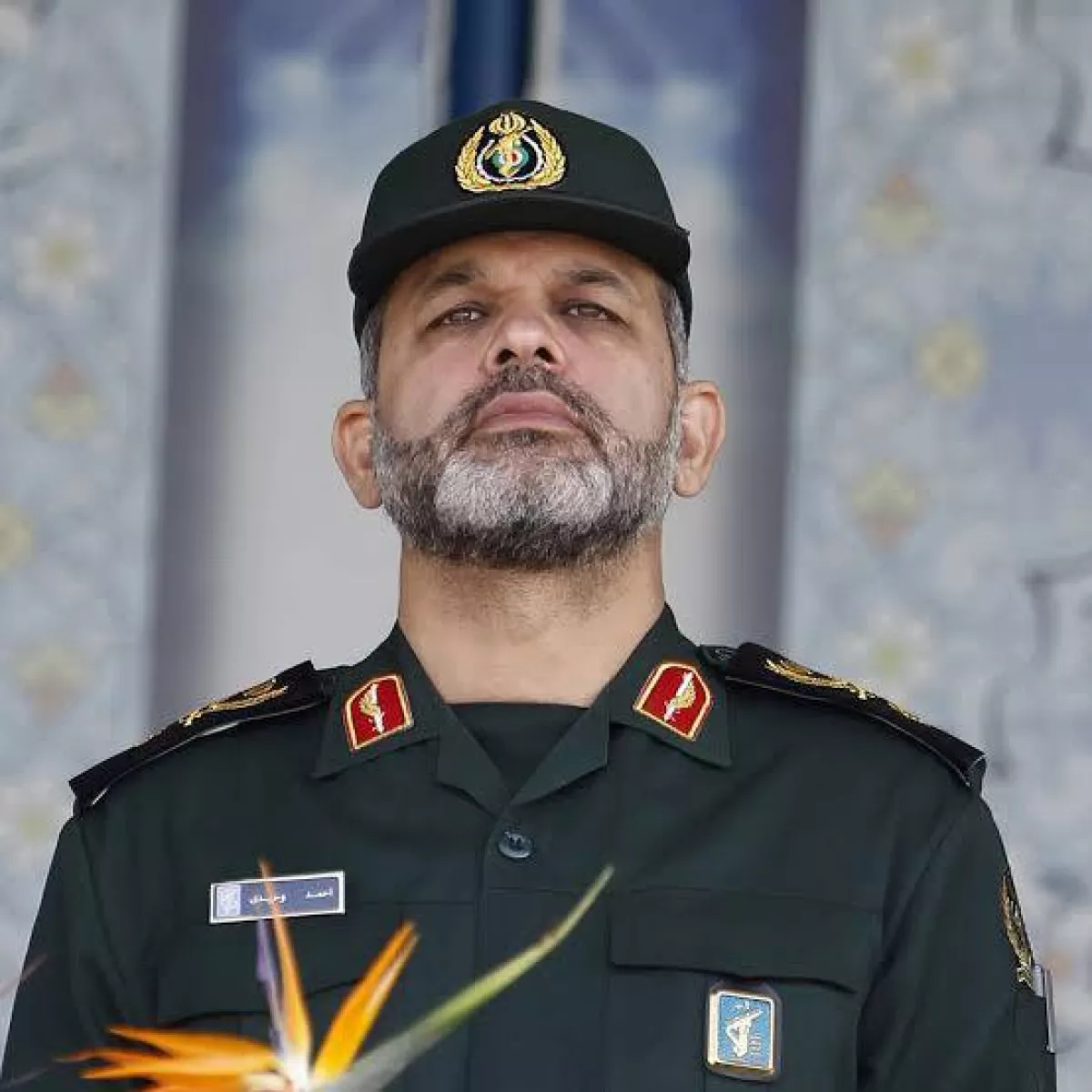
New IRGC commander, General Vahidi.
This was reported by the Iranian news agency Nournews.
Habibollah Sayyari has been named acting Chief of Staff of the Iranian Armed Forces. He will replace Mohammad Bagheri, who was killed in the Israeli strikes.
08:57
Major General Mohammad Bagheri, Chief of Staff of the Iranian Armed Forces, has died as a result of Israeli strikes on Iran, according to the MEHR news agency.
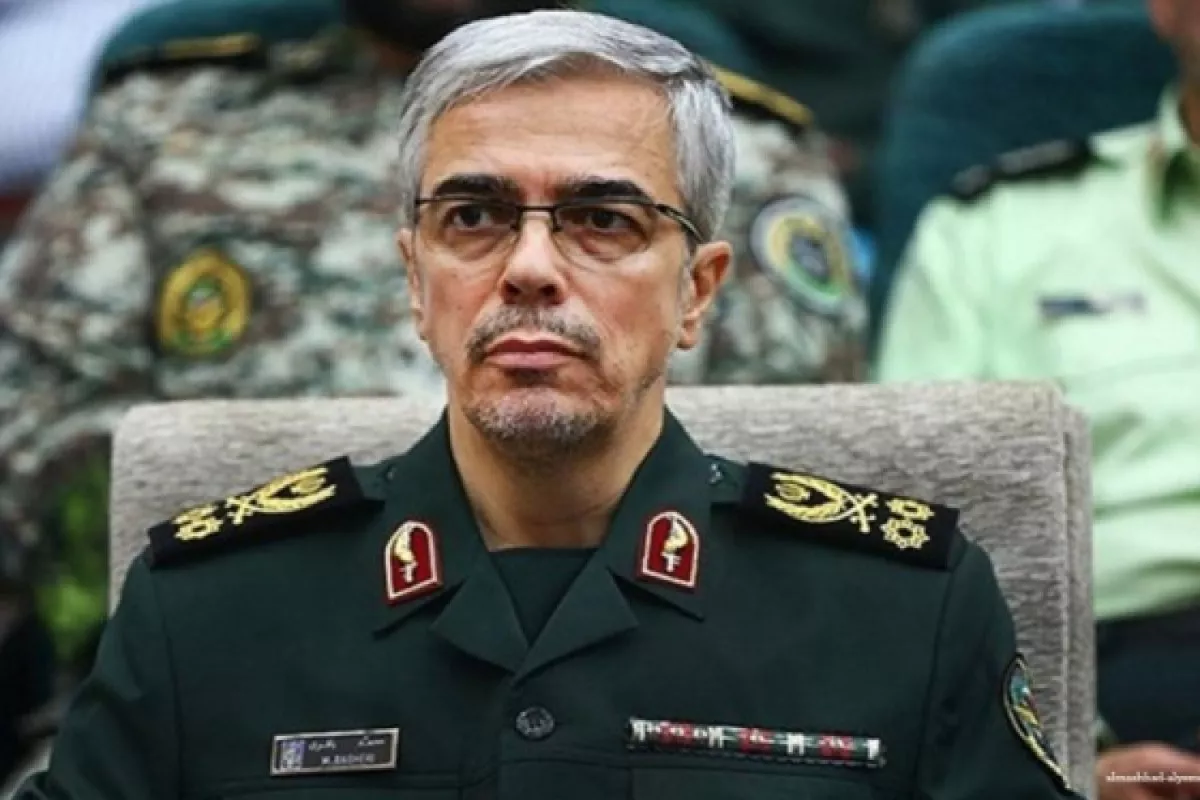
Earlier, the Iranian side denied the death of the general.
08:46
According to Iranian state media reports, several key figures of Iran’s military and scientific establishment were killed in a large-scale Israeli military operation aimed at undermining Tehran’s nuclear program.
Among the confirmed dead are:
– Hossein Salami — Commander-in-Chief of the Islamic Revolutionary Guard Corps (IRGC);
– Gholamali Rashid — Commander of the Central Headquarters of “Khatam al-Anbiya”;
– Fereydoon Abbasi — Nuclear scientist and former head of Iran’s Atomic Energy Organisation;
– Mohammad Mehdi Tehranchi — another specialist in the nuclear program.
In addition, Ali Shamkhani, one of the closest advisors to Supreme Leader Ayatollah Ali Khamenei, reportedly sustained serious injuries, according to media reports.
The Israeli side has stated that the operation will continue and is aimed at "permanently depriving Iran of the ability to develop nuclear weapons."
08:32
Azerbaijani airline AZAL has cancelled several flights due to the closure of airspace by a number of Middle Eastern countries over security concerns.
Flights on the Baku–Tel Aviv–Baku, Baku–Dubai–Baku, and Baku–Tehran–Baku routes scheduled for June 13 and 14 have been cancelled.
08:24
UN Secretary-General António Guterres is concerned about Israel’s strikes on Iran’s nuclear facilities and urges all sides to exercise maximum restraint. This was stated by Farhan Haq, Deputy Spokesperson for the UN Secretary-General.
"The Secretary-General condemns any military escalation in the Middle East. He is particularly concerned by Israeli attacks on nuclear installations in Iran while talks between Iran and the United States on the status of Iran's nuclear programme are underway. The Secretary-General recalls the obligation of UN Member States to act in accordance with the UN Charter and international law," the statement read.
"The Secretary-General asks both sides to show maximum restraint, avoiding at all costs a descent into deeper conflict, a situation that the region can hardly afford," Haq added.
08:22
Iranian Armed Forces Chief of Staff, Lieutenant General Mohammad Bagheri, was not harmed in the Israeli strikes on Iranian territory, according to the IRNA news agency.
The agency clarified that the general is currently at a command post.
Earlier, Reuters had reported, citing a source, that Bagheri was presumed dead.
08:15
Israeli Prime Minister Benjamin Netanyahu stated that the surprise airstrike on Iranian territory was “very successful.”
“We struck the top command, the leading scientists involved in developing nuclear weapons, and key nuclear infrastructure facilities,” Netanyahu emphasised. “We are achieving success, but I know, and you know: there are no easy wars.”
The Israeli leader also warned that Israelis may have to “spend much more time in shelters than we have been used to until now.”
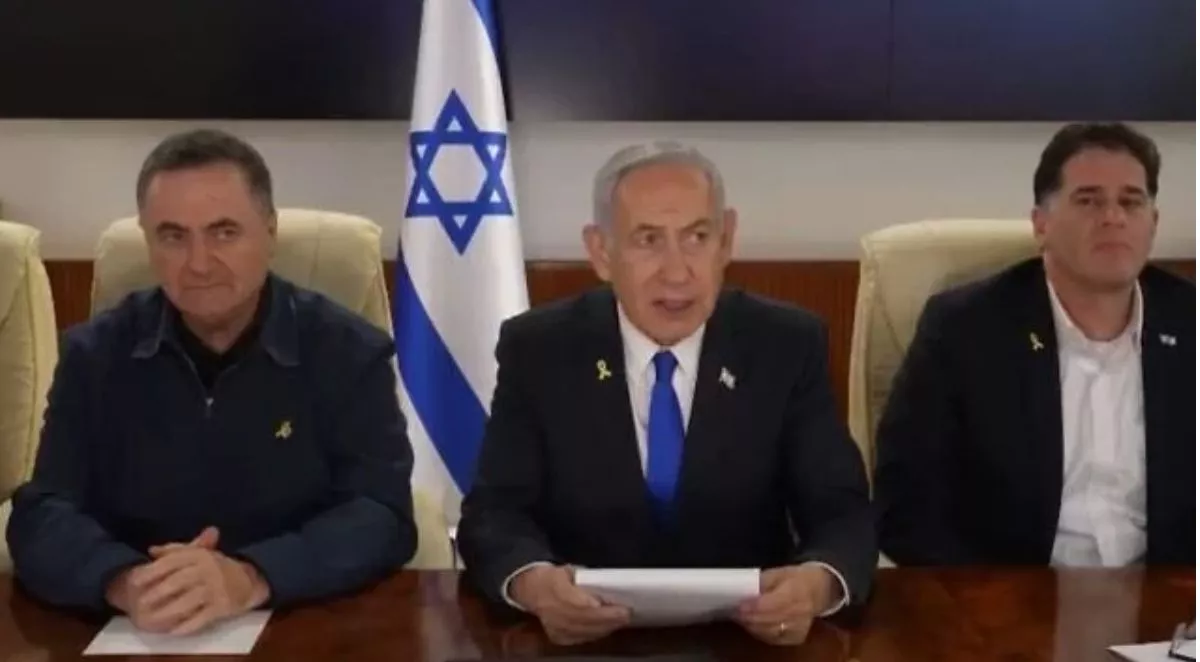
08:13
Iran’s Foreign Ministry has stated that Israel’s attack on Iran "could not have happened without coordination and authorisation from the United States." The statement was published on the ministry's official Telegram channel.
"The U.S. government, as the main supporter of this regime (Israel), will also be held responsible for the consequences and the dangerous repercussions of this Zionist attack," the message reads.
It’s worth noting that Iranian Armed Forces spokesman Abolfazl Shekarchi also accused the United States of involvement in the strikes on Tehran.
Earlier, U.S. Secretary of State Marco Rubio denied any American involvement in the attacks and urged Iran not to act against U.S. interests.
07:56
Israel vs Iran: What We Know So Far
Scale of the Strikes: According to Israeli military sources, the attack targeted dozens of sites across Iran. The primary objectives were critical components of Iran’s nuclear programme and facilities associated with the production of long-range ballistic missiles. A source in the Israeli military told CNN the operation “is not limited to a single day.”
Scientists and Generals Targeted: An Israeli intelligence official told reporters that the first wave of strikes included locations where senior Iranian military commanders and nuclear scientists were believed to be present. “The likelihood of their elimination is high and continues to increase,” the official stated.
IRGC Commander Killed: According to several Iranian state media outlets, General Hossein Salami, commander-in-chief of the Islamic Revolutionary Guard Corps (IRGC), was killed in the strikes. However, there has been no official confirmation so far.
Destruction on the Ground: Photos and videos released by Iranian state media show burning residential buildings and plumes of smoke rising above the nuclear facility in Natanz.
Mobilisation and State of Emergency in Israel: Israeli authorities have declared a state of emergency. Schools have been closed, mass gatherings banned, and citizens urged to stay home unless absolutely necessary. Hospitals have been instructed to suspend non-urgent care and switch to emergency protocols. The army is mobilising “tens of thousands” of reservists.
U.S. Response: CNN reports that the Donald Trump administration was informed in advance about the planned strike. However, U.S. Secretary of State Marco Rubio stressed that the United States did not participate in the operation and provided no military assistance to Israel.
Future of Nuclear Talks: The sixth round of the U.S.–Iran nuclear negotiations was scheduled for June 15 in Oman.
07:42
Israel has carried out strikes on three military sites in northwestern Iran, according to Iranian state television.
"Three military facilities in East Azerbaijan Province were targeted by the Zionist regime," the provincial emergency management authority said in a statement broadcast by the state channel.
07:37
A spokesperson for Iran’s armed forces has stated that the strikes carried out by Israel on Iranian territory were conducted with the support of the United States. This was also reported by Iranian state media.
As previously mentioned, U.S. Secretary of State Marco Rubio has rejected all accusations of American involvement in the operation.
07:28
Iran’s Supreme Leader Ayatollah Ali Khamenei addressed the Iranian people:
“At dawn today, the Zionist regime once again revealed its malicious nature by committing a new crime on the soil of our beloved country, staining its filthy and bloodied hands with an attack on residential areas. This regime must be prepared for severe punishment.”
“The Armed Forces of the Islamic Republic, with God's permission, will not leave this aggression unanswered.”
“Several commanders and scientists were killed in the attack. Their successors and colleagues, with Allah’s help, will immediately carry on their mission.”
“Through this crime, the Zionist regime has set itself on a path toward a bitter and painful fate — and it will inevitably meet it.”
07:18
Chief of the General Staff of the Israel Defense Forces, Lieutenant General Eyal Zamir, stated that Israel is calling up "tens of thousands" of reservists in preparation for further developments following the strikes on Iranian territory.
"We launched this operation because the time had come. We are at the point of no return. We cannot afford to wait. We have no other choice," said Zamir in the statement.
He added that both recent and historical lessons are clear: "When the enemy seeks our destruction, we cannot turn a blind eye. We must fight for our existence. Freedom is granted to those who are willing to fight for it."
It should be recalled that Israeli Prime Minister Benjamin Netanyahu earlier stated the operation against Iran would last several days. Following the strikes on what Tel Aviv calls "nuclear targets," Israel declared a state of emergency — schools are closed, mass gatherings are banned, and businesses have been advised to suspend operations in anticipation of a potential Iranian response.
07:17
Iran has fully closed its airspace until further notice. The announcement was made by the country's Civil Aviation Authority, which also urged citizens not to go to airports. Earlier, authorities had temporarily suspended flights over Tehran, as confirmed by an official NOTAM notice.
07:16
Iranian media are reporting a new wave of Israeli strikes across the country. According to their reports, the current attacks are targeting the cities of Tehran, Ahvaz, and Kermanshah.
06:45
Israeli Prime Minister Benjamin Netanyahu announced in a video statement that the Israeli Air Force had struck Iran’s uranium enrichment centre in Natanz, scientists involved in nuclear weapons development, and facilities he described as the "heart of Iran's ballistic missile programme". He said the operation would continue for several days. "We are at a decisive moment in Israel's history," Netanyahu declared.
Iranian state media and eyewitnesses confirmed explosions in multiple locations across the country, including Tehran and the city of Natanz, home to a key nuclear facility. According to Reuters, Iran’s Supreme National Security Council has convened an emergency meeting.
Both Iranian television and CNN reported the death of General Hossein Salami, commander-in-chief of the Islamic Revolutionary Guard Corps (IRGC), in the strikes. However, this has not yet been confirmed by independent sources.
The Israeli military said the strikes targeted “dozens” of nuclear and military facilities. Israeli assessments claim Iran possesses enough fissile material to produce up to 15 nuclear warheads in the near term.
Israel’s Defence Minister Israel Katz has warned of a possible retaliatory attack from Tehran. “A massive strike on Israeli territory using rockets and drones is expected imminently,” his statement said. A state of emergency has been declared in Israel.
Meanwhile, the United States has emphasised it was not involved in the military operation. Secretary of State Marco Rubio issued a statement confirming the unilateral nature of Israel’s actions. “Tonight, Israel took unilateral action against Iran. We are not involved in strikes against Iran and our top priority is protecting American forces in the region,” he said. Rubio added, “Iran should not target U.S. interests or personnel.”
According to CNN, US President Donald Trump convened an emergency cabinet meeting. The previous day, Trump had acknowledged the possibility of an Israeli strike on Iran, while expressing hope for a peaceful resolution.
Amid the sharp escalation of the conflict, oil prices surged by more than $3 per barrel.
The situation in the region remains extremely tense. International observers warn of the risk of a wide-scale escalation that could develop into a full-scale war with unpredictable consequences for the entire Middle East.




